- Baggage Delivery
- Meet & Greet
- Upcoming Tenders

- Flight Information
- Airport Terminals
- Airport Guidelines
- Passenger Guide
- Shop, Dine & Services
- To & From airport
- In & Around Delhi
- General Aviation
- Photo / Video Shooting
- Security Operations Form
- Tariff and NAC charts
- Building Plan
- Our Journey
- Cargo Statistics
- Our Specializations
- Cargo Segments
- Road Feeder Services
- Our Network
- Our Infrastructure
- Awards & Certifications
- Events and Initiatives
- Our Green Initiatives
- Get In Touch
1148 Daily Flights as on 17 th April, 2024
1148 Daily Flights

Covid-19 Update
Public Message on Covid-19 Home Treatment Guidelines Watch Video
Covid-19 Latest Updates
Know more about the domestic and international travel guidelines
Review of COVID-19 Guidelines for International Flight Operations/ Arrivals
19 th July 2023

COVID-19 Domestic Travel Guidelines
Passengers flying to domestic destinations must follow the following health protocols:
- Flyers are advised to self-monitor health and travel only if they have no symptoms of COVID-19.
- Announcements regarding COVID-19 and COVID appropriate behaviour will be made at the airport. Travellers flying via domestic flights are advised to follow these precautionary guidelines.
- Passengers must use a face mask/ cover, hand hygiene, and physical distancing of six feet as far as feasible.
- Passengers should not spit in public spaces while travelling.
- Flyers are advised to install the Arogya Setu app on their mobile phones.
- If a passenger develops fever while travelling, he shall inform the cabin crew/ TTE/ bus conductor as per the situation.
- Passengers developing COVID-19 signs after reaching the destination should inform the District Surveillance Officer or the State National Call Centre (1075).
- For information on state-wise quarantine rules for domestic flights, flyers are advised to go through the state-wise travel guidelines section.
What we Cover?
- Domestic Travel Guidelines

19th May 2021
23rd May 2021
24th May 2021
21st May 2021
13th May 2021

Disclaimer: Passengers travelling to India are advised to check official websites of relevant authorities and local government agencies for the latest updates on travel retrictions and plan accordingly.
To avoid inconvenience prior to commencement of journey, it is advisable to verify requirements and check with Airline concerned or the destination Airport.
For International travel, please check with the nearby Embassy or the Airline Concerned.
Resources in Delhi & Nearby
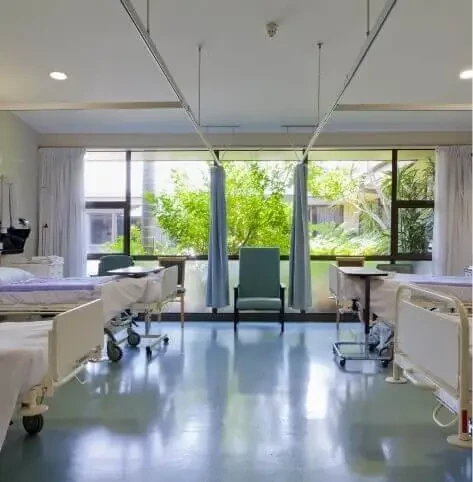
Join MyGov Helpdesk for Indian Govt. Updates
Get your Covid-19 Vaccination Certificate
India Vaccine Progress
As on : 17 Apr 2024 03:42 AM
84,51,80,590 (63.4%) 2nd dose administered
99,85,01,718 (74.9%) 1nd dose administered
1,33,30,00,000 Total population
140.15 Dose per 100 people
Data from : CDC, WHO, ECDC, Wikipedia - The New York Times
Cases Across India
12,340 480 Active Cases (0.03%)
4,25,13,248 1,547 Discharged
5,22,006 40 Deaths (1.21%)
4,30,47,594 2,067 Total Cases
Airport Covid Preparedness
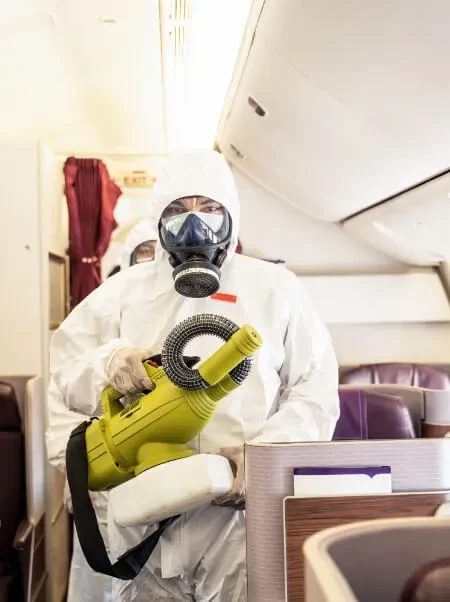
Every Corner Sanitized for Passenger Safety

Maintaining Social Distancing with Floor Stickers

Enhanced Hygiene Facilities Inside the Airport
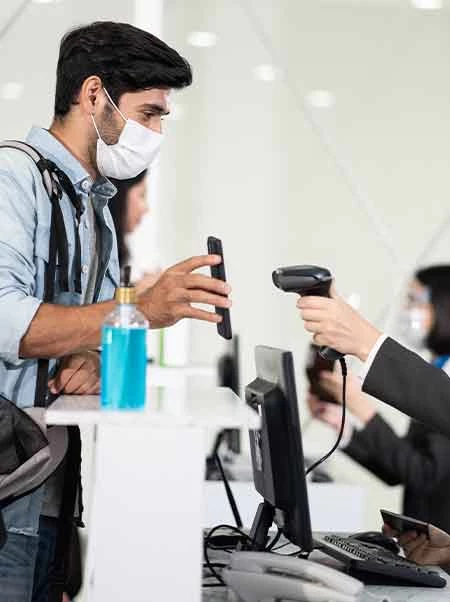
Contactless Check-In Experience
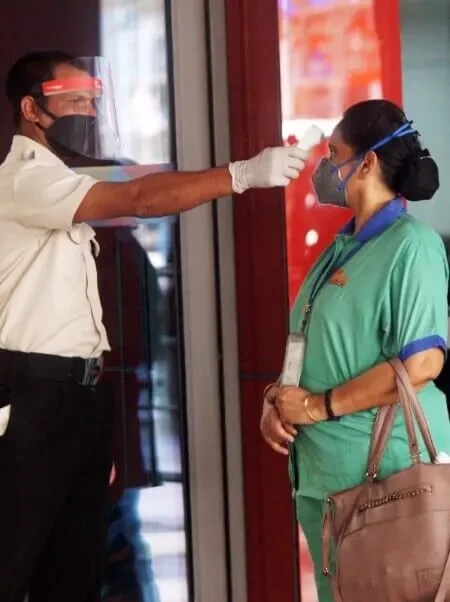
Thermal Screening of All Passengers
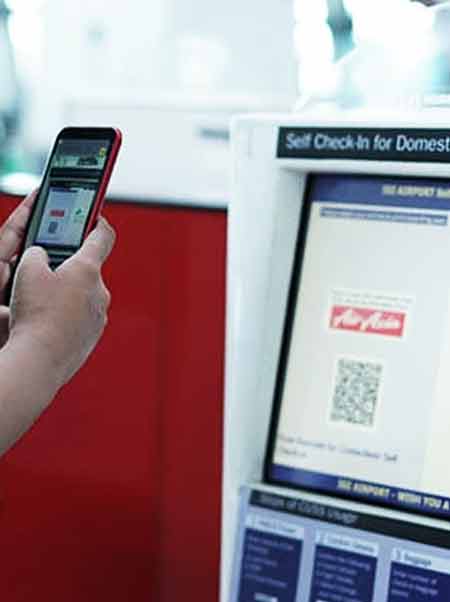
Hassle-Free Boarding Pass Printing with Scan & Fly Facility
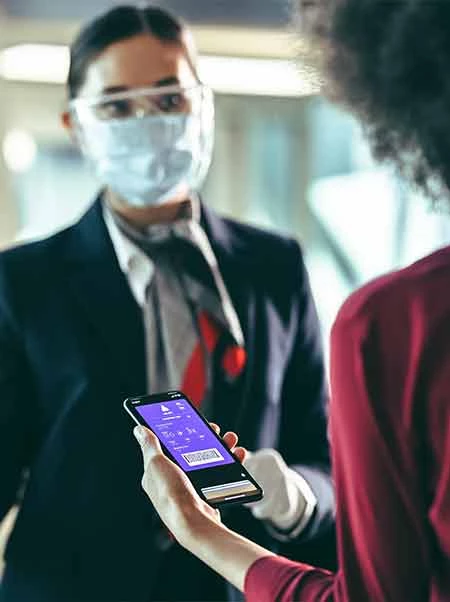
COVID Appropriate Behaviour at All Checkpoints
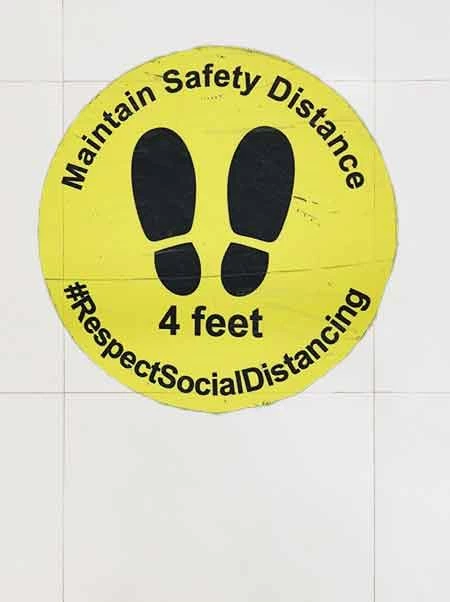
Social Distancing Markers and Stickers Throughout the Airport
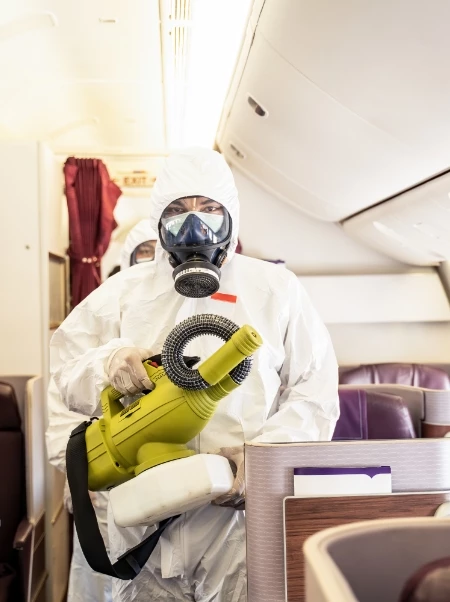
Covid Helpline Numbers
1075 Health Ministry
1098 Child Care
08046110007 Mental Health
14567 Senior Citizens
14443 Ayush Covid-19 Counselling
9013151515 MyGov WhatsApp Helpdesk
Book your stay.
Price starts from
₹ 2999/* onwards
Covid-19 FAQs
Help us improve your experience.
Initiate Property Claim
Your property claim has been submitted successfully. Our Lost and Found agent will connect with you via email or phone. Please check your email for the updates.
- About Delhi Airport
- About GMR Group
- Environment
- Business Awards
- News & Events
- Why Delhi Airport
- Life @ Delhi Airport
- Learning @ Delhi Airport
- Careers @ Delhi Airport
- Professional Courses
- GMR Infrastructure Limited
- GMR Power & Urban Infra Limited
- GMR Airports
- Delhi International Airport Limited
- GMR Hyderabad International Airport Limited
- Manohar International Airport, Goa
- Mactan Cebu International Airport
- GMR Visakhapatnam International Airport
- GMR Aerocity Delhi
- GMR Aerocity Hyderabad
- GMR Aero Technic
- GMR Aerospace & Industrial Park
- GMR Business Park
- GMR Innovex
- GMR Aero Academy
- GMR Energy Trading Ltd
- GMR Krishnagiri SIR
- GMR Engineering & Management Services
- RAXA Techno Security Solutions
- GMR Aviation Private Limited
- Delhi Capitals
- Dubai Capitals
- India Capitals
- Telugu Yoddhas
- GMR Varalakshmi Foundation
- Parampara Family Business Institute

We really appreciate it, thank you!
JavaScript must be enabled in order for you to use in standard view. However, it seems JavaScript is either disabled or not supported by your browser. To use standard view, enable JavaScript by changing your browser options, then try again .
We’re sorry, this site is currently experiencing technical difficulties. Please try again in a few moments. Exception: request blocked
Welcome to Consulate General of India, New York (USA)
- Skip to main content
- Screen Reader Access
- English Hindi

- Visa Guidelines for USA Passport Holders
- Advisory on Satellite Phone
- Emergency Entry Visa Guidelines
- Visa for Diplomatic/ official/ Laissez-Passers Passport Holders
- Tourist Visa
- Business Visa
- Employment Visa
- Transit Visa
- Medical Visa
- Student Visa (Study/Research /Internship)
- Conference Visa
- Mountaineering Visa
- Missionary Visa
- Journalist Visa(Journalist /Documentary filming)
- Film Visa: Visa for shooting Feature Films
- Visa for Pakistani Passport Holders/ Foreign Passport holders of Pakistani Origin
- Important Advisory on Fake Indian eVisa websites
- FAQ’s on Visa
- General Passport Information
- TATKAAL Passport Services
- Public Advisory on Urgent Re-issuance of Passports
- FAQ on Passport
- EAMs Message on the occasion of Passport Seva Divas 2023 (24 Jun)
- How to apply for OCI ?
- When to Update/Reissue OCI
- Renewal/Re-issue of OCI Card
- General Information on OCI
- Conversion of PIO card to OCI card
- Instructions to Convert PIO Card to OCI Card
- Renunciation of OCI
- FAQ On OCI Related Matters
- Notice regarding Dual Citizenship
- FAQs on Misc. Service
- Outsourcing of Police Clearance Certificate (PCC) Service for Indian Nationals with VFS Global
- General Information
- FAQs on Renunciation
- Emergency Travel Document (Emergency Certificate-EC)
- Calendar of upcoming Camps
- Past Consular Camps
- Import of Pet
- Data of Death Record
- Adult Protective Services (APS)
- Empanelled NGOs with Consulate
- Child Protective Services (CPS)
- Assistance for distressed women in India
- Minutes of Fourth Interaction-Community Organizations
- Procedure for sending/ forwarding Court Order/ Summons
- India: Leather Exports
- DISCLAIMER: Links given to other Internet sites should not be construed as an endorsement / promotion of external websites by the Consulate General of India, New York. This Consulate does not take responsibility for the content therein. It does not endorse, approve, or certify such information, nor does it guarantee the accuracy, completeness, efficiency, timeliness, or correct sequencing of such information. They are given solely for access to prima facie information.
- अमरीका में हिंदी
- Statement of Need Certificates for Medical Doctors
- Equivalence Certificate
- Open Admissions - School of International Cooperation, Security and Strategic Languages, Rashtriya Raksha University, India
- CUNY India Study Abroad Program (July 30 –August 15, 2019)
- RIT- OASIS organised Dandiya event with Mr. Jeffrey Cox, Director, International Student Services and Ms. Erica Ford, International Student Advisor
- Meet and Greet for Indian Students in USA, 21 October 2022 Consulate General of India in New York in association with GOPIO- Manhattan organized the 'Annual Day for Indian Students in USA' on October 21, 2022 at the Consulate. The Chief Guest for the evening was Mrs. Chandrika Tandon, Chairperson of Tandon Capital Associates and a recognized business leader, Grammy- nominated artist and humanitarian.
- Celebrating 20 years of Indian School of Business as part of Amrit Mahotsav. CGI, New York hosted ISB delegation led by Dean, its founding chairman & members and alumni on November 18, 2022
- Advisory/Information for students desirous of Pursuing Medical Studies abroad
- Fulbright - Nehru and Fulbright - Kalam Fellowships
- Online Annual Hindi Learning Program by Yuva Hindi Sansthan.
- Emergency Contact
- PIB Accreditation
- PRAMIT Pravasi Mitra (Helpline)
- @IndiainNewYork @IndiainNewYork
- CGI NewYork CGI NEW YORK
- CGI NEWYORK CGI NEWYORK
- PRAMIT PRAMIT
- Google Feedback Google Feedback

- Copyright policy
- Terms & Conditions
- Privacy Policy
- Hyperlinking Policy
- Accessibility Statement
Address: Consulate General of India, 3 East 64th Street (Between 5th and Madison Avenues), New York, NY 10065
Tel No. for all enquiries : +1 347-721-9243
Consulate closed on Saturdays, Sundays & Public Holidays Official working hours: 9.00 AM - 5.30 PM EST Submission of documents/or any Consular Query: 09:30 am to 11:30 am Collection of documents: 04:00 pm - 04:30 pm For submission of documents : 09:15 am to 11:15 am (Monday to Friday) Delivery of documents : 11:30 am to 13:00 pm (Monday to Friday) --> For submission of documents : 9:15 am - 12:15 pm Delivery of documents : 4:00 pm - 5:00 pm-->
Visitors Since (June, 2018): 9258469
Page last updated on: April 16, 2024
- KAYAK for Business NEW
India Travel Restrictions
Traveler's COVID-19 vaccination status
Traveling from the United States to India
Open for vaccinated visitors
COVID-19 testing
Not required
Not required for vaccinated visitors
Restaurants
Not required in public spaces.
Ready to travel?
Find flights to india, find stays in india, explore more countries on travel restrictions map, destinations you can travel to now, dominican republic, netherlands, philippines, puerto rico, switzerland, united arab emirates, united kingdom, know when to go.
Sign up for email alerts as countries begin to open - choose the destinations you're interested in so you're in the know.
Can I travel to India from the United States?
Most visitors from the United States, regardless of vaccination status, can enter India.
Can I travel to India if I am vaccinated?
Fully vaccinated visitors from the United States can enter India without restrictions.
Can I travel to India without being vaccinated?
Unvaccinated visitors from the United States can enter India without restrictions.
Do I need a COVID test to enter India?
Visitors from the United States are not required to present a negative COVID-19 PCR test or antigen result upon entering India.
Can I travel to India without quarantine?
Travelers from the United States are not required to quarantine.
Do I need to wear a mask in India?
Mask usage in India is not required in public spaces.
Are the restaurants and bars open in India?
Restaurants in India are open. Bars in India are .
- Government of india
- Skip to main content

COVID-19 Travel Advisory
Please visit : https://incredibleindia.org/content/incredible-india-v2/en/covid-19-travel-advisory.html

- Asia Briefing
- China Briefing
- ASEAN Briefing
- India Briefing
- Vietnam Briefing
- Silk Road Briefing
- Russia Briefing
- Middle East Briefing
- Asia Investment Research
India’s Latest Guidelines on International Travel
This timeline summarizes the most recent developments in the rules and regulations governing international travel to and from India.
Webinar – Navigating Global Minimum Tax in Asia: Insights for Businesses
Thursday, November 16, 2023 | 9:00 AM San Francisco / 12:00 PM New York / 6:00 PM Brussels / 1:00 AM (Nov. 17 th ) Beijing
Partner Kyle Freeman will introduce how key Asian economies are implementing the new changes, how companies are going to be impacted by the OECD’s global minimum tax framework, and what businesses should be doing to be prepared.
Join us in this free webinar.
REGISTER NOW
February 2023
- From February 13, 11 AM , passengers coming to India from or via China, Hong Kong, Japan, South Korea, and Thailand will not require a negative RT-PCR report from a pre-departure test for COVID-19. Travelers from these five countries will no longer have to fill the self-health declaration form on the Air Suvidha portal either. The 2% random testing on arrival in India [from any country of origin] policy that was started December 24 last year, shall continue.
January 2023
- Reported by Times of India , all Indians traveling to Sri Lanka will have to follow the country’s revised COVID-19 protocols. Sri Lanka has announced that all tourists to the country will be required to carry their vaccination cards, and unvaccinated travelers must carry a negative PCR report obtained 72 hours prior to their arrival.
December 2022
December 29, 2022.
- On December 29, 2022, India’s Federal Health Minister Mansukh Mandaviya announced that RT-PCR test would be mandatory from January 1, 2023 for international passengers travelling to India from China, Hong Kong, Japan, South Korea, Singapore and Thailand . The test must be conducted within 72 hours of undertaking the journey to India.
- These negative RT-PCR reports must be uploaded on the Air Suvidha portal before travel.
- This requirement is in addition to the random two percent tests of all international passengers in all incoming international flights on their arrival in India irrespective of their port of departure.
December 28, 2022
Air India Express, India’s first international budget carrier that offers flights to the Middle East and Southeast Asia, has issued guidelines for the maintenance of Covid-appropriate behaviour by travellers travelling from the United Arab Emirates (UAE) to India. The guidelines include:
- All passengers from UAE should preferably be completely immunised as per the approved primary schedule of Covid vaccination.
- All visitors should preferably use masks and follow physical distancing on flights/travel and at all points of entry.
- Post-arrival random testing is not required for children under the age of 12. However, if they have Covid-related symptoms upon arrival, they have to undergo testing in accordance with protocol.
December 26, 2022
- On December 24, 2022, Indian Health Ministry announced that international arrivals from China, Japan, South Korea, Hong Kong and Thailand will have to mandatorily present RT-PCR test results . In case any passengers from these countries are symptomatic or test positive for Covid-19, they will be quarantined.
- Economic Times reporting that Air Suvidha form filling to declare current health status will also be made compulsory for international passengers arriving from China, Japan, South Korea, Hong Kong and Thailand.
- Times of India reporting that Qatar has reinstated visa-on-arrival (VOA) facility for Indian travellers , which were temporarily halted due to FIFA World Cup 2022 in the country. Indian nationals can get a free VOA in Qatar for a maximum stay of 30 days or as per the hotel reservation and under the following conditions: valid passport for at least six months, confirmed return tickets, and confirmed hotel reservation through ‘Discover Qatar’ website only.
- Times of India reporting that effective from January 1, 2023 , Serbia has discontinued visa-free travel regulations for Indian citizens , keeping in line with the requirements of European Union (EU) visa policy and measures to control illegal migrants.
December 23, 2022
New guidelines applicable for international arrivals from December 24, 2022: “All travelers should preferably be fully vaccinated as per the approved primary schedule of vaccination against COVID-19 in their Country.” See here for the official Ministry of Health and Family Welfare notification issued December 22.
India will randomly test 2 percent of international travelers arriving in the country’s airports for COVID, with effect from Saturday (December 24) 10 am IST , as announced by Mansukh Mandaviya, Health Minister on Thursday December 21. Travelers will be allowed to leave the airport after submitting their sample. After the random testing, if found COVID-positive, the person’s sample shall be sent for genomic testing at a designated INSACOG laboratory network; reports shall be hared with Integrated Disease Surveillance Program at [email protected] by the concerned testing laboratory (besides sharing with the airport health organization APHOS) to be in turn shared with concerned state or union territory for further follow-up action.
- India is becoming increasingly cautious after a surge in cases recorded in neighboring China as well as in Brazil, US, Japan, and Korea, besides it being the ongoing holiday and festive season, which witnesses a jump in travel. In another move, visitors to the Taj Mahal (Agra, Uttar Pradesh state), will undergo a COVID-19 test before they enter, as per reporting from news agency ANI. While wearing masks are not currently mandatory in most parts of the country, it will likely be increasingly encouraged. For example, the southern state of Karnataka has made wearing masks mandatory indoors and in closed spaces in guidelines released December 22.
December 14, 2022
- DNA reporting a travel advisory issued due to the ongoing chaos at Delhi international airport: “To ensure a quick security check, Air India has urged all travelers to bring just one piece of carry-on luggage and arrive at least 3.5 hours early.”
- Times of India reporting that Hong Kong and Nigeria are among the latest to remove COVID-19 travel rules for international travelers.
- Business Today reporting that IndiGo has announced 32 connecting flights between India and Europe – flying to Milan, Manchester, Birmingham, Rome, and Venice – starting December 7, 2022. These international flights will operate in partnership with Turkish Airlines.
November 2022
- Times of India reporting that Germany is relaxing visa appointment rules for Indian tourists. According to German Missions in the country, Indian travelers can book their visa appointment at any VFS global Visa Application Centre in major Indian cities and the Schengen visa can be applied for three months before the travel date. However, this relaxation does not apply to the D-visa category – students, employment, and family reunion visas, among others.
- New Air India flights announced between India and US, Europe ( Business Traveller ): – Air India is launching new flights connecting Mumbai with New York, Paris, and Frankfurt, and resuming non-stop flights connecting Delhi with Copenhagen, Milan, and Vienna. The new daily Mumbai-New York service to John F Kennedy International Airport will commence February 14, 2023, which will take Air India’s India-US frequency to 47 non-stop flights per week. – The new Air India flights from Delhi to Europe announced are: four weekly Delhi-Milan from February 1, 2023 and three weekly flights each on the Delhi-Vienna and Delhi-Copenhagen routes starting February 18 and March 1, 2023, respectively. – From Mumbai, new Air India flights are currently being planned to Paris* (thrice-weekly) and Frankfurt* (four weekly) from the next quarter.
- India is discontinuing the Air Suvidha self-declaration form starting November 22, 2022. Passengers flying into India will no longer need to fill out the Air Suvidha form from November 21-22 midnight and will not need to take an RT-PCR COVID-19 test.
On November 14, the Canada government concluded an expanded Canada-India Air Transport Agreement “to allow unlimited flights between both countries”. The announcement said: “The expanded agreement allows designated airlines to operate an unlimited number of flights between the two countries. The previous agreement limited each country to 35 flights per week. The new rights under the expanded agreement are available for use by airlines immediately. Money Control reports that this will give Canadian airlines access to the Indian cities of Bengaluru, Chennai, Delhi, Hyderabad, Kolkata, and Mumbai while Indian airlines will receive access to Toronto, Edmonton, Montreal, and Vancouver as well as two additional points (Canadian cities) selected by India. India is Canada’s fourth largest international air transport market and there are an estimated 1.5 million Indians living in Canada. Presently the only non-stop direct flights in this market are from Air India and Air Canada.
October 2022
The Financial Express reports plans of Air India to add 20 weekly, non-stop flights to the US and UK between October and December. “With five additional flights a week to Birmingham, nine additional flights to London, and six additional flights a week to San Francisco, Air India said it will be able to offer over 5,000 additional seats every week.” Soon there will be seven Indian cities offering direct Air India flights to London.
September 2022
- No new updates were made to the “Risk Levels” and “Safety and Security” sections of the Canadian government’s travel advisory for India: The Hindu report .
- Hong Kong is lifting compulsory quarantine requirement for arrivals starting from September 26. There will be three days of medical surveillance during which inbound persons are free to go out but are obliged to comply with Amber Code restrictions under the Vaccine Pass, followed by a four-day self-monitoring period, making it a 7-day observation period in total, as per the Hong Kong government’s notification .
- Taiwan will end mandatory quarantine for travelers arriving in the country from October 13 as per reporting from Reuters . Speaking to the media, Taiwan’s Cabinet spokesperson Lo Ping-cheng stated that from September 29, visa-free entry will be resumed for overseas travelers that previously enjoyed that status. Under its ‘New Taiwan Model’, the government is set to increase weekly arrival limits for international travelers to 60,000 from 10,000 and will not require PCR tests for arrivals. If the pandemic situation is stable, the country will end quarantine from around October 13 and increase the weekly arrival limit to 150,000.
- Japan’s Prime Minister Fumio Kishida announced travel relaxations in Japan while in New York for the UN General Assemebly session. “… from 11 October, Japan will relax border control measures to be on par with the US, as well as resume visa-free travel and individual travel.” BBC reports that the cap on daily arrivals will also be lifted.
- Fiji removed its COVID-19 test requirements for international travelers from September 5, 2022.
- Media is reporting that Indians traveling to Indonesia can fast track their visa applications on arriving in Jakarta as VFS Global has reached an exclusive agreement with the Indonesian Immigrant Department.
- See India’s guidelines for international arrivals – dated September 2, 2022 – which came in effect the next day. The document provides protocols to be complied by international travelers as well as those to be followed by airlines and all points of entry (airports, seaports, and land border).
- International flights resumed operations starting September 3, in Guwahati’s (Assam state) Lokapriya Gopinath Bordoloi International Airport (LGBIA), after a gap of two years. In the next few months, officials speaking to the Hindustan Times said that the LGBIA airport will start flights from Guwahati to Yangon (Myanmar), Kathmandu (Nepal), Kuala Lumpur (Malaysia), Hanoi (Vietnam), and Bangkok (Thailand).
January – August, 2022
- Airlines and travel agents in India have to share details of international travelers with the Central Board of Excise and Customs (CBIC) 24 hours before departure and arrival. The information will be provided to the National Customs Targeting Centre-Passenger (NCTC). While this rule had been proposed five years ago, to combat tax avoidance and tax evasion, the government has only now developed a regulatory framework to implement this. India is among 60 countries collecting such details of international passengers. The Ministry of Finance issued the notification on August 8, 2022, as per media reports .
- China no longer requires COVID test information for international arrivals from August 31, 2022 : On Thursday, August 25, 2022, China’s General Administration of Customs released a new health declaration form for international arrivals, which removes the requirement for visitors to report their nucleic acid test results, infection status, and vaccination dates. This ninth version of the health declaration form will be implemented starting from August 31, 2022, and international visitors can report their health status online by filling out a form on the related WeChat account or webpage. Some media interpret that with this update, the current entry requirement, that is, the requirement to have international passengers take two PCR tests for COVID-19 within 48 hours of their departure, the second of which must be within 24 hours of their departure — will be lifted. However, considering that China is still sticking to its dynamic zero-COVID strategy, we recommend that international travelers double-check with their flight companies for further information.
- The Chinese Embassy in India has updated its “ Application Procedures and Material Requirements of China Visa “, to be implemented from August 24, 2022. See here for the list of requirements and procedures for various types of Chinese visas, including the M-Visa (commercial and trade activities) and the X1-Visa (long-term study): http://in.china-embassy.gov.cn/eng/lsfw/qz/202208/t20220822_10748221.htm
- The Business Standard noted in a report that China was working to facilitate the return of foreign students, including from India, who have been stuck due to the COVID-19 visa restriction. The paper quoted Foreign Ministry spokesman Wang Wenbin who told media that the Chinese side were working intensively for the return of foreign students to China. In updated comments on the foreign ministry website, Wenbin said: “We are confident in seeing the return of the first group of Indian students in the near future. Building on that, the Chinese side will further proceed with the return of other Indian students in a well thought-out and orderly manner.”
- India’s domestic air fare caps will end from August 31, as the civil aviation regulator DGCA rolls back restrictions imposed in 2020. This minimum to maximum price band had been introduced to avoid sky high ticket prices due to pent up demand in the domestic travel market.
- India’s passport offers visa-free access to 60 countries , including Bhutan, Nepal, Macao, Oman, Qatar, and Fiji. According to the latest Henley Passport Index, published by immigration consultancy Henley & Partners, India’s passport ranked 87th. India had ranked 90th in Q3 and Q4 in 2021. The latest index is topped by Japan, whose passport offers visa-free access to 193 countries, followed by South Korea and Singapore (at 192 countries each), and Germany and Spain (190). As per reporting by the Hindustan Times: Indians have ‘visa-on-arrival’ access in Thailand, Indonesia, Maldives, and Sri Lanka as well as 21 countries in Africa.
- Speaking at the World Economic Forum on Tuesday, the Chinese Premier, Li Keqiang, promised to relax restrictions on international travel in an “orderly” way , which would include facilitating the return of foreign students to rejoin Chinese colleges. Around 500,000 foreign students are enrolled at universities in China, including 23,000 Indians. Li said: “All international students may return to China to continue their studies should they so wish, and outbound commerce and trade activities and cross-border travel for labor services will be advanced in an orderly fashion.” The comments were made during a Special Virtual Dialogue with Global Business Leaders hosted by the forum. Foreign diplomatic missions in China are presently trying to speed up the process to facilitate the return of international students to China. While this is now in a small-scale trial mode, any large-scale opening can be expected only when the country’s epidemic outbreaks slow down.
- Competent authorities in China and India are communicating on securing the resumption of flights and to bring back the first group of Indian students to China at the earliest as reported in The Economic Times.
- Bhutan is allowing travelers into the country from September 23, 2022 – after a two-year gap. Tourists from India should note the levy of a sustainable development fee (SDF), charged at 1,200 ngultrums (approx. INR 1200) per day; children between the age of six and 12 are charged INR 600 per day and no fee is charged from children below the age of five. The SDF fee is not applicable everywhere – there are exemptions to the levy in 11 districts in the less popular Eastern Bhutan region, until December 2024.
- India is working to roll out e-passports as per its external affairs minister S. Jaishankar. The minister also informed that the Passport Seva System had been integrated with the DigiLocker system to facilitate paperless documentation. Jaishankar added: “The Ministry in collaboration with the Department of Posts operationalized 428 Post Office Passport Seva Kendras (POPSKs) to reach out to our citizens at their doorsteps. The Ministry has successfully integrated the passport issuance systems in 178 of our Embassies and Consulates abroad.”
- Saudi Arabia has lifted COVID-related travel restrictions on citizens travelling to India, Ethiopia, Turkey, and Vietnam and is accepting pilgrims for the forthcoming annual Hajj season, The Hindu reports June 20, 2022. The requirement to wear face masks in closed places has also been relaxed.
- China has updated its visa policy for Indians , including Indian professionals and students. China will accept visa applications of foreign nationals and their accompanying family members seeking to return to China for resumption of work in all fields. Visas for tourism and private purposes remain suspended. The details of over 12,000 Indian students have reportedly been forwarded to the Chinese government for visa processing. (Over 23,000 Indian students – mostly enrolled in medical colleges in China – had to return to India and were stuck during the last few years due to the coronavirus pandemic, which first broke out December 2019.) However, China is yet to announce resumption of normal flight facilities between the two countries.
- The US does not require arriving international travelers to take a COVID-19 test within a day before boarding their flights to the country from June 12, Sunday. “As of 12:01AM ET on June 12, 2022, the Centers for Disease Control and Prevention (CDC) will no longer require air passengers traveling from a foreign country to the United States to show a negative COVID-19 viral test or documentation of recovery from COVID-19 before they board their flight. For more information, see Rescission: Requirement for Negative Pre-Departure COVID-19 Test Result or Documentation of Recovery from COVID-19 for all Airline or Other Aircraft Passengers Arriving into the United States from Any Foreign Country .”
- Media reports say the DGCA has made masks mandatory at Indian airports and during flights. India recorded 7,240 new cases in 24 hours [ June 9 MoHFW update], the highest since March.
- On Wednesday, June 8, India’s aviation regulator DGCA announced fresh guidelines for COVID-appropriate behavior. The wearing of masks is now mandatory inside the flight / throughout the air travel , and mask removal is permitted only under exceptional circumstances. Violators could be treated as ‘unruly passengers’ and removed from the flight before departure. This is in line with a Delhi High Court order, which stipulates that violators can be put on ‘no fly list’.
- India’s overall passenger traffic (both domestic and international) at airports reached 93 percent of pre-COVID levels in May 2022. International passenger traffic reached 63 percent and 72 percent of pre-COVID levels in April and May, respectively. Recovery of domestic travel reached 98 percent of pre-COVID levels in May 2022.
- Turkey has relaxed all the conditions for Indian travelers entering the country, Turkiye Tourism Board said on Monday, June 6. Now, Indian travelers no longer have to show proof of vaccination or proof of recovery from COVID-29 or negative RT-PCR test report.
- The United States Embassy in India has tweeted (8.23pm, May 29): “The US Mission to India is pleased to announce that we are resuming routine in-person tourist visa appointments in September 2022. Previously scheduled placeholders have now been cancelled. Applicants whose placeholder appointments were cancelled may now reenter the scheduling system to book regular appointments. Appointments have been opened through 2023.”
- Media reports say that Israel has removed COVID-19-linked travel requirements for foreign visitors, such as presenting a negative RT-PCR test prior to departure, undergoing an RT-PCR test upon arrival, and quarantine observation.
- Livemint reports: “Malaysia Airlines will add new routes, increase frequencies and upgrade aircraft to cater to the Indian market, which remains a key geography for the airline.”
- Saudi Arabia has banned its citizens from travelling to sixteen countries, including India, Indonesia, and Vietnam, after the Gulf state has recorded a five-fold rise in COVID-19 cases. News18 reports : “Saudi Arabia’s General Department of Passports dropped several Covid-19 restrictions towards the end of last year but are now reimposing some of them as Covid-19 cases are being reported from various parts of the world and China and North Korea bearing the brunt of the Omicron variant which is leading to fresh cases.”
- Indian announced on May 12 that citizens planning to travel abroad are now eligible to get a third (booster/precaution) dose of vaccine three months after their second dose. The rules otherwise stipulate a nine-month gap between the second dose and booster shot.
- Scoot, the budget airline from Singapore Airlines Group, has launched daily flight services between Thiruvananthapuram (Kerala) and Singapore, up from three times a week. As per reporting by The Hindu [April 27, 2022], Scoot has a network of 42 destinations in 16 countries and territories, including Australia and Southeast Asia.
- VietJet has announced that it will resume operations of six flights – on the Delhi-Hanoi route and Delhi-Ho Chi Minh City route from April 29, 2022. New flights have also been added by VietJet on the Mumbai-Phu Quoc route and New Delhi-Phu Quoc route, which are scheduled to start from September 9, 2022.
- Hong Kong has banned Air India flights till April 24 due to COVID-19 as three passengers on board one of its flights had reportedly tested positive on arrival.
- On April 11, Times of India reported that fully vaccinated passengers from the UAE traveling to India will not necessarily require a pre-departure RT-PCR test at the airport. The move is on a reciprocity basis. However, UAE travelers will need to fill out the passenger locator form on the Air Suvidha portal – same as travelers from any other destination visiting India. Also, travelers need to upload their COVID-19 vaccination certificate onto the Air Suvidha portal.
- Scheduled international flight services have resumed from Sunday, March 27, 2022 after being suspended for two years due to COVID-19. Starting March 27, six Indian airlines and 60 foreign airlines will connect India with 63 countries . Under the new summer schedule (March 27 to October 29), foreign airlines will operate 1,783 weekly flights and Indian carriers will operate 1,466 departures every week. Among domestic airlines, IndiGo will operate 505 departures per week, followed by Tata Group-owned Air India at 361 weekly flights and its subsidiary Air India Express will operate 340 flights per week.
- From the Indian Express : More international airlines add flights to India : “Emirates said… it will be operating the 35 weekly flights from Mumbai, 28 from Delhi, 24 from Bengaluru, 21 each from Chennai and Hyderabad, 14 from Kochi, 11 from Kolkata, nine from Ahmedabad and seven from Thiruvananthapuram.”
- On March 21, 2022, Chief Executive Carrie Lam announced that from April 1, the Government will lift the flight ban on nine countries (i.e., Australia, Canada, France, India, Pakistan, the Philippines, the UK, the USA, and Nepal) and cut the hotel quarantine period for arrivals. Currently, passenger aircraft from these nine countries are not allowed to land in Hong Kong. The Chief Executive also announced the preconditions for boarding a flight to Hong Kong and the COVID-19 control and prevention measures to be implemented upon arrival. Given this, there are comments saying that traveling to Hong Kong will not get much easier even after the ban is lifted. Cathay Pacific Airways Ltd. plans just one inbound flight every two weeks for fear to be subjected to the city’s 14-day ban on airlines that carry too many passengers found to be infected with COVID-19.
- Singapore announced it is lifting restrictions for all vaccinated travelers from next week. According to officials, from April 1, fully vaccinated adults and unvaccinated children will be allowed to enter Singapore without quarantining, if they take a pre-departure test . Only travelers on a ‘restricted list’ will face curbs in entering Singapore; as of March 24, 2022 – there are no countries on this list.
- On March 21, the Ministry of Civil Aviation (MoCA) announced relaxed COVID-19-related regulations. NDTV reports MoCA saying “cabin crew members need not wear PPE kit, airlines need not keep three seats vacant on international flights for medical emergencies and security personnel at airports can resume pat-down search of passengers.” However, the use of face mask and maintenance of hand hygiene/sanitizer continues to be mandatory . Airlines may carry additional PPE protective gear, sanitizers, and N-95 masks to handle any respiratory infections related to cases on air – for passengers as well as the crew.
- Cochin International Airport announces summer schedule (March 27 to October 29) with 1,190 weekly operations (international and domestic flights). 20 airlines will operate flights to destinations abroad (including 16 international carriers). Indigo has the most weekly departures to international destinations (42) and Air India Express accounts for 38 weekly departure operations. Other prominent carriers are Air Asia Berhad, Ethihad, Emirates, Oman Air, Qatar Air, Saudi Arabian Airlines, Kuwait Airways, Thai Airways, Sri Lankan Airlines, Gulf Air, and Fly Dubai. 44 weekly departures are scheduled for Dubai, followed by Abu Dhabi with 42. Air India Express will continue its weekly operations to London and Thai Air Asia will resume Kochi operations in June, with 4 weekly direct flights to Bangkok. Source: The Hindu Business Line
- Useful Quick Links from the Air India portal: – Official Circular on Restoration of Indian Visa (E-Tourist Visa and Tourist Visa) for Foreign Tourists – Circular For Generating and Accessing International Digital Covid 19 Vaccination Certificate – International Travel Advisories
- Singapore Airlines Group press release: All Singapore Airlines flights from India to Singapore will operate as vaccinated travel lane (VTL) services from March 16, 2022. This will provide eligible customers with quarantine-free entry into Singapore from eight points across India. Scoot, SIA’s low-cost subsidiary, will also progressively convert its non-VTL services from Amritsar, Coimbatore, Thiruvananthapuram, Tiruchi, and Visakhapatnam to VTL services. Short-term visitors and Singapore work-permit holders who seek to avail VTL services must apply for a Vaccinated Travel Pass (VTP) prior to their visa application. VTP applications should be made between three and 60 calendar days before the person’s intended date of entry into Singapore. Travelers must ensure their eligibility to use the VTL services before their flight.
- Regular international flights to resume March 27, 2022 after two years suspension. This is the start of the summer schedule 2022.
- Economic Times reporting “ Global travel shedding Covid baggage as several nations ease restrictions for Indians “.
- India has once again extended its ban on regular commercial international passenger flights – until further orders – as per a circular dated February 28, 2022 issued by the Director-General of Civil Aviation (DGCA). Flights under air bubble arrangements and international cargo flights will continue.
- On February 28, 2022 , the Indian government updated its “ List of Countries/Regions in respect of which primary vaccination schedule completion certificate is allowed to be uploaded ” on the Ministry of Health and Family Welfare website: see document here . There are 88 countries now on this list . (The Union health ministry has removed the at-risk categorization of countries.)
- India and Thailand have finalized an air bubble arrangement, bringing the total number of such bilateral flight agreements to 37. Airline carriers between India and Thailand will begin operating flights starting in March, which will be subject to approval from the government. Thai Airways will commence flights between India and Thailand starting March 1 under this air bubble. Travelers should note the health protocols and the respective schedules of approved flights between Delhi, Mumbai, Chennai, Bengaluru, and Bangkok. Meanwhile, on February 25, SpiceJet announced it will launch six new international flights to Bangkok, commencing from March 10 in a phased manner. SpiceJet plans to launch flights connecting Delhi, Mumbai, and Kolkata with Bangkok. India reportedly has plans to reopen its regular international travel from March 15, but this is still a tentative date.
- Singapore, UAE, and Kuwait have updated their travel guidelines and COVID-prevention protocols for travelers from India. See here to know more.
- The Airport Authority of India has updated its state-wise guidelines for arriving passengers – by region. The PDF links may be accessed here: COVID Guidelines India Northern Region 14-02-2022 COVID Guidelines India Western Region 21.02.2022 COVID Guidelines India Southern Region 22-02-20212 COVID Guidelines India Eastern Region 18-02-2022 COVID Guidelines India North East Region 17-02-2022
- Dubai ends rapid RT-PCR rules for Indian travelers. Under the new rules , travelers from India have to produce a negative COVID-19 test certificate issued by an approved health service provider and generated 48 hours before scheduled departure of the flight. Passengers will undergo a PCR test upon arrival in Dubai. Transit passengers will be expected to follow rules governing entry at their final destination.
- It is being reported in The Economic Times that the aviation ministry has requested approval from the health ministry to allow resumption of international flights from mid-March. Reason cited by unnamed government source is that domestic traffic has rebounded.
- The government has removed restrictions on the number of flights that can be operated between India and Ukraine under their bilateral air bubble arrangement to facilitate travel of Indians from the eastern European country. India has advised its citizens to temporarily leave Ukraine amid its deteriorating relations with Russia.
- Indian media are reporting that the government is soon to make a decision on whether regular international flights can resume in the summer (March/April). It is being reported by The Economic Times that the aviation ministry has set an internal target of resuming international flight services once domestic airlines capacity touches 80% of pre-COVID flights. (Domestic airlines operated over 2,800 flights before the pandemic struck in 2020; as of February 13, they operated 2,058 flights. To reach the 80% mark, this number has to exceed 2,200.)
- No testing or mandatory quarantine required for international travelers from February 14, 2022: On February 10, India revised guidelines for international arrivals, which will come into effect February 14, 2022 (Monday, 00.01 Hrs IST). The new guidelines remove the category of ‘at risk’ countries and has scrapped the seven-day mandatory quarantine. Instead, India’s health authorities recommend self-monitoring of 14 days for symptoms . The Union Health Ministry stated that there is “need to monitor the continuously changing” COVID-19 virus but accepted that “economic activities need to be taken up in an unhindered manner”. As per the latest guidelines, all foreign arrivals have to fill a self-declaration form online (Air Suvidha web portal), including a travel history of the past 14 days. They must also upload a negative RT-PCR test conducted within 72 hours of the departure date. Alternatively, they can upload a certificate confirming that they are fully vaccinated. This alternative option is only available for passengers arriving from the 72 countries whose vaccination program are recognized by the Indian government. They include Canada, Hong Kong, USA, UK, Bahrain, Qatar, Australia, New Zealand, and some European countries. See here for the official notification on the Ministry of Health and Family Welfare portal.
- Australia will reopen its borders for international tourists from February 21 , subject to conditions. The move comes after almost two years of pandemic-linked travel restrictions. Australia’s Prime Minister Scott Morrison said while making the announcement: “The condition is you must be double vaccinated to come to Australia. That’s the rule. Everyone is expected to abide by it.” However, travelers to Australia should note the state-wise rules and restrictions.
- Vietnam reported to reopen for tourism, welcome foreign travelers from March 15, 2022. See here for information pertaining to travel to Vietnam .
- On February 5, Bali reopened its borders for international travelers and resumed direct international flights. See here for information on travel to Indonesia .
- On February 4, the state of Kerala released revised guidelines for international travelers. ( See here for the official notification by the Kerala government.) Any international traveler coming to Kerala, irrespective of their duration of stay, must undergo symptom surveillance. If they are found symptomatic, they must undertake an RT-PCR test at cost at the airport and take further action as per the test results. The revised rules advise home quarantine for international travelers who do not show symptoms; they must self-monitor their health for 7 days from the date of arrival and undergo testing if they develop symptoms. Rapid Antigen Test is advised on the 8th day after arrival. There will be random testing of 2% of international travelers on the flight, irrespective of the country of departure, and the costs will be borne by the Kerala state government.
- Singapore Airlines has restarted the vaccinated travel lane (VTL) with India. VTL flights allow quarantine-free travel into Singapore. There are VTL flights from Delhi, Mumbai, and Chennai into Singapore. (Singapore has also restarted its vaccinated travel lane with Malaysia.) Passengers should note that there are limited flights and reduced seat quota on these routes.
- The West Bengal state government announced on January 31, that it is rolling back its ban on all international direct flights coming from the United Kingdom to Kolkata.
- Indians who are fully vaccinated can reportedly travel to these seven countries: UK, Thailand, Singapore, Cyprus, Vietnam, Israel, and Saint Lucia in the Caribbean.
- Canada has relaxed COVID-19 testing requirements for travelers from India, starting January 28, 2022. People traveling on direct flights or on a one-stop flight from India do not have to show a negative RT-PCR test done at the Delhi airport within 18 hours of their departure. However, Canada still requires travelers from India to show an RT-PCR test report from an ICMR-approved lab . Fully vaccinated travelers must upload their relevant details onto the ArriveCAN app or website.
- India’s Ministry of External Affairs – Guidelines for International Arrivals – Quick Access to Documents: https://www.mohfw.gov.in/pdf/GuidelinesforInternationalarrivalsupdatedon10thFebruary2022.pdf
- India has extended the ban on scheduled international commercial flights to 23:59 February 28, 2022: Directorate General of Civil Aviation (DGCA). This ban does not apply to international all-cargo operations and the DGCA-approved flights. The notification was released by the DGCA on January 19, 2022.
- Hong Kong bars flights from India, U.S., U.K., Australia, Canada, France, Pakistan, and Philippines over Omicron fears, reports The Hindu (Jan.5, 2022).
- Countries reported to be requiring mandatory vaccine booster shots for travelers include Kuwait, Netherlands, Switzerland, France, Croatia, Austria, Greece, and Israel.
- Gulf News is reporting that India is currently making a “day to day” assessment on the resumption of normal international flights. “One has to balance the concerns of public safety and travel,” said Rakesh Kumar Verma, Additional Secretary, Tourism, Government of India. “We will take very expeditious action as and when things improve and the assessment is carried out. I’m hopeful that [full] international travel will resume soon.”
- Starting January 1, 2022, India’s air bubble arrangement with Saudi Arabia will be in effect.
- India has reached an air bubble agreement with Australia. According to reporting from Livemint : “Australian airline Qantas has recently started flights between Sydney and New Delhi. The airline is also set to start flights between New Delhi and Melbourne before Christmas. Air India also operated direct commercial flights connecting New Delhi with Melbourne and Sydney before scheduled international flights were suspended by the Indian government. Air India flights between India and Australia will resume in coming days, said a senior official with the airline.”
- As of December 7, 2021 , India’s Civil Aviation and Health Ministry has made contactless self-declaration at Air Suvidha Portal mandatory for purpose of contact tracing. Exemption forms from the Air Suvidha portal has been discontinued. All international passengers arriving in India must fill in all the details.
- 108 countries recognize India’s COVID-19 vaccination certificate for travel purpose as per data available on December 6, 2021 .
Commercial international flights were suspended in India since March 25, 2020 due to the coronavirus outbreak. Travel restrictions have begun to be gradually relaxed from October 2021.
Below we highlight the latest guidelines for international travel to and from India.
Latest updates
Status of india’s international air operations.
- On March 8, an order from the government confirmed resumption of regular international flights from March 27, 2022 . “After being recognized the increase of vaccination coverage across the globe and in consultation with the stakeholders, the government of India has decided to resume scheduled commercial international passenger services to/from India from March 27, 2022, ie [that is] start of the summer schedule 2022,” said the order. India had suspended international flights for the first time in March 2020 and began operating air bubble arrangements since July 2020.
- As of February 28, 2022, India has extended its suspension of scheduled international flights “till further orders”.
- India rolled back its intention to resume normal international flight schedules from December due to the emergence of the Omicron COVID variant. On December 9, 2021, the civil aviation regulator announced announced the postponement of international scheduled commercial flights till February 28, 2022. Air bubble and evacuation flights schedules, approved flights, and air cargo will function.
India releases periodic guidelines for international passengers coming into India based on the trajectory of the COVID-19 pandemic and emergence of regional variants and their threat assessment. The latest travel guidelines for international arrivals to India were released on February 10, 2022 (and supersede previous notifications): https://www.mohfw.gov.in/pdf/GuidelinesforInternationalarrivalsupdatedon10thFebruary2022.pdf
- The Air Suvidha portal for submission of Self Declaration Form, which is mandatory: https://www.newdelhiairport.in/airsuvidha/apho-registration
For evacuation flight schedule Phase 14 (October 1, 2021 to March 26, 2022), see Air India Vande Bharat Mission here (download PDF): https://www.airindia.in/images/pdf/VBM-schedule-dtd-30sep2021-PHASE14.pdf . The evacuation mission has been in place since May 7, 2020. For destinations operated under air bubble arrangement Phase 13 ( September 1, 2021 to September 30, 2021), click here for PDF download .
- As of April 15, 2021, the Ministry of Home Affairs (MHA) has restored electronic visa (e-visa) facility for foreigners from 156 countries. The e-visa facility is applicable for international tourists who wish to visit India for conferences, medical purposes, or business. The e-visa also extends to medical attendants.
Air Transport Bubbles
India has also established “Transport Bubbles” or “Air Travel Arrangements”, which are temporary arrangements between two countries aimed at restarting commercial passenger services when regular international flights are suspended as a result of the COVID-19 pandemic. They are reciprocal in nature, meaning airlines from both countries enjoy similar benefits.
The details of such arrangements were last updated in February 2022.
India now has 37 air bubble arrangements in place: Afghanistan, Australia, Bahrain, Bangladesh, Bhutan, Canada, Ethiopia, Finland, France, Germany, Iraq, Japan, Kazakhstan, Kenya, Kyrgyzstan, Kuwait, Maldives, Mauritius, Nepal, Netherlands, Nigeria, Oman, Qatar, Russia, Rwanda, Saudi Arabia, Seychelles, Singapore, Sri Lanka, Switzerland, Tanzania, Thailand, Ukraine, UAE, UK, USA, and Uzbekistan.
More details can be seen on the government website here: https://www.civilaviation.gov.in/en/about-air-transport-bubbles
- Full service carrier Vistara has started non-stop flight services to Paris from Delhi under the air bubble agreement between India and Europe, according to reporting from The Economic Times . Under the air bubble pact, Vistara’s Boeing 787-9 (Dreamliner) aircraft will fly twice a week between Delhi and Paris – on Wednesday and Sunday. London, Frankfurt, Dubai, Doha, Sharjah, and Male are the other international destinations covered by Vistara, which is a joint venture between Tata Sons and Singapore Airlines.
- The US will be lifting travel restrictions on foreign countries from November 8, Monday. Travelers must show proof of vaccination (WHO-approved vaccines); unvaccinated minors will be subject to testing requirements; and all travelers will need to show proof of a negative COVID-19 test 72 hours before departure to the US. See here for Reuters coverage of the changing rules.
- Air India will offer non-stop flights between Delhi and Sydney starting November 15, 2021. Air India will operate the thrice-a-week service on the Delhi-Sydney-Delhi route under the Vande Bharat Mission. Australia has also formally recognized Covaxin, India’s COVID-19 vaccine.
- India’s new visa norms stipulate that visas will be granted to foreigners only if they use water and air routes, not land routes. The Ministry of Home Affairs has allowed the gradual resumption of international travel to start from October 15, 2021 and tourist and e-visas will be issued for only a single entry per month. From November 15, all individual foreign nationals (on fresh tourist visas) will be allowed to enter India after observing prevailing COVID-19 protocols as notified by the Ministry of Health & Family Welfare.
- The Union Home Ministry announced on Thursday that India will allow foreign tourists traveling by chartered flights (Vande Bharat and air bubble flights) from October 15, rest from November 15, 2021. Foreigner tourists will be allowed to come in on non-charter flights from November 15 unless the extended restrictions on scheduled flights is substantially lifted. See the Home Ministry’s press briefing here and reporting by the Economic Times here .
- The Hindustan Times reporting on October 2 : “Australia’s visiting trade and tourism minister Dan Tehan said foreign students will be able to start “returning towards the end of this year and the beginning of next year”, ahead of the start of the first semester in February-March 2022. The Therapeutic Goods Administration (TGA) of Australia listed Covishield and China’s Coronavac (Sinovac) as “recognised vaccines” after an initial assessment of data on protection offered by the two jabs.”
- CoWin, India’s digital platform for COVID-19 vaccination, is allowing travelers to download an international version of their COVID-19 vaccine certificate, which is compliant with WHO’s international travel guidelines. This feature went live on September 30, 2021, and allows fully vaccinated individuals to update their existing photo identity to passport number and date of birth to get their International Travel Certificate. See website: https://www.cowin.gov.in/
- The Indian Bureau of Immigration noted the specific categories of foreign nationals who are permitted to enter India by water routes or by flights, including those under the Vande Bharat Mission, or ‘Air Bubble’ (Bilateral Air Travel Arrangements) Scheme, or by any non-scheduled commercial flights as allowed by the Ministry of Civil Aviation in its notice MHA O.M. No.25022/24/2020-F.V/F.I dated October 21, 2020. See here for reference.
- Air India has said it will run direct services between Muscat and Vijayawada “once a week or thrice from the first week of July”. The Vijayawada International Airport resumed international flights to Gulf destinations, such as Dubai, Kuwait, Muscat in June, to Singapore in April.
- Budget carrier Air India Express will operate a total of 64 flights between Malaysia and India in July under Vande Bharat Mission. More below.
- Foreign nationals who wish to travel to India for medical treatment can apply for a fresh visa under this category and choose one attendant to accompany them as per the visa category provisions (that is, if the original applicant has their medical visa approved).
- On October 8, 2020, India’s civil aviation authority said the future of international flights will depend on the availability of a vaccine, hinting at the extension of air travel bubble arrangements into March-April next year.
- Low-cost carrier SpiceJet announces its new flight operations connecting Delhi and Mumbai with London, starting December 4, which will come under the India-UK air bubble agreement.
- New standard operating protocol announced August 22, 2020 for non-scheduled commercial flights under the repatriation scheme, Vande Bharat Mission, and Air Transport Bubble Agreements.
(Note: This article was originally published on August 4, 2020 and last updated on February 10, 2023.)
India Briefing is produced by Dezan Shira & Associates . The firm assists foreign investors throughout Asia from offices across the world, including in Delhi and Mumbai . Readers may write to [email protected] for business support in India.
- Previous Article Latest Updates on India’s FTAs in 2022
- Next Article A Guide to Popular Income Tax-Saving Investment Options in India
Our free webinars are packed full of useful information for doing business in India.

DEZAN SHIRA & ASSOCIATES
Meet the firm behind our content. Visit their website to see how their services can help your business succeed.
Want the Latest Sent to Your Inbox?
Subscribing grants you this, plus free access to our articles and magazines.
Get free access to our subscriptions and publications
Subscribe to receive weekly India Briefing news updates, our latest doing business publications, and access to our Asia archives.

Your trusted source for India business, regulatory and economy news, since 1999.

Subscribe now to receive our weekly India Edition newsletter. Its free with no strings attached.
Not convinced? Click here to see our last week's issue.

Search our guides, media and news archives
Type keyword to begin searching...
Cookies on GOV.UK
We use some essential cookies to make this website work.
We’d like to set additional cookies to understand how you use GOV.UK, remember your settings and improve government services.
We also use cookies set by other sites to help us deliver content from their services.
You have accepted additional cookies. You can change your cookie settings at any time.
You have rejected additional cookies. You can change your cookie settings at any time.
- Passports, travel and living abroad
- Travel abroad
- Foreign travel advice
Warnings and insurance
The Foreign, Commonwealth & Development Office (FCDO) provides advice about risks of travel to help British nationals make informed decisions. Find out more about FCDO travel advice .
Areas where FCDO advises against travel
Your travel insurance could be invalidated if you travel against FCDO advice. Consular support is also severely limited where FCDO advises against travel.
India-Pakistan border area
FCDO advises against all travel within the vicinity of the India-Pakistan border, except for at Wagah where travellers can cross the border.
Jammu and Kashmir
FCDO advises against all travel to the region of Jammu and Kashmir (including Pahalgam, Gulmarg, Sonamarg, the city of Srinagar, and the Jammu-Srinagar national highway), except for:
- travel by air to and from the city of Jammu
- travel within the city of Jammu
- travel within the region of Ladakh
FCDO advises against all but essential travel to the state of Manipur.
In April-May 2023 violent ethnic clashes broke out across Manipur, including in the state capital Imphal. Curfews and other restrictions have been imposed in many parts of the state. There may be transport disruptions. Internet services may be limited and restrictions might be imposed at short notice.
You should:
- avoid protests or large gatherings
- follow the advice of the local authorities and your travel company
- monitor local media and follow any curfew restrictions
Find out more about why FCDO advises against travel to these regions .
Before you travel
No travel can be guaranteed safe. Read all the advice in this guide as well as support for British nationals abroad which includes:
- advice on preparing for travel abroad and reducing risks
- information for women, LGBT+ and disabled travellers
Follow and contact FCDO travel on Twitter , Facebook and Instagram . You can also sign up to get email notifications when this travel advice is updated.
Travel insurance
If you choose to travel, research your destinations and get appropriate travel insurance . Insurance should cover your itinerary, planned activities and potential expenses in an emergency.
Related content
Is this page useful.
- Yes this page is useful
- No this page is not useful
Help us improve GOV.UK
Don’t include personal or financial information like your National Insurance number or credit card details.
To help us improve GOV.UK, we’d like to know more about your visit today. We’ll send you a link to a feedback form. It will take only 2 minutes to fill in. Don’t worry we won’t send you spam or share your email address with anyone.
You are using an outdated browser. Upgrade your browser today or install Google Chrome Frame to better experience this site.
India Traveler View
Travel health notices, vaccines and medicines, non-vaccine-preventable diseases, stay healthy and safe.
- Packing List
After Your Trip
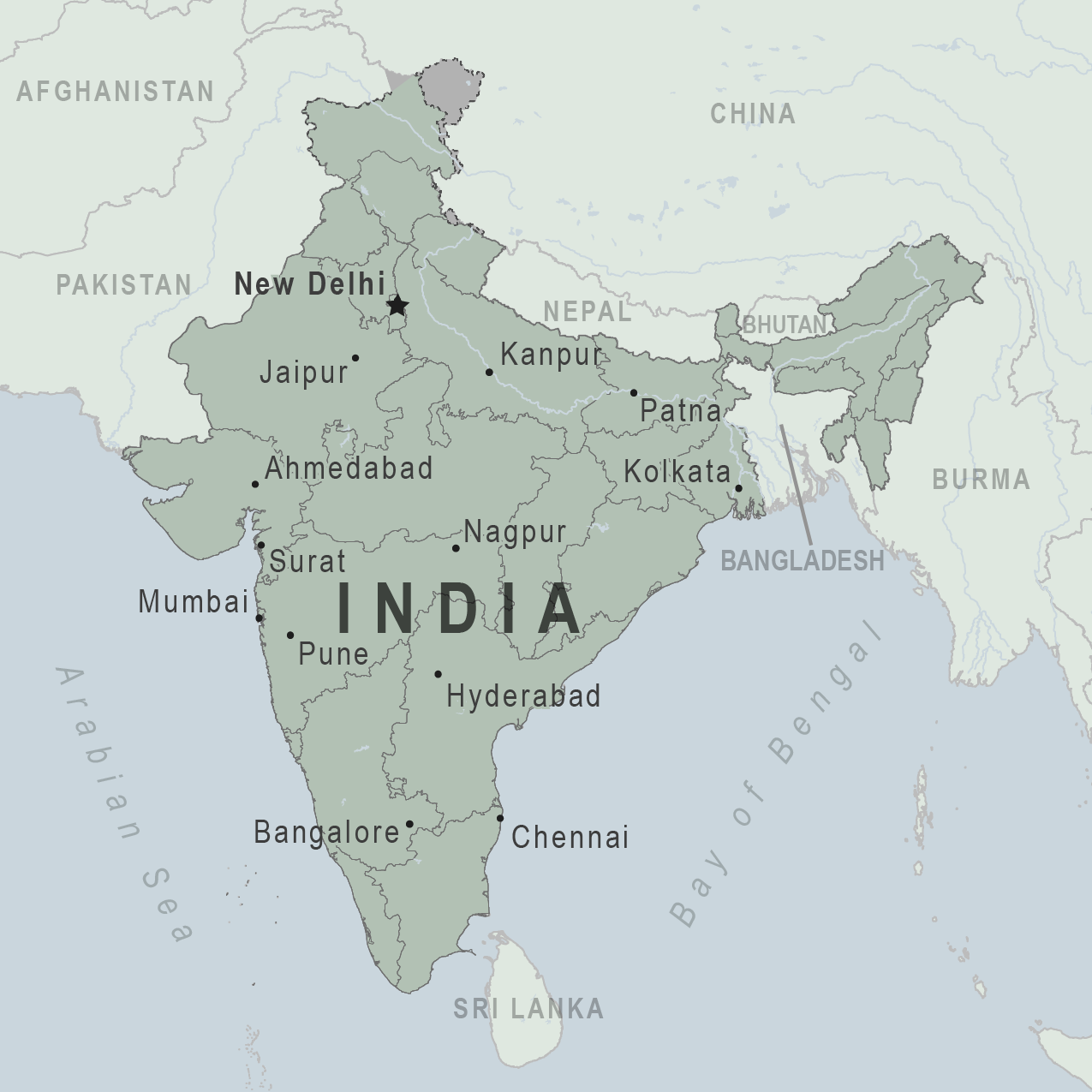
Be aware of current health issues in India. Learn how to protect yourself.
Level 1 Practice Usual Precautions
- Global Measles March 22, 2024 Many international destinations are reporting increased numbers of cases of measles. Destination List: Afghanistan, Angola, Armenia, Azerbaijan, Benin, Burkina Faso, Burundi, Cameroon, Central African Republic, Chad, Côte d'Ivoire (Ivory Coast), Democratic Republic of the Congo, Djibouti, Equatorial Guinea, Ethiopia, Gabon, Ghana, India, Indonesia, Kazakhstan, Kyrgyzstan, Lebanon, Liberia, Libya, Malaysia, Mauritania, Nepal, Niger, Nigeria, Pakistan, Qatar, Republic of South Sudan, Republic of the Congo, Romania, Russia, Senegal, Somalia, Sri Lanka, Sudan, Syria, Tajikistan, Togo, Turkey, United Arab Emirates, Uzbekistan, Yemen, Zambia
⇧ Top
Check the vaccines and medicines list and visit your doctor at least a month before your trip to get vaccines or medicines you may need. If you or your doctor need help finding a location that provides certain vaccines or medicines, visit the Find a Clinic page.
Routine vaccines
Recommendations.
Make sure you are up-to-date on all routine vaccines before every trip. Some of these vaccines include
- Chickenpox (Varicella)
- Diphtheria-Tetanus-Pertussis
- Flu (influenza)
- Measles-Mumps-Rubella (MMR)
Immunization schedules
All eligible travelers should be up to date with their COVID-19 vaccines. Please see Your COVID-19 Vaccination for more information.
COVID-19 vaccine
Cholera is presumed to be present in India. Cholera is rare in travelers. Certain factors may increase the risk of getting cholera or having severe disease ( more information ). Avoiding unsafe food and water and washing your hands can also help prevent cholera. Avoiding unsafe food and water and washing your hands can also help prevent cholera.
Vaccination may be considered for children and adults who are traveling to areas of active cholera transmission.
Cholera - CDC Yellow Book
Hepatitis A
Recommended for unvaccinated travelers one year old or older going to India.
Infants 6 to 11 months old should also be vaccinated against Hepatitis A. The dose does not count toward the routine 2-dose series.
Travelers allergic to a vaccine component or who are younger than 6 months should receive a single dose of immune globulin, which provides effective protection for up to 2 months depending on dosage given.
Unvaccinated travelers who are over 40 years old, immunocompromised, or have chronic medical conditions planning to depart to a risk area in less than 2 weeks should get the initial dose of vaccine and at the same appointment receive immune globulin.
Hepatitis A - CDC Yellow Book
Dosing info - Hep A
Hepatitis B
Recommended for unvaccinated travelers younger than 60 years old traveling to India. Unvaccinated travelers 60 years and older may get vaccinated before traveling to India.
Hepatitis B - CDC Yellow Book
Dosing info - Hep B
Japanese Encephalitis
Recommended for travelers who
- Are moving to an area with Japanese encephalitis to live
- Spend long periods of time, such as a month or more, in areas with Japanese encephalitis
- Frequently travel to areas with Japanese encephalitis
Consider vaccination for travelers
- Spending less than a month in areas with Japanese encephalitis but will be doing activities that increase risk of infection, such as visiting rural areas, hiking or camping, or staying in places without air conditioning, screens, or bed nets
- Going to areas with Japanese encephalitis who are uncertain of their activities or how long they will be there
Not recommended for travelers planning short-term travel to urban areas or travel to areas with no clear Japanese encephalitis season.
Japanese encephalitis - CDC Yellow Book
Japanese Encephalitis Vaccine for US Children
CDC recommends that travelers going to certain areas of India take prescription medicine to prevent malaria. Depending on the medicine you take, you will need to start taking this medicine multiple days before your trip, as well as during and after your trip. Talk to your doctor about which malaria medication you should take.
Find country-specific information about malaria.
Malaria - CDC Yellow Book
Considerations when choosing a drug for malaria prophylaxis (CDC Yellow Book)
Malaria information for India.
Cases of measles are on the rise worldwide. Travelers are at risk of measles if they have not been fully vaccinated at least two weeks prior to departure, or have not had measles in the past, and travel internationally to areas where measles is spreading.
All international travelers should be fully vaccinated against measles with the measles-mumps-rubella (MMR) vaccine, including an early dose for infants 6–11 months, according to CDC’s measles vaccination recommendations for international travel .
Measles (Rubeola) - CDC Yellow Book
Rabid dogs are commonly found in India. However, if you are bitten or scratched by a dog or other mammal while in India, rabies treatment is often available.
Consider rabies vaccination before your trip if your activities mean you will be around dogs or wildlife.
Travelers more likely to encounter rabid animals include
- Campers, adventure travelers, or cave explorers (spelunkers)
- Veterinarians, animal handlers, field biologists, or laboratory workers handling animal specimens
- Visitors to rural areas
Since children are more likely to be bitten or scratched by a dog or other animals, consider rabies vaccination for children traveling to India.
Rabies - CDC Yellow Book
Recommended for most travelers, especially those staying with friends or relatives or visiting smaller cities or rural areas.
Typhoid - CDC Yellow Book
Dosing info - Typhoid
Yellow Fever
- Arrive within 6 days of leaving an area with risk for YF virus transmission, or
- Have been in such an area in transit (exception: passengers and members of flight crews who, while in transit through an airport in an area with risk for YF virus transmission, remained in the airport during their entire stay and the health officer agrees to such an exemption), or
- Arrive on a ship that started from or touched at any port in an area with risk for YF virus transmission ≤30 days before its arrival in India, unless such a ship has been disinsected in accordance with the procedure recommended by the World Health Organization (WHO), or
- Arrive on an aircraft that has been in an area with risk for YF virus transmission and has not been disinsected in accordance with the Indian Aircraft Public Health Rules, 1954, or as recommended by WHO.
- Africa: Angola, Benin, Burkina Faso, Burundi, Cameroon, Central African Republic, Chad, Congo, Côte d’Ivoire, Democratic Republic of the Congo, Equatorial Guinea, Ethiopia, Gabon, The Gambia, Ghana, Guinea, Guinea-Bissau, Kenya, Liberia, Mali, Mauritania, Niger, Nigeria, Rwanda, Senegal, Sierra Leone, South Sudan, Sudan, Togo, Uganda
- Americas: Argentina, Bolivia, Brazil, Colombia, Ecuador, French Guiana, Guyana, Panama, Paraguay, Peru, Suriname, Trinidad & Tobago (Trinidad only), Venezuela
Yellow Fever - CDC Yellow Book
Avoid contaminated water
Leptospirosis
How most people get sick (most common modes of transmission)
- Touching urine or other body fluids from an animal infected with leptospirosis
- Swimming or wading in urine-contaminated fresh water, or contact with urine-contaminated mud
- Drinking water or eating food contaminated with animal urine
- Avoid contaminated water and soil
Clinical Guidance
Avoid bug bites.
Chikungunya
- Mosquito bite
- Avoid Bug Bites
Crimean-Congo Hemorrhagic fever
- Tick bite
- Touching the body fluids of a person or animal infected with CCHF
- Mosquito bite
Leishmaniasis
- Sand fly bite
- An infected pregnant woman can spread it to her unborn baby
Airborne & droplet
Avian/bird flu.
- Being around, touching, or working with infected poultry, such as visiting poultry farms or live-animal markets
- Avoid domestic and wild poultry
- Breathing in air or accidentally eating food contaminated with the urine, droppings, or saliva of infected rodents
- Bite from an infected rodent
- Less commonly, being around someone sick with hantavirus (only occurs with Andes virus)
- Avoid rodents and areas where they live
- Avoid sick people
Tuberculosis (TB)
- Breathe in TB bacteria that is in the air from an infected and contagious person coughing, speaking, or singing.
Learn actions you can take to stay healthy and safe on your trip. Vaccines cannot protect you from many diseases in India, so your behaviors are important.
Eat and drink safely
Food and water standards around the world vary based on the destination. Standards may also differ within a country and risk may change depending on activity type (e.g., hiking versus business trip). You can learn more about safe food and drink choices when traveling by accessing the resources below.
- Choose Safe Food and Drinks When Traveling
- Water Treatment Options When Hiking, Camping or Traveling
- Global Water, Sanitation and Hygiene | Healthy Water
- Avoid Contaminated Water During Travel
You can also visit the Department of State Country Information Pages for additional information about food and water safety.
Prevent bug bites
Bugs (like mosquitoes, ticks, and fleas) can spread a number of diseases in India. Many of these diseases cannot be prevented with a vaccine or medicine. You can reduce your risk by taking steps to prevent bug bites.
What can I do to prevent bug bites?
- Cover exposed skin by wearing long-sleeved shirts, long pants, and hats.
- Use an appropriate insect repellent (see below).
- Use permethrin-treated clothing and gear (such as boots, pants, socks, and tents). Do not use permethrin directly on skin.
- Stay and sleep in air-conditioned or screened rooms.
- Use a bed net if the area where you are sleeping is exposed to the outdoors.
What type of insect repellent should I use?
- FOR PROTECTION AGAINST TICKS AND MOSQUITOES: Use a repellent that contains 20% or more DEET for protection that lasts up to several hours.
- Picaridin (also known as KBR 3023, Bayrepel, and icaridin)
- Oil of lemon eucalyptus (OLE) or para-menthane-diol (PMD)
- 2-undecanone
- Always use insect repellent as directed.
What should I do if I am bitten by bugs?
- Avoid scratching bug bites, and apply hydrocortisone cream or calamine lotion to reduce the itching.
- Check your entire body for ticks after outdoor activity. Be sure to remove ticks properly.
What can I do to avoid bed bugs?
Although bed bugs do not carry disease, they are an annoyance. See our information page about avoiding bug bites for some easy tips to avoid them. For more information on bed bugs, see Bed Bugs .
For more detailed information on avoiding bug bites, see Avoid Bug Bites .
Some diseases in India—such as dengue, Zika, filariasis, and leishmaniasis—are spread by bugs and cannot be prevented with a vaccine. Follow the insect avoidance measures described above to prevent these and other illnesses.
Stay safe outdoors
If your travel plans in India include outdoor activities, take these steps to stay safe and healthy during your trip.
- Stay alert to changing weather conditions and adjust your plans if conditions become unsafe.
- Prepare for activities by wearing the right clothes and packing protective items, such as bug spray, sunscreen, and a basic first aid kit.
- Consider learning basic first aid and CPR before travel. Bring a travel health kit with items appropriate for your activities.
- If you are outside for many hours in heat, eat salty snacks and drink water to stay hydrated and replace salt lost through sweating.
- Protect yourself from UV radiation : use sunscreen with an SPF of at least 15, wear protective clothing, and seek shade during the hottest time of day (10 a.m.–4 p.m.).
- Be especially careful during summer months and at high elevation. Because sunlight reflects off snow, sand, and water, sun exposure may be increased during activities like skiing, swimming, and sailing.
- Very cold temperatures can be dangerous. Dress in layers and cover heads, hands, and feet properly if you are visiting a cold location.
Stay safe around water
- Swim only in designated swimming areas. Obey lifeguards and warning flags on beaches.
- Practice safe boating—follow all boating safety laws, do not drink alcohol if driving a boat, and always wear a life jacket.
- Do not dive into shallow water.
- Do not swim in freshwater in developing areas or where sanitation is poor.
- Avoid swallowing water when swimming. Untreated water can carry germs that make you sick.
- To prevent infections, wear shoes on beaches where there may be animal waste.
Schistosomiasis and leptospirosis, infections that can be spread in fresh water, are found in India. Avoid swimming in fresh, unchlorinated water, such as lakes, ponds, or rivers.
Keep away from animals
Most animals avoid people, but they may attack if they feel threatened, are protecting their young or territory, or if they are injured or ill. Animal bites and scratches can lead to serious diseases such as rabies.
Follow these tips to protect yourself:
- Do not touch or feed any animals you do not know.
- Do not allow animals to lick open wounds, and do not get animal saliva in your eyes or mouth.
- Avoid rodents and their urine and feces.
- Traveling pets should be supervised closely and not allowed to come in contact with local animals.
- If you wake in a room with a bat, seek medical care immediately. Bat bites may be hard to see.
All animals can pose a threat, but be extra careful around dogs, bats, monkeys, sea animals such as jellyfish, and snakes. If you are bitten or scratched by an animal, immediately:
- Wash the wound with soap and clean water.
- Go to a doctor right away.
- Tell your doctor about your injury when you get back to the United States.
Consider buying medical evacuation insurance. Rabies is a deadly disease that must be treated quickly, and treatment may not be available in some countries.
Reduce your exposure to germs
Follow these tips to avoid getting sick or spreading illness to others while traveling:
- Wash your hands often, especially before eating.
- If soap and water aren’t available, clean hands with hand sanitizer (containing at least 60% alcohol).
- Don’t touch your eyes, nose, or mouth. If you need to touch your face, make sure your hands are clean.
- Cover your mouth and nose with a tissue or your sleeve (not your hands) when coughing or sneezing.
- Try to avoid contact with people who are sick.
- If you are sick, stay home or in your hotel room, unless you need medical care.
Avoid sharing body fluids
Diseases can be spread through body fluids, such as saliva, blood, vomit, and semen.
Protect yourself:
- Use latex condoms correctly.
- Do not inject drugs.
- Limit alcohol consumption. People take more risks when intoxicated.
- Do not share needles or any devices that can break the skin. That includes needles for tattoos, piercings, and acupuncture.
- If you receive medical or dental care, make sure the equipment is disinfected or sanitized.
Know how to get medical care while traveling
Plan for how you will get health care during your trip, should the need arise:
- Carry a list of local doctors and hospitals at your destination.
- Review your health insurance plan to determine what medical services it would cover during your trip. Consider purchasing travel health and medical evacuation insurance.
- Carry a card that identifies, in the local language, your blood type, chronic conditions or serious allergies, and the generic names of any medications you take.
- Some prescription drugs may be illegal in other countries. Call India’s embassy to verify that all of your prescription(s) are legal to bring with you.
- Bring all the medicines (including over-the-counter medicines) you think you might need during your trip, including extra in case of travel delays. Ask your doctor to help you get prescriptions filled early if you need to.
Many foreign hospitals and clinics are accredited by the Joint Commission International. A list of accredited facilities is available at their website ( www.jointcommissioninternational.org ).
In some countries, medicine (prescription and over-the-counter) may be substandard or counterfeit. Bring the medicines you will need from the United States to avoid having to buy them at your destination.
Malaria is a risk in India. Fill your malaria prescription before you leave and take enough with you for the entire length of your trip. Follow your doctor’s instructions for taking the pills; some need to be started before you leave.
Select safe transportation
Motor vehicle crashes are the #1 killer of healthy US citizens in foreign countries.
In many places cars, buses, large trucks, rickshaws, bikes, people on foot, and even animals share the same lanes of traffic, increasing the risk for crashes.
Be smart when you are traveling on foot.
- Use sidewalks and marked crosswalks.
- Pay attention to the traffic around you, especially in crowded areas.
- Remember, people on foot do not always have the right of way in other countries.
Riding/Driving
Choose a safe vehicle.
- Choose official taxis or public transportation, such as trains and buses.
- Ride only in cars that have seatbelts.
- Avoid overcrowded, overloaded, top-heavy buses and minivans.
- Avoid riding on motorcycles or motorbikes, especially motorbike taxis. (Many crashes are caused by inexperienced motorbike drivers.)
- Choose newer vehicles—they may have more safety features, such as airbags, and be more reliable.
- Choose larger vehicles, which may provide more protection in crashes.
Think about the driver.
- Do not drive after drinking alcohol or ride with someone who has been drinking.
- Consider hiring a licensed, trained driver familiar with the area.
- Arrange payment before departing.
Follow basic safety tips.
- Wear a seatbelt at all times.
- Sit in the back seat of cars and taxis.
- When on motorbikes or bicycles, always wear a helmet. (Bring a helmet from home, if needed.)
- Avoid driving at night; street lighting in certain parts of India may be poor.
- Do not use a cell phone or text while driving (illegal in many countries).
- Travel during daylight hours only, especially in rural areas.
- If you choose to drive a vehicle in India, learn the local traffic laws and have the proper paperwork.
- Get any driving permits and insurance you may need. Get an International Driving Permit (IDP). Carry the IDP and a US-issued driver's license at all times.
- Check with your auto insurance policy's international coverage, and get more coverage if needed. Make sure you have liability insurance.
- Avoid using local, unscheduled aircraft.
- If possible, fly on larger planes (more than 30 seats); larger airplanes are more likely to have regular safety inspections.
- Try to schedule flights during daylight hours and in good weather.
Medical Evacuation Insurance
If you are seriously injured, emergency care may not be available or may not meet US standards. Trauma care centers are uncommon outside urban areas. Having medical evacuation insurance can be helpful for these reasons.
Helpful Resources
Road Safety Overseas (Information from the US Department of State): Includes tips on driving in other countries, International Driving Permits, auto insurance, and other resources.
The Association for International Road Travel has country-specific Road Travel Reports available for most countries for a minimal fee.
For information traffic safety and road conditions in India, see Travel and Transportation on US Department of State's country-specific information for India .
Traffic flows on the left side of the road in India.
- Always pay close attention to the flow of traffic, especially when crossing the street.
- LOOK RIGHT for approaching traffic.
Maintain personal security
Use the same common sense traveling overseas that you would at home, and always stay alert and aware of your surroundings.
Before you leave
- Research your destination(s), including local laws, customs, and culture.
- Monitor travel advisories and alerts and read travel tips from the US Department of State.
- Enroll in the Smart Traveler Enrollment Program (STEP) .
- Leave a copy of your itinerary, contact information, credit cards, and passport with someone at home.
- Pack as light as possible, and leave at home any item you could not replace.
While at your destination(s)
- Carry contact information for the nearest US embassy or consulate .
- Carry a photocopy of your passport and entry stamp; leave the actual passport securely in your hotel.
- Follow all local laws and social customs.
- Do not wear expensive clothing or jewelry.
- Always keep hotel doors locked, and store valuables in secure areas.
- If possible, choose hotel rooms between the 2nd and 6th floors.
To call for emergency services while in India, dial 100 or, from a mobile phone, 112. Write these numbers down to carry with you during your trip.
Learn as much as you can about India before you travel there. A good place to start is the country-specific information on India from the US Department of State.
Healthy Travel Packing List
Use the Healthy Travel Packing List for India for a list of health-related items to consider packing for your trip. Talk to your doctor about which items are most important for you.
Why does CDC recommend packing these health-related items?
It’s best to be prepared to prevent and treat common illnesses and injuries. Some supplies and medicines may be difficult to find at your destination, may have different names, or may have different ingredients than what you normally use.
If you are not feeling well after your trip, you may need to see a doctor. If you need help finding a travel medicine specialist, see Find a Clinic . Be sure to tell your doctor about your travel, including where you went and what you did on your trip. Also tell your doctor if you were bitten or scratched by an animal while traveling.
If your doctor prescribed antimalarial medicine for your trip, keep taking the rest of your pills after you return home. If you stop taking your medicine too soon, you could still get sick.
Malaria is always a serious disease and may be a deadly illness. If you become ill with a fever either while traveling in a malaria-risk area or after you return home (for up to 1 year), you should seek immediate medical attention and should tell the doctor about your travel history.
For more information on what to do if you are sick after your trip, see Getting Sick after Travel .
Map Disclaimer - The boundaries and names shown and the designations used on maps do not imply the expression of any opinion whatsoever on the part of the Centers for Disease Control and Prevention concerning the legal status of any country, territory, city or area or of its authorities, or concerning the delimitation of its frontiers or boundaries. Approximate border lines for which there may not yet be full agreement are generally marked.
Other Destinations
If you need help finding travel information:
Message & data rates may apply. CDC Privacy Policy
File Formats Help:
- Adobe PDF file
- Microsoft PowerPoint file
- Microsoft Word file
- Microsoft Excel file
- Audio/Video file
- Apple Quicktime file
- RealPlayer file
- Zip Archive file
Exit Notification / Disclaimer Policy
- The Centers for Disease Control and Prevention (CDC) cannot attest to the accuracy of a non-federal website.
- Linking to a non-federal website does not constitute an endorsement by CDC or any of its employees of the sponsors or the information and products presented on the website.
- You will be subject to the destination website's privacy policy when you follow the link.
- CDC is not responsible for Section 508 compliance (accessibility) on other federal or private website.
Update April 12, 2024
Information for u.s. citizens in the middle east.
- Travel Advisories |
- Contact Us |
- MyTravelGov |
Find U.S. Embassies & Consulates
Travel.state.gov, congressional liaison, special issuance agency, u.s. passports, international travel, intercountry adoption, international parental child abduction, records and authentications, popular links, travel advisories, mytravelgov, stay connected, legal resources, legal information, info for u.s. law enforcement, replace or certify documents.
Share this page:
India Travel Advisory
Travel advisory june 23, 2023, india - level 2: exercise increased caution.
Reissued with updates to health information.
Exercise increased caution in India due to crime and terrorism.
Do not travel to:
- The union territory of Jammu and Kashmir (except the eastern Ladakh region and its capital, Leh) due to terrorism and civil unrest .
- Within 10 km of the India-Pakistan border due to the potential for armed conflict .
Country Summary : Indian authorities report rape is one of the fastest growing crimes in India. Violent crime, such as sexual assault, has occurred at tourist sites and in other locations.
Terrorists may attack with little or no warning, targeting tourist locations, transportation hubs, markets/shopping malls, and government facilities.
The U.S. government has limited ability to provide emergency services to U.S. citizens in rural areas from eastern Maharashtra and northern Telangana through western West Bengal as U.S. government employees must obtain special authorization to travel to these areas.
Read the country information page for additional information on travel to India.
The Centers for Disease Control and Prevention (CDC) has determined India has a moderate level of COVID-19. Visit the CDC page for the latest Travel Health Information related to your travel.
If you decide to travel to India:
- Do not travel alone, particularly if you are a woman. Visit our website for Women Travelers .
- Review your personal security plans and remain alert to your surroundings.
- Enroll in the Smart Traveler Enrollment Program ( STEP ) to receive Alerts and make it easier to locate you in an emergency.
- Follow the Department of State on Facebook and Twitter .
- Review the Country Security Report for India.
- Prepare a contingency plan for emergency situations. Review the Traveler’s Checklist .
Union Territory of Jammu and Kashmir – Level 4: Do Not Travel
Terrorist attacks and violent civil unrest are possible in the union territory of Jammu and Kashmir. Avoid all travel to this state (with the exception of visits to the eastern Ladakh region and its capital, Leh). Sporadic violence occurs particularly along the Line of Control (LOC) separating India and Pakistan, and in tourist destinations in the Kashmir Valley: Srinagar, Gulmarg, and Pahalgam. The Indian government prohibits foreign tourists from visiting certain areas along the LOC.
Visit our website for Travel to High-Risk Areas .
India-Pakistan Border – Level 4: Do Not Travel
India and Pakistan maintain a strong military presence on both sides of the border. The only official India-Pakistan border crossing point for persons who are not citizens of India or Pakistan is in the state of Punjab between Attari, India, and Wagah, Pakistan. The border crossing is usually open but confirm the current status of the border crossing prior to commencing travel. A Pakistani visa is required to enter Pakistan. Only U.S. citizens residing in India may apply for a Pakistani visa in India. Otherwise apply for a Pakistani visa in your country of residence before traveling to India.
Northeastern States – Level 4: Do Not Travel
Incidents of violence by ethnic insurgent groups, including bombings of buses, trains, rail lines, and markets, occur occasionally in the northeast.
U.S. government employees at the U.S. Embassy and Consulates in India are prohibited from traveling to the states of Assam, Arunachal Pradesh, Mizoram, Nagaland, Meghalaya, Tripura, and Manipur without special authorization from the U.S. Consulate General in Kolkata.
Central and East India – Level 4: Do Not Travel
Maoist extremist groups, or “Naxalites,” are active in a large swath of India from eastern Maharashtra and northern Telangana through western West Bengal, particularly in rural parts of Chhattisgarh and Jharkhand and on the borders of Telangana, Andhra Pradesh, Maharashtra, Madhya Pradesh, Uttar Pradesh, Bihar, West Bengal, and Odisha. The Naxalites have conducted frequent terrorist attacks on local police, paramilitary forces, and government officials.
Due to the fluid nature of the threat, all U.S. government travelers to states with Naxalite activity must receive special authorization from the U.S. consulate responsible for the area to be visited. U.S. officials traveling only to the capital cities in these states do not need prior authorization.
Visit our website for Travel to High-Risk Areas .
Travel Advisory Levels
Assistance for u.s. citizens, search for travel advisories, external link.
You are about to leave travel.state.gov for an external website that is not maintained by the U.S. Department of State.
Links to external websites are provided as a convenience and should not be construed as an endorsement by the U.S. Department of State of the views or products contained therein. If you wish to remain on travel.state.gov, click the "cancel" message.
You are about to visit:
Here's how to get a visa to visit India

Dec 20, 2023 • 7 min read
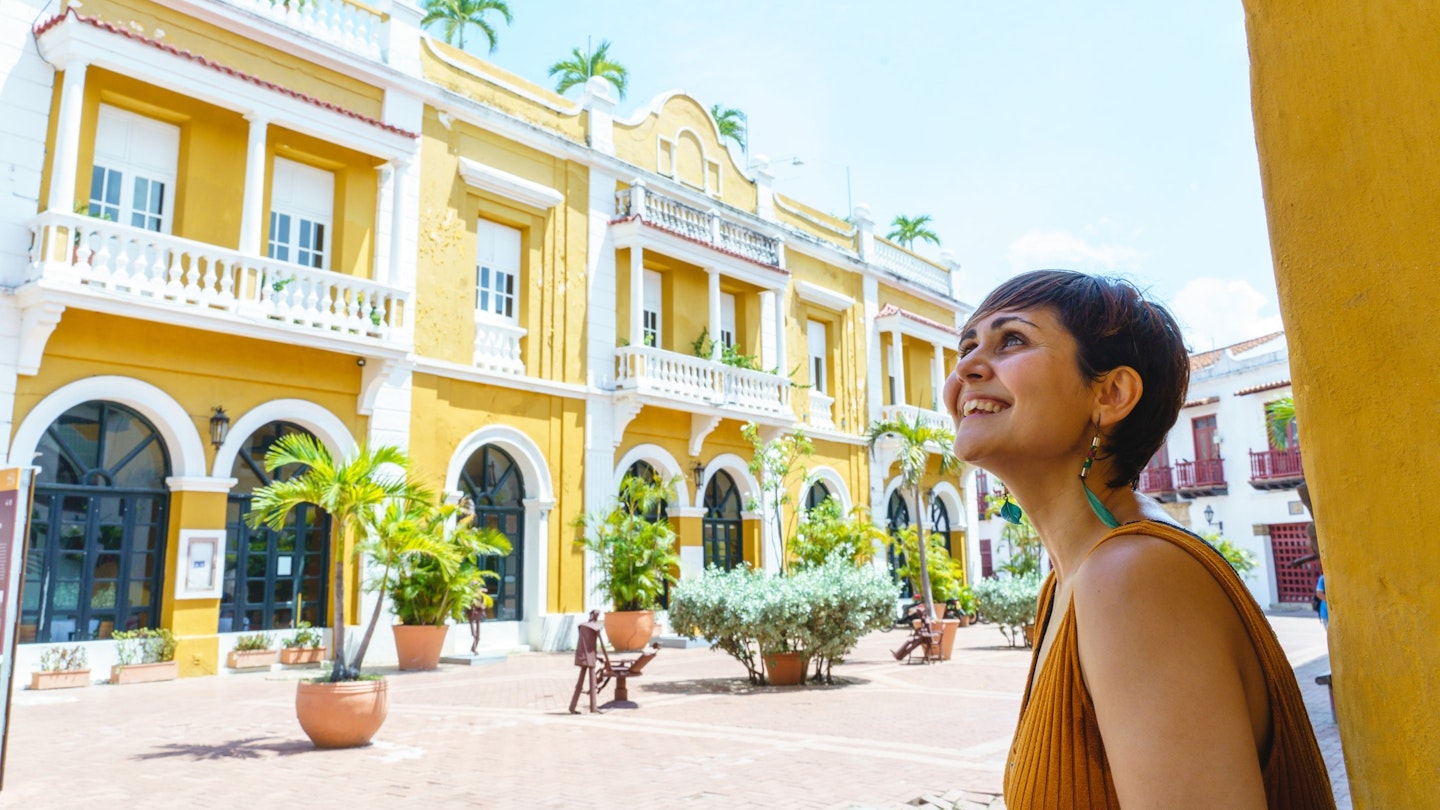
From applying for an e-Visa to extending your stay, here's what you need to know about entry requirements for India © beavera / Getty Images
With its dense tapestry of cultures and landscapes, India feels like dozens of countries rolled into one, but a single visa will cover you for travel across more than 3 million sq km (more than a million sq miles) of territory, taking in everything from steamy jungles to the high passes of the Himalayas.
Every Indian state is as large and diverse as a nation, so take your time navigating this enormous and fascinating country. The good news is that visas are easy to obtain and allow plenty of time for exploring.
Here’s everything you need to know about visa requirements for India, from the application process for e-Visas to overland travel and extending your stay.
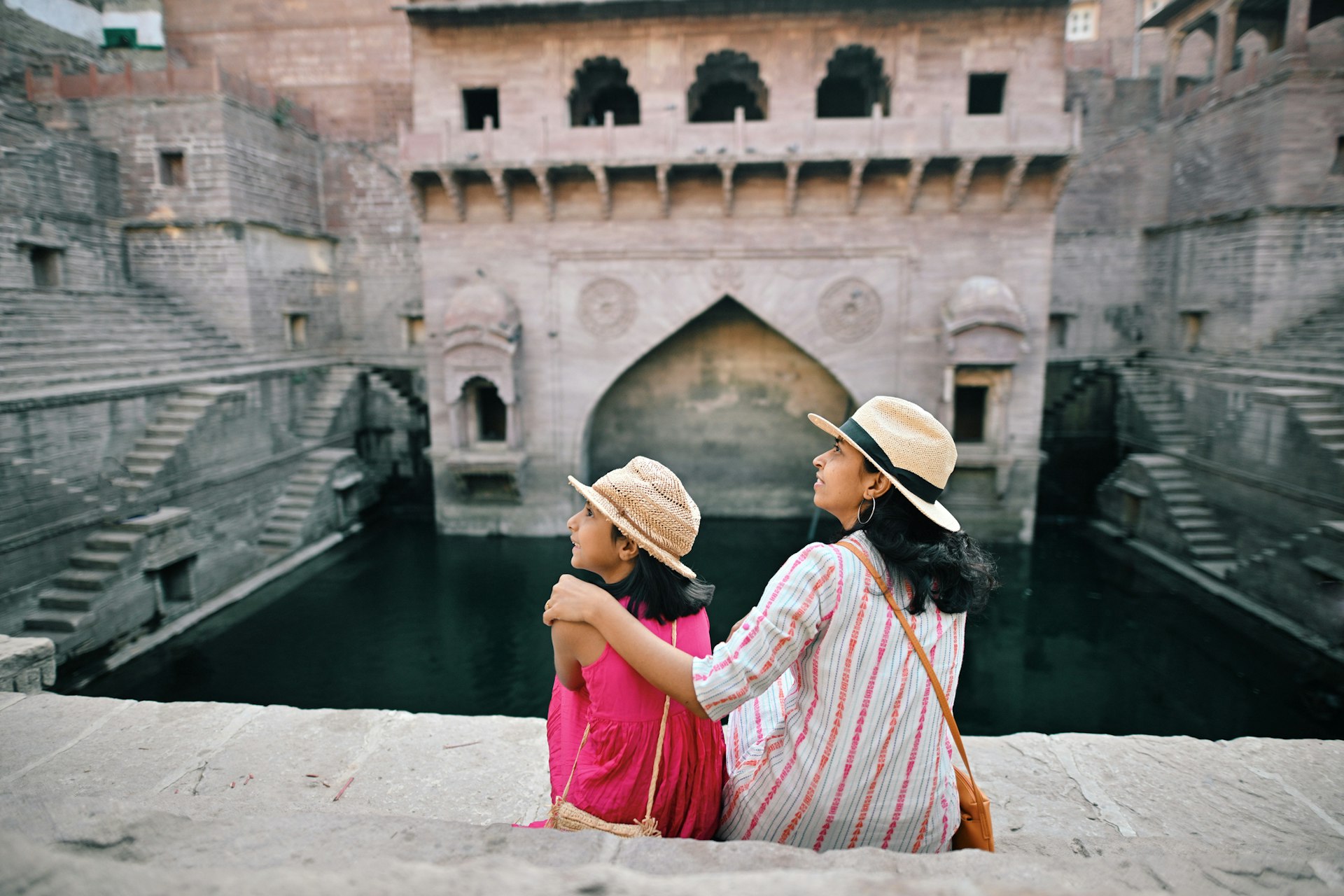
You'll probably need a visa to go to India
Almost everyone needs a visa to visit India , but for most nationalities, tourist visas are easy to obtain online or through your local Indian embassy or consulate. Citizens of 166 countries – including most nations in the EU and EEA, the UK, the US, Australia and New Zealand, and many countries in Asia, Africa, the Middle East and Latin America – can apply for an e-Visa before traveling via a simple online form .
Applying online is a fairly painless process, and it will save you hours compared to applying in person at an embassy or through a visa agency (in countries where Indian embassies no longer issue visas directly). Tourist e-Visas are available with a validity of 30 days, one year or five years, with the one- and five-year visas allowing for multiple entries for a maximum stay of 180 days on each visit.
For one- and five-year tourist visas, applications are accepted up to 120 days in advance of travel. The 30-day visa allows two entries into India, which is handy if you’re planning a side trip to Nepal , and you can apply up to 30 days in advance of travel. All e-Visas take at least 72 hours to process, so be sure to apply in plenty of time (at least 4 days in advance is recommended).
Applying online is the most hassle-free way to obtain a visa
The Indian government’s online e-Visa portal can be used to apply for tourist visas, business visas, and visas for medical treatment and attending conferences. The cost and duration of the visa vary depending on your nationality, and you may need to show proof of return travel arrangements and sufficient funds to support yourself during your trip.
Rules for non-tourist visas can be complex. Business travelers usually need to provide letters of introduction from Indian companies and organizations that they plan to meet. Assuming you meet the requirements, business visas are usually valid for multiple entries over the space of one year.
Working for an Indian company is more complicated. You’ll need an employment visa and a work permit, and most people need a firm job offer and assistance from an Indian employer to complete the paperwork. As with all visa requirements, the situation is subject to change; contact your local Indian embassy or consulate for the most up-to-date information.
Applying for a tourist e-Visa is fairly straightforward
To apply for an Indian e-Visa, visit the government’s official e-Visa portal . You’ll need to upload a digital passport-style photo and copies of your passport ID pages, and pay the visa fee, which varies depending on your nationality.
Your passport must be valid for six months beyond the date of entry, and you’ll need two spare pages for the visa, which will be physically stamped into your passport on arrival. Assuming your application is accepted – which is the case for most applicants – you’ll receive a digital Electronic Travel Authorization (ETA), which you should print out and carry with you when you travel, so you can present it to the immigration authorities on arrival.
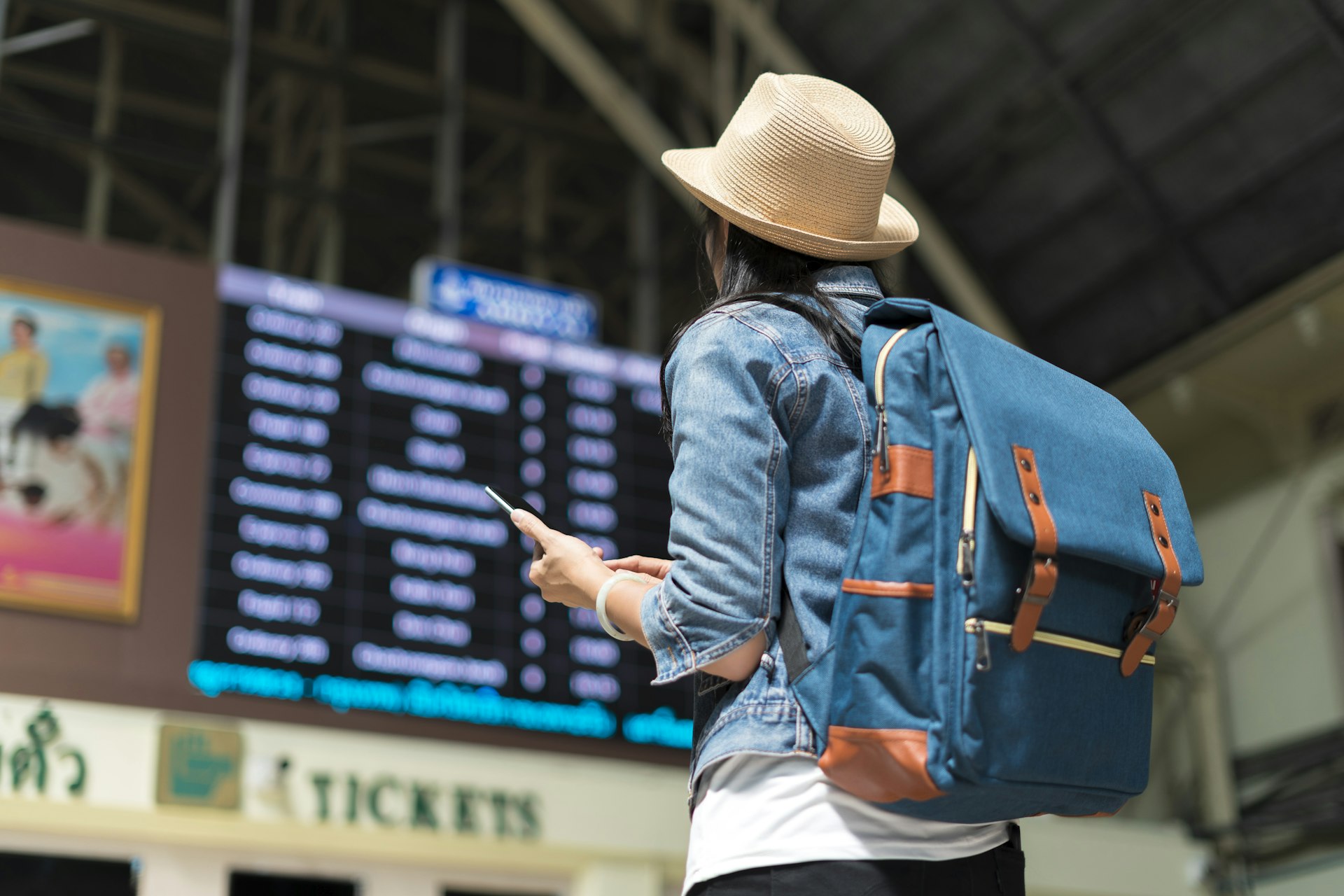
Enter India via air or sea on your e-Visa
E-Visas allow entry to India through 25 designated airports: Delhi, Mumbai, Chennai, Kolkata, Thiruvananthapuram (Trivandrum), Bengaluru (Bangalore), Hyderabad, Kochi (Cochin), Goa, Ahmedabad, Amritsar, Gaya, Jaipur, Lucknow, Trichy (Tiruchirappalli), Varanasi, Kozhikode (Calicut), Mangaluru (Mangalore), Pune, Nagpur, Coimbatore, Bagdogra, Guwahati, Chandigarh and Visakhapatnam.
They’re also valid for entry via the designated seaports at Mumbai, Chennai, Kochi, New Mangalore and Mormugao (in Goa).
Apply for a visa before you travel to enter India overland
If you plan to enter India overland – for example, from Nepal or Pakistan – you’ll need a visa stamped into your passport before you leave home, which you’ll need to obtain from the Indian embassy or consulate in your home country, or through an approved visa application office.
If you plan to visit India and Nepal on the same trip, get a multiple-entry visa – it used to be possible to arrange a new Indian tourist visa through the Indian Embassy in Kathmandu , but the authorities may now insist on a two-month gap before issuing a new visa.
There’s no need to worry about applying for a visa for Nepal in advance – they’re available on arrival at border crossings (bring passport photos and US dollars to pay the fee).
If you can't apply for an e-Visa, get one in person in advance
Contact your local embassy or consulate to check the application process in your country; the Indian Ministry of External Affairs maintains a list of diplomatic missions online. It’s best to apply for a visa in your home country – obtaining an Indian visa from an embassy in another country can be tortuously slow, assuming it’s possible at all. Fees and the permitted duration of stay will vary depending on your nationality.
As an alternative to applying through an Indian embassy or consulate, you may be able to apply for a visa through a visa agency – however, this tends to be more expensive than applying directly. In practice, many of these agencies just collect together applications and then send over a staff member to the embassy to apply in person.
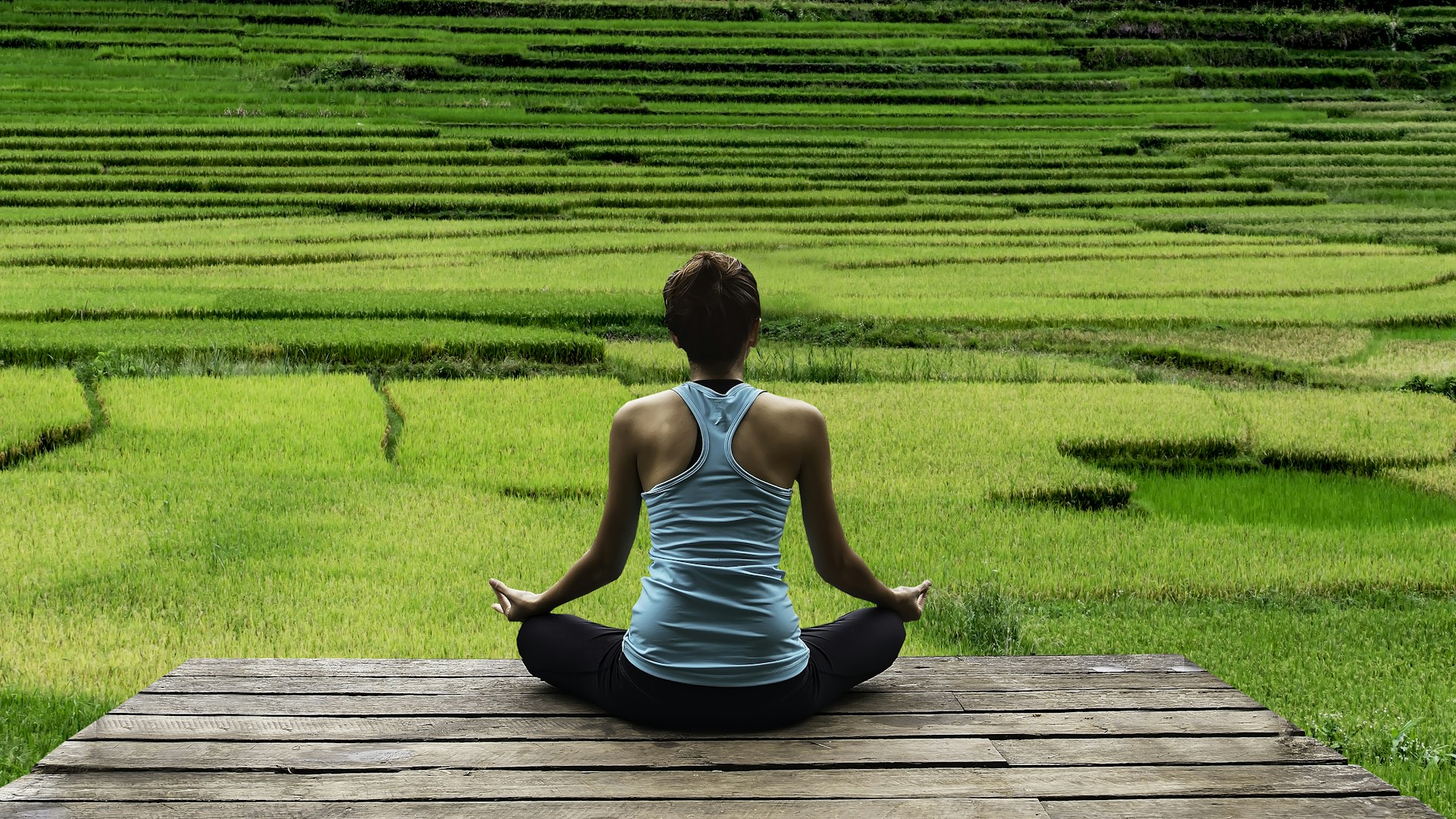
Student visas are available to those on full-time courses in India
Student visas are reserved for people enrolled in approved full-time educational courses in India (which can include training courses in yoga, meditation, and traditional Indian art forms). Student visas are valid for up to five years, depending on the length of the course, but the rules are strict, and you’ll need documentation from the institution where you are studying to apply. The Ministry of Home Affairs provides some information online, but contact your local Indian embassy or consulate for the most up-to-date requirements.
Extending your stay in India is for exceptional circumstances only
E-Visas cannot be extended, but other types of visas can, though only in exceptional circumstances, such as medical emergencies or theft of your passport. To apply, you’ll need to use the government’s special online portal , providing evidence of a valid reason for extending your stay in India (e.g., a letter from the hospital where you are being treated or a police report).
You may then be called in for an in-person interview at the Foreigners’ Regional Registration Office (FRRO) in Delhi. If there is a fee, it will be made clear during the application process.
Some border areas in India require additional travel permits
Under a system carried over from British colonial rule, special permits (known as “protected area permits” or “restricted area permits”) are required to visit many areas close to India’s disputed external borders with China , Pakistan and other territories – a zone known as the “inner line.” Applying for these permits outside India is tricky, but you can apply locally in India without too much difficulty.
Permits are especially important for highly sensitive border areas (which tend to be off-limits to all travelers). Applications can be made through local government offices or local travel agencies; contact the state government offices for these regions to get the latest information. In some areas, you may need to register with the local Foreigners Regional Registration Office on arrival, but this is an easy process.
This article was first published March 2022 and updated December 2023
Explore related stories
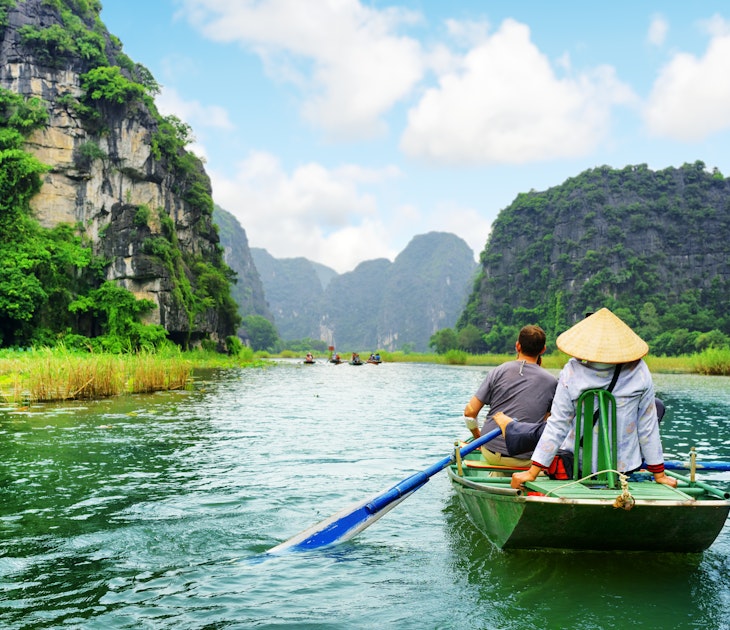
Mar 14, 2024 • 10 min read
Whether it's bus, train, private car, motorcycle, bike, plane or boat, you can plan your trip around Vietnam with this guide to getting around.
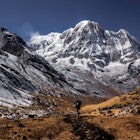
Feb 22, 2024 • 3 min read
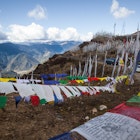
Jan 14, 2024 • 8 min read

Jan 11, 2024 • 4 min read

Jan 2, 2024 • 8 min read

Jan 2, 2024 • 11 min read

Dec 27, 2023 • 8 min read
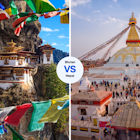
Dec 20, 2023 • 11 min read

Dec 16, 2023 • 12 min read
- Main Menu ×
- Search Flights
- Corporate Travel Programme
- Group Booking
- Special Offers
- Travel Insurance
- Flight Schedule
- Check In Online
- Manage Booking
- Seat Selection & Upgrades
- Self-Service Re-accommodation
- Request Refund
- Flight Status
- Nonstop International Flights
- Popular Flights
- Partner Airlines
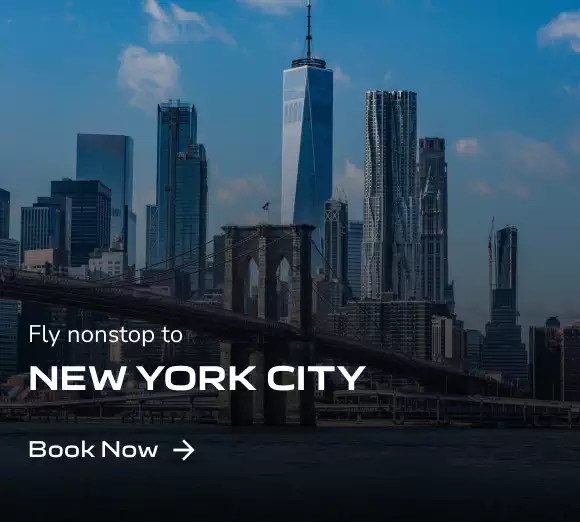
- Baggage Guidelines
- Airport Information
- Visas, Documents and Travel Tips
- First-time Travellers, Children and Pets
- Health and Medical Assistance

- At the Airport
- The Air India Fleet

- About Flying Returns
- Sign In/Sign Up
- Our Partners
- Family Pool
- Earn Points
- Spend Points
- Upgrade Cabin Class
- Points Calculator
- Customer Support

What are you looking for?
VISA, DOCUMENTS AND TRAVEL TIPS
All you need to know about visa, documents, and travel tips.
We are excited about your upcoming trip with us, and we promise to make it memorable and seamless. Before leaving for the airport, please check if you have your documents in place. Also, read Air India’s travel advisory for various airports and cities across India and the world.
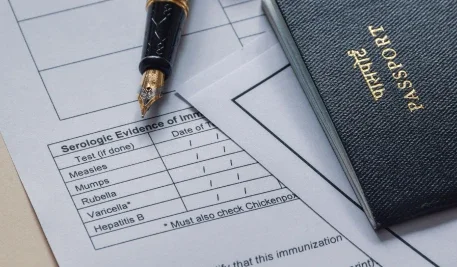
Documents to carry
Ensure you carry all necessary documents, including domestic or international flight tickets. If you’re flying to an international destination, please have a valid visa and passport.
Travelling to India
The Indian government provides information about visa requirements and the online application process. If you’re an Indian citizen travelling to Mizoram, Imphal, Lakshadweep, or Andaman and Nicobar Islands, you will require an entry permit and other permissions to travel.
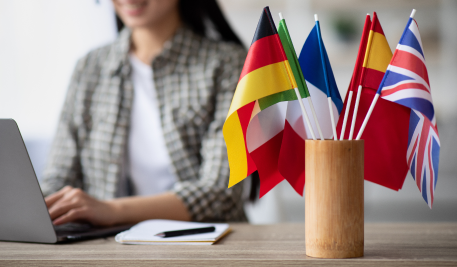
Overseas citizen of India
The Indian government has eased rules for overseas citizen of India (OCI) cardholders travelling to or from India. Find out about the regulations and renewal norms that apply to OCI cardholders.
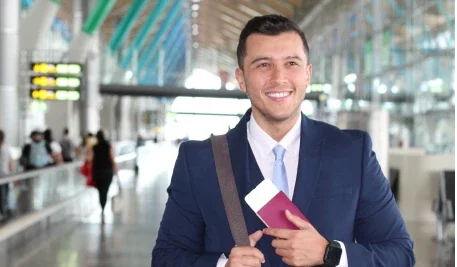
Travelling through multiple airports
Are you flying to another country via multiple airports? Not sure what necessary details you need to check before your travel? Needn't worry. Let's simplify your travel through multiple airports. Read our transit rules and have a hassle-free journey.
Travel to Canada, the US, and Gulf countries
Get the details on visa requirements, entry guidelines, baggage allowances, and more before your travel.

United States
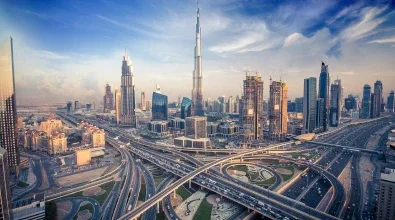
Gulf Countries
Guidelines and regulations by country.
Find out country-specific guidelines regarding visa, boarding, and carrying funds.
Hide View Australia Australia -->

Hide View Male Male -->
Visa requirements for passengers travelling between Male and other countries via India
Foreign nationals travelling between Male and other countries via India must have a visa. The connection involves travel in a domestic sector within India. Those who have a valid visa will be allowed boarding.
Verify work visa for seamless travel
Guests travelling to Male for work are requested to verify your work visa to ensure a smooth travel experience. This proactive measure minimises potential INAD instances and maintains the highest service standards.
Hide View Nepal Nepal -->
Travel advisory for Nepal
Are you planning to trek through the Himalayan ranges or visit the majestic temples in Nepal? We at Air India want you to have an experience of a lifetime. If you are an Indian citizen travelling to or from Nepal, we request you to refer to the guidelines below.
You should carry the following documents
- A valid Indian passport.
- A valid photo ID proof issued by the Government of India/State government/Union Territory administration in India to their employees or an election ID card issued by the Election Commission of India.
- Emergency certificate issued by the Embassy of India, Kathmandu.
- Identity certificate issued by the Embassy of India, Kathmandu.
- Persons above 65 years and below 15 years would be exempted from the requirement of approved identity documents mentioned above. However, they must have documents with a photograph confirming their age and identity, such as a PAN card, driver's license, Central Government Health Scheme card or ration card.
- Children between the ages of 15 and 18 may be allowed to travel between India and Nepal on the strength of an identity certificate issued by the school principal in the prescribed format.
- If you and your family are travelling together to or from Nepal a. Any one adult in the family should present all four documents mentioned above. b. The rest of the family members are exempt from presenting the above documents except for a valid photo ID and a document that proves the relationship as a family, such as a Central Government Health Scheme card, ration card, driving license or ID card issued by school/college, etc.
- An Aadhaar (UID) card is not an acceptable travel document for travel to Nepal.
- Emergency and identity certificate is valid only for a single journey from Nepal.
- Certificate of Registration issued by the Embassy of India in Nepal to Indian nationals will not be accepted when travelling to or from Nepal.
For the latest information on travel guidelines when travelling to Nepal, visit
- https://www.indembkathmandu.gov.in/page/valid-travel-documents
- https://www.immigration.gov.np/post/information-for-indian-nationals
Hide View New Zealand New Zealand -->
New Zealand’s Electronic Travel Authority
Passengers are requested to visit immigration.govt.nz to check if they need an NZeTA before travelling to New Zealand. The only official way to request an NZeTA is through the government website or the mobile app. Passengers should not request their NZeTA through any unauthorized third party.
Passengers travelling on New Zealand or Australian passports and those without visas do not need an NZeTA. To find out more, visit immigration.govt.nz/zeta .
Hide View Russia Russia -->
Waiver on flights for Russia
Have you booked a flight ticket to or from Moscow, Russia, but are still determining your travel due to the recent events in the country? Don't worry. We understand your concern and have come up with a solution. Passengers with confirmed Air India tickets flying in and out of Sheremetyevo - A.S. Pushkin International Airport (SVO), Moscow, can make one free change (flight or date) to a new date within the ticket's validity.
Passengers can apply for a refund free of cost. However, make sure the booking is cancelled for the ticket to be considered a 'no-show'.
Hide View Thailand Thailand -->
Visa on arrival
To facilitate passenger flow, the Immigration Authority of Thailand has requested all passengers to download the visa on arrival form and fill it out before arriving in Thailand. Click here to check if you require a visa for your trip.
Hide View UK UK -->
Passport and visa requirements
You can cross the UK border using a valid passport, which should be valid the whole time you are in the UK. The EU, EEA, and Swiss citizens can travel for short trips without a visa to the UK.
You cannot use an EU, EEA or Swiss national ID card to enter the UK unless:
- You have settled or pre-settled status under the EU Settlement Scheme, Jersey, Guernsey, or the Isle of Man's settlement schemes.
- You have an EU Settlement Scheme family permit or the equivalent from Jersey, Guernsey or the Isle of Man.
- Have a frontier worker permit.
- You are a S2 Healthcare visitor.
EU, EEA and Swiss nationals in the groups mentioned can still use their ID cards to travel to the UK until 31 December 2025. They will also be able to use them after that date if the cards meet the security standards set by the International Civil Aviation Organisation.
This will also not apply to Gibraltar ID cards issued to British citizens or passport cards issued to Irish citizens. They will continue to be accepted for travel to the UK.
Passengers under 18 years of age
For the safety and welfare of every child, passengers under 18 years travelling without a parent or legal guardian must arrive with written consent as per the UK Border Force.
If the child is travelling alone to the UK, a consent form must be signed by both parents.
For the most recent and additional information, visit https://www.gov.uk/standard-visitor/if-youre-under-18 ..
Children travelling from the UK
Suppose you are travelling with a child from the United Kingdom. In that case, you must get the permission of everyone with parental responsibility for the child or from a court of law before taking the minor abroad.
You must carry the consent form and have a valid photo identification proof (passport or driving license) of both the parents and the child's birth certificate.
You can also email the consent form with the valid photo identification proof of both the parents and the child's birth certificate to aitraffic.lhr@airindia.com at least 4 hours before the scheduled departure of your flight.
For more details, refer to https://www.gov.uk/permission-take-child-abroad .
It seems like you're in landscape mode. For the best view, switch to portrait mode where the magic happens!
Featured on

- What is a visa?
- Electronic Visa (eVisa)
- Visa on Arrival
- Appointment Required Visa
- Invitation Letter
- Arrival Card
- Passport Renewal
- Project Kosmos: Meet the man with the world's most challenging travel schedule
- Australia Visa and ETA Requirements for US Citizens Explained
- Brazil eVisa for US Citizens
- India Tourist Visa for UK Citizens
- Possible B1/B2 Visa Questions During the Interview
Select Your Language
- Nederlandse
- 中文 (Zhōngwén), 汉语, 漢語
Select Your Currency
- AED United Arab Emirates Dirham
- AFN Afghan Afghani
- ALL Albanian Lek
- AMD Armenian Dram
- ANG Netherlands Antillean Guilder
- AOA Angolan Kwanza
- ARS Argentine Peso
- AUD Australian Dollar
- AWG Aruban Florin
- AZN Azerbaijani Manat
- BAM Bosnia-Herzegovina Convertible Mark
- BBD Barbadian Dollar
- BDT Bangladeshi Taka
- BGN Bulgarian Lev
- BIF Burundian Franc
- BMD Bermudan Dollar
- BND Brunei Dollar
- BOB Bolivian Boliviano
- BRL Brazilian Real
- BSD Bahamian Dollar
- BWP Botswanan Pula
- BZD Belize Dollar
- CAD Canadian Dollar
- CDF Congolese Franc
- CHF Swiss Franc
- CLP Chilean Peso
- CNY Chinese Yuan
- COP Colombian Peso
- CRC Costa Rican Colón
- CVE Cape Verdean Escudo
- CZK Czech Republic Koruna
- DJF Djiboutian Franc
- DKK Danish Krone
- DOP Dominican Peso
- DZD Algerian Dinar
- EGP Egyptian Pound
- ETB Ethiopian Birr
- FJD Fijian Dollar
- FKP Falkland Islands Pound
- GBP British Pound Sterling
- GEL Georgian Lari
- GIP Gibraltar Pound
- GMD Gambian Dalasi
- GNF Guinean Franc
- GTQ Guatemalan Quetzal
- GYD Guyanaese Dollar
- HKD Hong Kong Dollar
- HNL Honduran Lempira
- HTG Haitian Gourde
- HUF Hungarian Forint
- IDR Indonesian Rupiah
- ILS Israeli New Sheqel
- INR Indian Rupee
- ISK Icelandic Króna
- JMD Jamaican Dollar
- JPY Japanese Yen
- KES Kenyan Shilling
- KGS Kyrgystani Som
- KHR Cambodian Riel
- KMF Comorian Franc
- KRW South Korean Won
- KYD Cayman Islands Dollar
- KZT Kazakhstani Tenge
- LAK Laotian Kip
- LBP Lebanese Pound
- LKR Sri Lankan Rupee
- LRD Liberian Dollar
- LSL Lesotho Loti
- MAD Moroccan Dirham
- MDL Moldovan Leu
- MGA Malagasy Ariary
- MKD Macedonian Denar
- MNT Mongolian Tugrik
- MOP Macanese Pataca
- MUR Mauritian Rupee
- MVR Maldivian Rufiyaa
- MWK Malawian Kwacha
- MXN Mexican Peso
- MYR Malaysian Ringgit
- MZN Mozambican Metical
- NAD Namibian Dollar
- NGN Nigerian Naira
- NIO Nicaraguan Córdoba
- NOK Norwegian Krone
- NPR Nepalese Rupee
- NZD New Zealand Dollar
- OMR Omani Rial
- PAB Panamanian Balboa
- PEN Peruvian Nuevo Sol
- PGK Papua New Guinean Kina
- PHP Philippine Peso
- PKR Pakistani Rupee
- PLN Polish Zloty
- PYG Paraguayan Guarani
- QAR Qatari Rial
- RON Romanian Leu
- RSD Serbian Dinar
- RUB Russian Ruble
- RWF Rwandan Franc
- SAR Saudi Riyal
- SBD Solomon Islands Dollar
- SCR Seychellois Rupee
- SEK Swedish Krona
- SGD Singapore Dollar
- SHP Saint Helena Pound
- SLL Sierra Leonean Leone
- SOS Somali Shilling
- SRD Surinamese Dollar
- SVC Salvadoran Colón
- SZL Swazi Lilangeni
- THB Thai Baht
- TJS Tajikistani Somoni
- TOP Tongan Pa anga
- TRY Turkish Lira
- TTD Trinidad and Tobago Dollar
- TWD New Taiwan Dollar
- TZS Tanzanian Shilling
- UAH Ukrainian Hryvnia
- UGX Ugandan Shilling
- USD United States Dollar
- UYU Uruguayan Peso
- UZS Uzbekistan Som
- VND Vietnamese Dong
- VUV Vanuatu Vatu
- WST Samoan Tala
- XAF CFA Franc BEAC
- XCD East Caribbean Dollar
- XOF CFA Franc BCEAO
- XPF CFP Franc
- YER Yemeni Rial
- ZAR South African Rand
- ZMW Zambian Kwacha
We've updated our app!
Download it now
India COVID-19 travel rules, requirements, and restrictions
Looking to visit India for tourism, business, or medical treatment? We're here to help you navigate the rules and restrictions of India for a stress-free trip.
Keep reading to find out all you need to know.
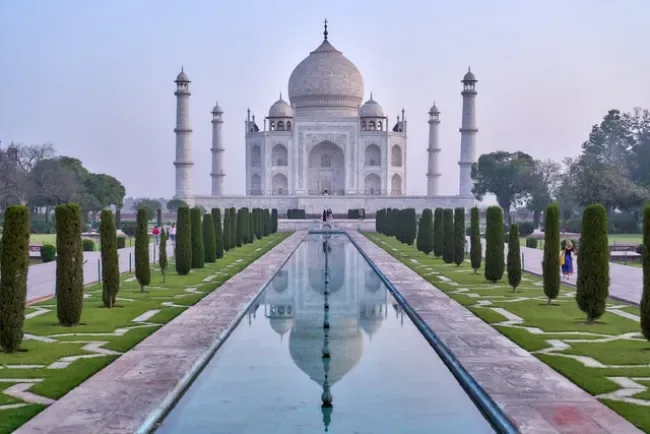
Visa information for travelers entering India
Currently, travelers do not require a self-declaration form. However, all travelers must still adhere to visa requirements. This means nationals requiring an Indian visa must apply for one before they travel to the country.
Choose the right visa for your trip! Click on one of the links to find out more and apply instantly online:
- India e-Tourist Visa : For travelers who wish to explore India for tourism purposes.
- India e-Business Visa : For those entering the country to attend business meetings and business events.
- India e-Medical Visa : For those traveling to India to undergo medical treatment.
You can also use our handy Visa Checker Tool to check if your nationality is eligible and which visa you may need.
COVID-19 regulations and requirements in India
Since November 22, 2022, foreign nationals and citizens of India no longer need a self-declaration form, proof of vaccination, or a negative RT-PCR test to enter India.
Who can I talk to if I have more questions?
If you have questions about applying for an Indian visa or travel restrictions, contact our expert customer service team via online chat or email us at [email protected] .
Related Articles
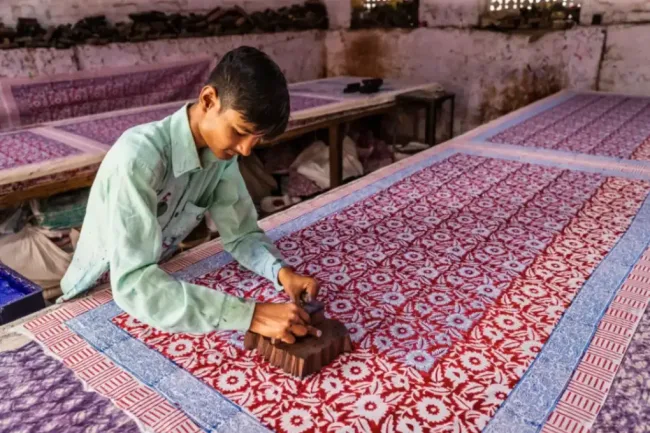
India e-Visa Validity: How Long is it Valid For?
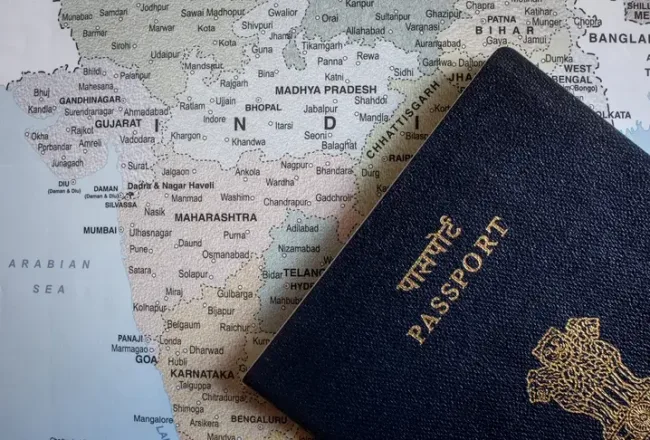
Indian Passport Renewal: Everything You Must Know
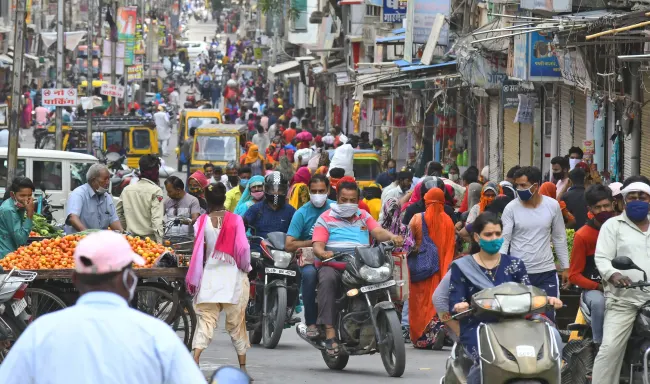
India Tourist Visa for South Korean citizens: Apply for the India Visa now
- iVisa is NOT affiliated with any government agency. This site does not provide legal advice and we are not a law firm. None of our customer service representatives are lawyers and they also do not provide legal advice. We are a private, internet-based travel and immigration consultancy provider dedicated to helping individuals travel around the world. You may apply by yourself directly on the various government websites. The source of information: https://boi.gov.in/boi/
- Skip to main content
- Skip to "About this site"
Language selection
Search travel.gc.ca.
Help us to improve our website. Take our survey !
COVID-19: travel health notice for all travellers
India travel advice
Latest updates: The Need help? section was updated.
Last updated: April 11, 2024 13:58 ET
On this page
Safety and security, entry and exit requirements, laws and culture, natural disasters and climate, india - exercise a high degree of caution.
Exercise a high degree of caution in India due to the threat of terrorist attacks throughout the country.
In and around Bengaluru, Chandigarh and Mumbai - Exercise a high degree of caution
Exercise a high degree of caution in and around Bengaluru, Chandigarh and Mumbai. Consular services in-person are temporarily unavailable in those cities or surrounding areas. If you need consular services, contact the High Commission of Canada in India, located in New Delhi. At any time, you may also contact the Emergency Watch and Response Centre in Ottawa.
Parts of Northeastern India - Avoid non-essential travel
Union territory of jammu and kashmir - avoid all travel.
This advisory excludes travelling to or within the Union Territory of Ladakh.
Border areas with Pakistan - Avoid all travel
This advisory excludes the Wagah border crossing.
Back to top
Security situation
In the context of recent developments in Canada and in India, there are calls for protests and some negative sentiment towards Canada in traditional media and on social media. Demonstrations, including anti-Canada protests, could occur and Canadians may be subjected to intimidation or harassment. In Delhi and the National Capital Region, you should keep a low profile with strangers, and not share your personal information with them. Avoid crowded areas, including public transportation. You should always travel with someone and inform a friend or a family member of your travel plans.
Consular services in person are temporarily unavailable in and around Bengaluru, Chandigarh and Mumbai. Consular services in person at the High Commission of Canada in New Delhi will remain available.
Union Territory of Jammu and Kashmir
The security situation in the Union Territory of Jammu and Kashmir is tense. There are high risks of violent protests, civil unrest and acts of terrorism and militancy.
Violent clashes between militants and security forces occur regularly. Terrorist attacks against security forces have led to civilian casualties. Further attacks could take place at any time. You could find yourself in the wrong place at the wrong time.
The Indian army has enhanced powers in this territory. Authorities may impose curfews and security restrictions on short notice.
- Avoid gatherings and demonstrations
- Always carry ID
- Expect a heightened security presence and security checks
- Follow the instructions of local authorities
Border areas with Pakistan
The level of tension between India and Pakistan may change suddenly. You could experience difficulties when travelling between the two countries. You may be subject to scrutiny if officials from either country become aware that you have recently travelled to the other.
The security situation along the border with Pakistan, especially along the Line of Control (LoC), which separates the Union territories of Jammu and Kashmir and Ladakh from Pakistan-administered Kashmir, remains volatile. Cross-border gunfire and shelling are occurring sporadically along the LoC. The presence of landmines and unexploded ordnance also constitute a risk.
Although international travellers regularly use the Wagah border crossing linking Amritsar, India, to Lahore, Pakistan, it remains vulnerable to attack. Security measures are in place. You may experience long delays.
Parts of Northeastern India
Several extremist and insurgent groups are active in the northeastern states of Assam and Manipur. They regularly target local government and security forces and may use various criminal activities to finance their activities.
Ethnic tensions in the State can also lead to conflict and civil unrest.
There is a threat of terrorism in India, particularly in:
- the Union territory of Jammu and Kashmir
- the State of Manipur
- the State of Assam
- areas of East India where Naxalites groups are active
Maoist extremist insurgents, known as Naxalites, are responsible for the majority of terrorist attacks in India. These groups are usually based in rural and forested areas within zones of concerns, as defined by the Government of India, which include:
- Andhra Pradesh
- Chhattisgarh
- Madhya Pradesh
- Maharashtra
- Uttar Pradesh
- West Bengal
Extremist and insurgent groups usually target government and security forces, and sometimes, trains and railway tracks. While tourists are not usually specifically targeted, bystanders could be affected. Be particularly vigilant during election periods and in the lead-up to, and during, religious holidays and times of national significance, such as:
- Republic Day (January 26)
- Independence Day (August 15)
Targets of terrorist attacks could include:
- government buildings, including schools
- places of worship
- airports and other transportation hubs and networks
- public areas such as tourist attractions, restaurants, bars, coffee shops, shopping centres, markets, hotels and other sites frequented by foreigners
While in India:
- always be aware of your surroundings when in public places
- if you see a suspicious package, immediately leave the area and report it to authorities
Petty crime, such as pickpocketing and purse snatching, is common. Criminals may target foreigners, especially in major cities and tourist areas.
- Be vigilant in all crowded locations
- Don’t carry large sums of money
- Ensure that your personal belongings, including your passport and other travel documents, are secure at all times
Petty crime frequently occurs on public transportation and overnight trains.
- Ensure that the train compartment contains packages belonging only to you and other occupants
- Store personal belongings in a safe place, and don’t leave the compartment unattended
- Securely lock the doors
Serious crime against foreigners is less frequent, but incidents do occur.
Credit card and ATM fraud occurs. Be cautious when using debit or credit cards:
- pay careful attention when your cards are being handled by others
- use ATMs located in well-lit public areas or inside a bank or business
- avoid using card readers with an irregular or unusual feature
- cover the keypad with one hand when entering your PIN
- check for any unauthorized transactions on your account statements
Exercise caution in tourist areas and airports where scammers particularly target foreigners.
Scams involving the exportation of jewels, gemstones, carpets, and other items have occurred. Taxi drivers may approach you, offering money to export such items.
- Don’t accept any offer, no matter how convincing
- Beware of offers for cheap transportation or accommodation, extended taxi rides and unsolicited guided tours
Romance scams
If you’re travelling to India to meet someone you’ve otherwise only met online, you may be the victim of a scam.
Be alert to attempts at fraud by persons who profess friendship or romantic interest over the internet.
Investment scams
Unsolicited emails offering attractive business or financial opportunities are most likely fraudulent.
Don’t travel to India to obtain restitution after losing money to a scam.
Overseas fraud
Spiked food and drinks
Never leave food or drinks unattended or in the care of strangers. Be wary of accepting snacks, beverages, gum or cigarettes from new acquaintances. These items may contain drugs that could put you at risk of sexual assault and robbery.
Women’s safety
Crimes committed against women frequently occur in India. Foreign women are often the target of unwanted attention.
Staring, verbal abuse, groping, and other forms of sexual harassment can occur anywhere, including in tourist sites and areas. Attackers sometimes act as a group.
Reports of rape and assault against foreign women have increased. You should be particularly vigilant:
- on all forms of public transportation
- at Yoga centres, ashrams and other places of spiritual retreats
Local authorities may not always respond adequately to reports of sexual violence and harassment.
- Avoid travelling alone, particularly at night
- Be extremely vigilant on public transportation, taxis and auto-rickshaws
- Be careful when dealing with strangers or new acquaintances
- Be wary of accepting snacks or beverages from new acquaintances
- Avoid less populous and unlit areas
- Respect local customs and dress codes
- Reach police immediately if you feel threatened
If you are the victim of a sexual assault, you should report it immediately to local authorities and the nearest office of the Government of Canada.
Advice for women travellers
Forced marriages
Forced marriage affecting foreigners occurs, sometimes without the affected person’s prior knowledge or consent.
Some Canadians have been forced into marital arrangements and have been detained against their will. They have been subjected to threats, intimidation and violence by family members.
If you’re in Canada
If you’re in Canada and you believe that you’re being forced to travel overseas to marry, you should call your local police for assistance.
If you’re in India
If you’re in India and you believe that you’re being forced to marry, contact the nearest office of the Government of Canada. You may also contact the Emergency Watch and Response Centre .
Family members may retain passports to prevent victims from returning to Canada. Keep digital or physical copies of your travel documents in a safe place.
General information and advice about forced marriage
Demonstrations and mass gatherings
Protests in manipur.
Violent demonstrations have been taking place in Manipur State since May 3, 2023, resulting in casualties. Protests have led to disruptions to traffic and public transportation. Curfews have been imposed in several districts and mobile and internet services may be limited.
If you are in Manipur:
- monitor local media for the most recent information
- follow the instructions of local authorities
- be prepared to modify your plans in case of disturbances
- expect enhanced security measures and an increased police presence
Demonstrations, mass gatherings, general strikes, “bandh” or “hartal,” take place frequently. Even peaceful demonstrations can turn violent at any time. They can also lead to disruptions to traffic and public transportation.
Stampedes have occurred during mass gatherings, including religious ceremonies, and resulted in deaths and injuries.
Local authorities may impose curfews and other restrictions on short notice.
- Avoid areas where demonstrations and large gatherings are taking place
- Follow the instructions of local authorities, including curfews
- Monitor local media for information on ongoing demonstrations
Mass gatherings (large-scale events)
Road safety
Road conditions and road safety are poor throughout the country. Most roads, including major highways, are poorly maintained. There is severe traffic congestion. Driving conditions may be hazardous during the rainy season, and some roads can become impassable.
Drivers don’t respect traffic laws. They are often aggressive or reckless. Driving can be hazardous due to the presence of livestock or wandering cows, including in urban areas.
Fatal road accidents are frequent. They can lead to mob anger and assault.
- Avoid travelling outside urban centres after dark
- Avoid driving or riding motorcycles in India, even if you are an experienced motorcyclist
- Be very careful when crossing the street, even at pedestrian crossings
- If involved in an accident, contact local authorities immediately
Public transportation
India has an extensive passenger train system. Rail accidents are common, mostly due to poor maintenance. Thefts are frequent on certain train lines.
If you use a taxi, get it from a reputable hotel, an official taxi stand, or a trusted ride-sharing app. At the airport, use officially marked taxis or pre-paid transport services.
- Negotiate fares in advance, or insist that the driver use the meter, as you may be overcharged
- Avoid travelling alone, especially at night
- Don’t share taxis with strangers
Maritime transportation
Maritime accidents occur regularly due to the overloading and poor maintenance of some vessels.
- Don’t board vessels that appear overloaded or unseaworthy
- Always wear a life jacket
Pirate attacks and armed robbery against ships occur in coastal waters. Mariners should take appropriate precautions.
Live piracy report - International Maritime Bureau
Water activities
Coastal waters can be dangerous. Riptides are common. Several drownings occur each year.
Beaches are not usually supervised by lifeguards. Many beaches don’t display warnings of dangerous conditions.
- Seek local advice before swimming
- Avoid swimming if red flags are flown
- Avoid swimming during Monsoon season
- Always wear a life jacket if you use a boat or a small embarkation
Water safety abroad
No commercial mountain rescue services are operating above 3,000 metres.
If you intend on trekking:
- never do so alone and always hire an experienced guide from a reputable company
- buy travel insurance that includes helicopter rescue and medical evacuation
- ensure that your physical condition is good enough to meet the challenges of your activity
- ensure that you’re adequately equipped and well informed about weather and other conditions that may pose a hazard
- inform a family member or friend of your itinerary, including when you expect to be back to camp
- know the symptoms of acute altitude sickness, which can be fatal
- obtain detailed information on trekking routes or ski slopes before setting out and do not venture off marked trails or slopes
Wildlife viewing
Wildlife viewing may pose risks, particularly on foot or at close range. If you plan on visiting a wildlife area such as a tiger reserve:
- always maintain a safe distance when observing wildlife
- only exit a vehicle when a professional guide or warden says it’s safe to do so
- only use reputable and professional guides or tour operators
- closely follow park regulations and wardens’ advice
Large groups of monkeys are present in several parts of India, including some urban regions. Monkeys can get aggressive and rapidly overwhelm travellers in their search for food. They can also steal your belongings.
Be vigilant when in the presence of monkeys.
We do not make assessments on the compliance of foreign domestic airlines with international safety standards.
Information about foreign domestic airlines
Every country or territory decides who can enter or exit through its borders. The Government of Canada cannot intervene on your behalf if you do not meet your destination’s entry or exit requirements.
We have obtained the information on this page from the Indian authorities. It can, however, change at any time.
Verify this information with the Foreign Representatives in Canada .
Entry requirements vary depending on the type of passport you use for travel.
Before you travel, check with your transportation company about passport requirements. Its rules on passport validity may be more stringent than the country’s entry rules.
Regular Canadian passport
Your passport must be valid for 6 months from your date of entry into India and must contain at least two blank pages for use by immigration officials.
Passport for official travel
Different entry rules may apply.
Official travel
Passport with “X” gender identifier
While the Government of Canada issues passports with an “X” gender identifier, it cannot guarantee your entry or transit through other countries. You might face entry restrictions in countries that do not recognize the “X” gender identifier. Before you leave, check with the closest foreign representative for your destination.
Other travel documents
Different entry rules may apply when travelling with a temporary passport or an emergency travel document. Before you leave, check with the closest foreign representative for your destination.
Useful links
- Foreign Representatives in Canada
- Canadian passports
Certain types of Indian visa services for Canadians have resumed. For additional information, please contact the visa service provider directly.
Latest information – Indian Visa Application Center in Canada
Ensure you apply for the proper type of visa for the specific purpose of your trip. If you are denied entry by immigration officials, you will be returned to your point of departure.
Canadian-Pakistani citizens are subject to different visa application and registration procedures.
You can only stay in India for up to 180 consecutive days on a tourist visa, even when its validity exceeds 180 days.
Residency registration
If you stay in India for more than 180 days, you must register within 14 days of arrival with the Foreigners Regional Registration Office (FRRO).
- e-FRRO online portal (for Delhi, Mumbai, Chennai and Bengaluru) – India's Bureau of Immigration
- FRRO Contact List – India's Bureau of Immigration
Penalties for overstaying
Strict penalties are enforced for overstaying. If you overstay, you could be subject to fines, detention and a future travel ban.
If you have overstayed your visa, you must request an exit visa from the Foreigners Regional Registration Office (FRRO). This process can be lengthy.
Other entry requirements
Customs officials may ask you to show them a return or onward ticket and proof of sufficient funds to cover your stay.
Dual citizenship
If you hold an Overseas Citizens of India (OCI) card, you must present it upon entry and exit.
You must present a boarding pass and a photo identification to access airport departure terminals and public areas.
Lost or stolen passport
If your passport is lost or stolen, an exit visa is required to leave India.
To obtain an exit visa, you must present the FRRO with:
- a police report
- two current passport-size photographs
- a letter providing details of the loss or theft from the High Commission of Canada to India in New Delhi or Consulate General of Canada in either Chandigarh or Mumbai
The FRRO will verify the entry details before issuing an exit visa. This process can take several days.
Restricted and Protected Areas
Special permits are required to visit certain parts of India designated as restricted or protected areas.
Restricted or protected areas – India's Bureau of Immigration
- Poliomyelitis
You may need to produce proof of polio vaccination if you are arriving in India from:
- Afghanistan
- the Democratic Republic of the Congo
Confirm this requirement with the nearest Indian diplomatic office before travelling.
- Foreign Representatives in Canada
Children and travel
Learn more about travelling with children .
Yellow fever
Learn about potential entry requirements related to yellow fever (vaccines section).
Relevant Travel Health Notices
- Global Measles Notice - 13 March, 2024
- Zika virus: Advice for travellers - 31 August, 2023
- COVID-19 and International Travel - 13 March, 2024
This section contains information on possible health risks and restrictions regularly found or ongoing in the destination. Follow this advice to lower your risk of becoming ill while travelling. Not all risks are listed below.
Consult a health care professional or visit a travel health clinic preferably 6 weeks before you travel to get personalized health advice and recommendations.
Routine vaccines
Be sure that your routine vaccinations , as per your province or territory , are up-to-date before travelling, regardless of your destination.
Some of these vaccinations include measles-mumps-rubella (MMR), diphtheria, tetanus, pertussis, polio, varicella (chickenpox), influenza and others.
Pre-travel vaccines and medications
You may be at risk for preventable diseases while travelling in this destination. Talk to a travel health professional about which medications or vaccines may be right for you, based on your destination and itinerary.
Yellow fever is a disease caused by a flavivirus from the bite of an infected mosquito.
Travellers get vaccinated either because it is required to enter a country or because it is recommended for their protection.
- There is no risk of yellow fever in this country.
Country Entry Requirement*
- Proof of vaccination is required if you are coming from or have transited through an airport of a country where yellow fever occurs.
Recommendation
- Vaccination is not recommended.
- Discuss travel plans, activities, and destinations with a health care professional.
- Contact a designated Yellow Fever Vaccination Centre well in advance of your trip to arrange for vaccination.
About Yellow Fever
Yellow Fever Vaccination Centres in Canada * It is important to note that country entry requirements may not reflect your risk of yellow fever at your destination. It is recommended that you contact the nearest diplomatic or consular office of the destination(s) you will be visiting to verify any additional entry requirements.
There is a risk of hepatitis A in this destination. It is a disease of the liver. People can get hepatitis A if they ingest contaminated food or water, eat foods prepared by an infectious person, or if they have close physical contact (such as oral-anal sex) with an infectious person, although casual contact among people does not spread the virus.
Practise safe food and water precautions and wash your hands often. Vaccination is recommended for all travellers to areas where hepatitis A is present.
Measles is a highly contagious viral disease. It can spread quickly from person to person by direct contact and through droplets in the air.
Anyone who is not protected against measles is at risk of being infected with it when travelling internationally.
Regardless of where you are going, talk to a health care professional before travelling to make sure you are fully protected against measles.
Japanese encephalitis is a viral infection that can cause swelling of the brain. It is spread to humans through the bite of an infected mosquito. Risk is very low for most travellers. Travellers at relatively higher risk may want to consider vaccination for JE prior to travelling.
Travellers are at higher risk if they will be:
- travelling long term (e.g. more than 30 days)
- making multiple trips to endemic areas
- staying for extended periods in rural areas
- visiting an area suffering a JE outbreak
- engaging in activities involving high contact with mosquitos (e.g., entomologists)
Hepatitis B is a risk in every destination. It is a viral liver disease that is easily transmitted from one person to another through exposure to blood and body fluids containing the hepatitis B virus. Travellers who may be exposed to blood or other bodily fluids (e.g., through sexual contact, medical treatment, sharing needles, tattooing, acupuncture or occupational exposure) are at higher risk of getting hepatitis B.
Hepatitis B vaccination is recommended for all travellers. Prevent hepatitis B infection by practicing safe sex, only using new and sterile drug equipment, and only getting tattoos and piercings in settings that follow public health regulations and standards.
Coronavirus disease (COVID-19) is an infectious viral disease. It can spread from person to person by direct contact and through droplets in the air.
It is recommended that all eligible travellers complete a COVID-19 vaccine series along with any additional recommended doses in Canada before travelling. Evidence shows that vaccines are very effective at preventing severe illness, hospitalization and death from COVID-19. While vaccination provides better protection against serious illness, you may still be at risk of infection from the virus that causes COVID-19. Anyone who has not completed a vaccine series is at increased risk of being infected with the virus that causes COVID-19 and is at greater risk for severe disease when travelling internationally.
Before travelling, verify your destination’s COVID-19 vaccination entry/exit requirements. Regardless of where you are going, talk to a health care professional before travelling to make sure you are adequately protected against COVID-19.
The best way to protect yourself from seasonal influenza (flu) is to get vaccinated every year. Get the flu shot at least 2 weeks before travelling.
The flu occurs worldwide.
- In the Northern Hemisphere, the flu season usually runs from November to April.
- In the Southern Hemisphere, the flu season usually runs between April and October.
- In the tropics, there is flu activity year round.
The flu vaccine available in one hemisphere may only offer partial protection against the flu in the other hemisphere.
The flu virus spreads from person to person when they cough or sneeze or by touching objects and surfaces that have been contaminated with the virus. Clean your hands often and wear a mask if you have a fever or respiratory symptoms.
Typhoid is a bacterial infection spread by contaminated food or water. Travellers going to countries in South Asia should speak to a health care professional about getting vaccinated.
Malaria is a serious and sometimes fatal disease that is caused by parasites spread through the bites of mosquitoes. There is a risk of malaria in certain areas and/or during a certain time of year in this destination.
Antimalarial medication may be recommended depending on your itinerary and the time of year you are travelling. Consult a health care professional or visit a travel health clinic before travelling to discuss your options. It is recommended to do this 6 weeks before travel, however, it is still a good idea any time before leaving. Protect yourself from mosquito bites at all times: • Cover your skin and use an approved insect repellent on uncovered skin. • Exclude mosquitoes from your living area with screening and/or closed, well-sealed doors and windows. • Use insecticide-treated bed nets if mosquitoes cannot be excluded from your living area. • Wear permethrin-treated clothing. If you develop symptoms similar to malaria when you are travelling or up to a year after you return home, see a health care professional immediately. Tell them where you have been travelling or living.
In this destination, rabies is carried by dogs and some wildlife, including bats. Rabies is a deadly disease that spreads to humans primarily through bites or scratches from an infected animal. While travelling, take precautions , including keeping your distance from animals (including free-roaming dogs), and closely supervising children.
If you are bitten or scratched by an animal while travelling, immediately wash the wound with soap and clean water and see a health care professional. Rabies treatment is often available in this destination.
Before travel, discuss rabies vaccination with a health care professional. It may be recommended for travellers who are at high risk of exposure (e.g., occupational risk such as veterinarians and wildlife workers, children, adventure travellers and spelunkers, and others in close contact with animals).
Safe food and water precautions
Many illnesses can be caused by eating food or drinking beverages contaminated by bacteria, parasites, toxins, or viruses, or by swimming or bathing in contaminated water.
- Learn more about food and water precautions to take to avoid getting sick by visiting our eat and drink safely abroad page. Remember: Boil it, cook it, peel it, or leave it!
- Avoid getting water into your eyes, mouth or nose when swimming or participating in activities in freshwater (streams, canals, lakes), particularly after flooding or heavy rain. Water may look clean but could still be polluted or contaminated.
- Avoid inhaling or swallowing water while bathing, showering, or swimming in pools or hot tubs.
Cholera is a risk in parts of this country. Most travellers are at very low risk.
To protect against cholera, all travellers should practise safe food and water precautions .
Travellers at higher risk of getting cholera include those:
- visiting, working or living in areas with limited access to safe food, water and proper sanitation
- visiting areas where outbreaks are occurring
Vaccination may be recommended for high-risk travellers, and should be discussed with a health care professional.
Travellers' diarrhea is the most common illness affecting travellers. It is spread from eating or drinking contaminated food or water.
Risk of developing travellers' diarrhea increases when travelling in regions with poor standards of hygiene and sanitation. Practise safe food and water precautions.
The most important treatment for travellers' diarrhea is rehydration (drinking lots of fluids). Carry oral rehydration salts when travelling.
Typhoid is a bacterial infection spread by contaminated food or water. Risk is higher among children, travellers going to rural areas, travellers visiting friends and relatives or those travelling for a long period of time.
Travellers visiting regions with a risk of typhoid, especially those exposed to places with poor sanitation, should speak to a health care professional about vaccination.
Insect bite prevention
Many diseases are spread by the bites of infected insects such as mosquitoes, ticks, fleas or flies. When travelling to areas where infected insects may be present:
- Use insect repellent (bug spray) on exposed skin
- Cover up with light-coloured, loose clothes made of tightly woven materials such as nylon or polyester
- Minimize exposure to insects
- Use mosquito netting when sleeping outdoors or in buildings that are not fully enclosed
To learn more about how you can reduce your risk of infection and disease caused by bites, both at home and abroad, visit our insect bite prevention page.
Find out what types of insects are present where you’re travelling, when they’re most active, and the symptoms of the diseases they spread.
There is a risk of chikungunya in this country. The risk may vary between regions of a country. Chikungunya is a virus spread through the bite of an infected mosquito. Chikungunya can cause a viral disease that typically causes fever and pain in the joints. In some cases, the joint pain can be severe and last for months or years.
Protect yourself from mosquito bites at all times. There is no vaccine available for chikungunya.
Crimean-Congo haemorrhagic fever is a viral disease that can cause fever, pain and bleeding under the skin. In some cases, it can be fatal. It spreads to humans through contact with infected animal blood or tissues, or from the bite of an infected tick. Risk is generally low for most travellers. Protect yourself from tick bites and avoid animals, particularly livestock. There is no vaccine available for Crimean-Congo haemorrhagic fever.
Visceral leishmaniasis (or kala azar) affects the bone marrow and internal organs. It is caused by a parasite spread through the bite of a female sandfly. It can also be transmitted by blood transfusion or sharing contaminated needles. If left untreated it can cause death. Risk is generally low for most travellers. Protect yourself from sandfly bites, which typically occur after sunset in rural and forested areas and in some urban centres. There is no vaccine or medication to protect against leishmaniasis.
Lymphatic filariasis , also known as elephantiasis, is caused by filariae (tiny worms) spread to humans through the bite of an infected mosquito. It can cause a range of illnesses. Risk is generally low for most travellers. Protect yourself from mosquito bites. There is no vaccine available for lymphatic filariasis although drug treatments exist.
- In this country, dengue is a risk to travellers. It is a viral disease spread to humans by mosquito bites.
- Dengue can cause flu-like symptoms. In some cases, it can lead to severe dengue, which can be fatal.
- The level of risk of dengue changes seasonally, and varies from year to year. The level of risk also varies between regions in a country and can depend on the elevation in the region.
- Mosquitoes carrying dengue typically bite during the daytime, particularly around sunrise and sunset.
- Protect yourself from mosquito bites . There is no vaccine or medication that protects against dengue.
Zika virus is a risk in this country.
Zika virus is primarily spread through the bite of an infected mosquito. It can also be sexually transmitted. Zika virus can cause serious birth defects.
During your trip:
- Prevent mosquito bites at all times.
- Use condoms correctly or avoid sexual contact, particularly if you are pregnant.
If you are pregnant or planning a pregnancy, you should discuss the potential risks of travelling to this destination with your health care provider. You may choose to avoid or postpone travel.
For more information, see Zika virus: Pregnant or planning a pregnancy.
Animal precautions
Some infections, such as rabies and influenza, can be shared between humans and animals. Certain types of activities may increase your chance of contact with animals, such as travelling in rural or forested areas, camping, hiking, and visiting wet markets (places where live animals are slaughtered and sold) or caves.
Travellers are cautioned to avoid contact with animals, including dogs, livestock (pigs, cows), monkeys, snakes, rodents, birds, and bats, and to avoid eating undercooked wild game.
Closely supervise children, as they are more likely to come in contact with animals.
There is a risk of Nipah virus infection in this country. Nipah virus infections can range from asymptomatic (no symptoms) to severe illness and death.
Nipah virus is spread to people from animals (such as fruit bats) but it can also be spread through contaminated food or close contact with someone who is ill.
Travellers to areas where Nipah virus is found should:
- avoid consuming date palm sap products, including raw date palm juice
- thoroughly wash and peel fruit before consumption
- wash hands regularly with soap and water
- discard fruit with signs of bites or fruit that has been found on the ground
- avoid contact with fruit bats and areas where they are known to roost
For more information on preventing Nipah virus infection, visit Nipah virus: Prevention and risks .
There is no vaccine or medication that protects against Nipah virus infection.
Person-to-person infections
Stay home if you’re sick and practise proper cough and sneeze etiquette , which includes coughing or sneezing into a tissue or the bend of your arm, not your hand. Reduce your risk of colds, the flu and other illnesses by:
- washing your hands often
- avoiding or limiting the amount of time spent in closed spaces, crowded places, or at large-scale events (concerts, sporting events, rallies)
- avoiding close physical contact with people who may be showing symptoms of illness
Sexually transmitted infections (STIs) , HIV , and mpox are spread through blood and bodily fluids; use condoms, practise safe sex, and limit your number of sexual partners. Check with your local public health authority pre-travel to determine your eligibility for mpox vaccine.
Tuberculosis is an infection caused by bacteria and usually affects the lungs.
For most travellers the risk of tuberculosis is low.
Travellers who may be at high risk while travelling in regions with risk of tuberculosis should discuss pre- and post-travel options with a health care professional.
High-risk travellers include those visiting or working in prisons, refugee camps, homeless shelters, or hospitals, or travellers visiting friends and relatives.
Medical services and facilities
The quality of health care varies significantly throughout the country.
Medical care in major cities may be good, but it’s usually very limited or unavailable in rural areas.
Government hospitals provide free services or at a minimal cost. Private facilities often offer a higher level of care but can be expensive. Most hospitals require up-front payment or confirmation of insurance coverage before commencing treatment.
Specialised treatment for psychiatric illness may not be available outside major cities.
Make sure you get travel insurance that includes coverage for medical evacuation and hospital stays.
Travel health and safety
Ambulances are often equipped with basic and old medical equipment.
Response times can be very slow. Traffic doesn’t yield to emergency vehicles.
In case of serious illness or injury, you may consider taking a taxi or private vehicle to go to the hospital rather than wait for an ambulance.
Medical tourism
Some Canadian citizens have had severe health complications following cosmetic or other elective surgeries abroad.
Before leaving for medical travel:
- make sure you have done your research
- use competent health-care providers only
Receiving Medical Care in Other Countries
Keep in Mind...
The decision to travel is the sole responsibility of the traveller. The traveller is also responsible for his or her own personal safety.
Be prepared. Do not expect medical services to be the same as in Canada. Pack a travel health kit , especially if you will be travelling away from major city centres.
You must abide by local laws.
Learn about what you should do and how we can help if you are arrested or detained abroad .
Penalties for possession, use or trafficking of illegal drugs are severe. Convicted offenders can expect heavy fines and jail sentences. Detention during the investigation is common and can be lengthy.
Laws regarding the purchase and consumption of alcohol, including the legal drinking age, differ from state to state. Authorities often call for dry periods during:
- religious festivals
- national holidays
Drugs, alcohol and travel
It is prohibited to import, possess or use e-cigarettes, vaporisers and their refills.
Beef consumption
Cows are protected and venerated by several groups of faith in India.
Several states impose prohibitions on beef slaughter and consumption. In some rural areas, cow protection vigilantes have attacked people suspected of selling, consuming, or possessing beef or items made with cowhide.
Avoid consuming beef or its derived products while in India.
Religious proselytism
In certain states, it’s illegal to engage in religious proselytism, such as preaching, possessing, or distributing religious literature or material with the intent of converting. Indian authorities require foreign missionaries to obtain a missionary visa.
If you plan to conduct religious activities in India, ensure that:
- the activities are legal
- you possess the proper visa for the activities you plan to perform
Satellite devices
It’s illegal to carry or use a satellite device in India.
Photography
It is prohibited to take pictures of military installations, airports and dams.
Ask permission before photographing places of worship such as temples or mosques.
Imports and exports
There are strict regulations on the importation or exportation of items such as:
- antiquities
- electronic equipment
- local currency
- ivory and gold objects
- protected animals
- pornographic material
Among others, you must register antique items for export with local police, with a photograph of each item.
Customs Guide for Travellers - India’s Central Board of Excise and Customs
Dress and behaviour
India is a traditional, conservative and multi-faith society. To avoid offending local sensitivities:
- Dress conservatively
- Behave discreetly
- Respect religious and social traditions
- Avoid displays of affection in public
- Avoid using footwear in places of worship
Indian family law is very different from Canadian law.
In case of dispute, consult a local lawyer to be fully aware of local laws regarding marital fraud, dowry abuse or extortion, custody, guardianship and visitation rights. Individuals facing charges may be forced to remain in India until their cases have been settled or charges dismissed.
Commercial surrogacy
If you’re planning to visit India to commission surrogacy arrangements, you should consider the potential challenges involved in pursuing international surrogacy. Seek specialist legal advice on Indian and Canadian laws before making any arrangements.
A proposed Indian government ban on foreign commercial surrogacy could affect Canadians travelling to India to enter into a surrogacy agreement.
You should also consult with Immigration, Refugees and Citizenship Canada (IRCC) on current policies regarding citizenship through descent and the issuance of Canadian travel documents.
Land and property disputes
If you plan on buying property or are involved in a land dispute in India, you should seek legal advice. Do so before making commitments. Related disputes could take time and be costly to resolve.
The offices of the Government of Canada in India can’t provide assistance or legal advice related to private legal matters.
2SLGBTQI+ travellers
Indian law doesn’t criminalize sexual acts or relationships between persons of the same sex.
However, 2SLGBTQI+ travellers could be discriminated against based on their sexual orientation, gender identity, gender expression, or sex characteristics.
Travel and your sexual orientation, gender identity, gender expression and sex characteristics
Dual citizenship is not legally recognized in India.
If local authorities consider you a citizen of India, they may refuse to grant you access to Canadian consular services. This will prevent us from providing you with those services.
Travellers with dual citizenship
International Child Abduction
The Hague Convention on the Civil Aspects of International Child Abduction is an international treaty. It can help parents with the return of children who have been removed to or retained in certain countries in violation of custody rights. It does not apply between Canada and India.
If your child was wrongfully taken to, or is being held in India by an abducting parent:
- act as quickly as you can
- consult a lawyer in Canada and in India to explore all the legal options for the return of your child
- report the situation to the nearest Canadian government office abroad or to the Vulnerable Children’s Consular Unit at Global Affairs Canada by calling the Emergency Watch and Response Centre.
If your child was removed from a country other than Canada, consult a lawyer to determine if The Hague Convention applies.
Be aware that Canadian consular officials cannot interfere in private legal matters or in another country’s judicial affairs.
- International Child Abduction: A Guidebook for Left-Behind Parents
- Travelling with children
- Canadian embassies and consulates by destination
- Emergency Watch and Response Centre
Identification
You must carry your passport and Indian visa at all times.
Traffic drives on the left.
You must carry an international driving permit.
International Driving Permit
The currency in India is the Indian Rupee (INR).
Non-residents are prohibited from importing or exporting the Indian rupee. A limit of 25,000 rupees is imposed on residents.
Upon entering or leaving India, you must make a declaration to customs if you have USD 5,000 or more, or the equivalent in other currencies.
India is prone to extreme weather events such as:
- dust storms
- earthquakes
Extreme temperatures can occur in both spring and summer.
The rainy (or monsoon) season extends from June to September.
Heavy rain can cause flooding throughout the country, resulting in significant loss of life and extensive damage to infrastructure. Seasonal flooding and landslides can hamper overland travel and reduce the provision of essential services. Roads may become impassable and bridges damaged.
India’s coastline is subject to cyclones, particularly between April and December. These severe storms can put you at risk and hamper the provision of essential services.
If you decide to travel to a coastal area:
- know that you may expose yourself to serious safety risks
- be prepared to change your travel plans on short notice, including cutting short or cancelling your trip
- stay informed of the latest regional weather forecasts
- carry emergency contact information for your airline or tour operator
- follow the advice and instructions of local authorities
- Tornadoes, cyclones, hurricanes, typhoons and monsoons
- Large-scale emergencies abroad
- Weather forecasts and warnings - Indian Meteorological Department
- Current cyclone activity - Tropical storm risk
Seismic activity
Parts of India are located in active seismic zones. Earthquakes occur.
In the event of an earthquake, follow the instructions of local authorities.
What to do during an earthquake
Air pollution
Smoke haze and other types of air pollution can be extremely hazardous in urban areas and cities such as Delhi. It’s typically at its worst in winter. In rural areas, air quality can be affected by agricultural burning.
Dust storms also occur across northern India.
Monitor air pollution levels, which change quickly, especially if you suffer from respiratory ailments or have pre-existing medical conditions.
During periods of high pollution:
- limit your activities outdoors
- monitor local media
- System of Air Quality Weather Forecasting and Research - Ministry of Earth Science of India
- Real time ambient air quality data - Delhi Pollution Control Committee
- Air pollution in India - World Air Quality Index
In mountainous regions, avalanches present a risk and have resulted in fatalities.
- Monitor local media and weather forecasts
- Follow the advice of local authorities
Local services
In case of emergency, dial:
- police: 100/112 from cellular telephones
- firefighters: 101
- medical assistance: 102
- victims of sexual harassment: 1091
General services
The Indian Ministry of Tourism offers 24-hour general advice for tourists.
Dial: 1-800 111-363.
Consular assistance
The Consulates General of Canada in Bengaluru, Chandigarh and Mumbai are temporarily suspending in-person operations. You can obtain consular assistance and further consular information from the High Commission of Canada in New Delhi.
Consular services in person remain available at the High Commission of Canada in New Delhi.
Andaman and Nicobar Islands, Andhra Pradesh, Arunachal Pradesh, Assam, Bihar, Chandigarh, Chhattisgarh, Dadra and Nagar Haveli, Daman and Diu, Delhi, Goa, Gujarat, Haryana, Himachal Pradesh, Jammu and Kashmir, Jharkhand, Karnataka, Kerala, Ladakh, Lakshadweep, Madhya Pradesh, Maharashtra, Manipur, Meghalaya, Mizoram, Nagaland, Odisha, Pondicherry, Punjab, Rajasthan, Sikkim, Tamil Nadu, Telangana, Tripura, Uttar Pradesh, and Uttarakhand.
For emergency consular assistance, call the High Commission of Canada in India, in New Delhi and follow the instructions. At any time, you may also contact the Emergency Watch and Response Centre in Ottawa.
The decision to travel is your choice and you are responsible for your personal safety abroad. We take the safety and security of Canadians abroad very seriously and provide credible and timely information in our Travel Advice to enable you to make well-informed decisions regarding your travel abroad.
The content on this page is provided for information only. While we make every effort to give you correct information, it is provided on an "as is" basis without warranty of any kind, expressed or implied. The Government of Canada does not assume responsibility and will not be liable for any damages in connection to the information provided.
If you need consular assistance while abroad, we will make every effort to help you. However, there may be constraints that will limit the ability of the Government of Canada to provide services.
Learn more about consular services .
Risk Levels
take normal security precautions.
Take similar precautions to those you would take in Canada.
Exercise a high degree of caution
There are certain safety and security concerns or the situation could change quickly. Be very cautious at all times, monitor local media and follow the instructions of local authorities.
IMPORTANT: The two levels below are official Government of Canada Travel Advisories and are issued when the safety and security of Canadians travelling or living in the country or region may be at risk.
Avoid non-essential travel
Your safety and security could be at risk. You should think about your need to travel to this country, territory or region based on family or business requirements, knowledge of or familiarity with the region, and other factors. If you are already there, think about whether you really need to be there. If you do not need to be there, you should think about leaving.
Avoid all travel
You should not travel to this country, territory or region. Your personal safety and security are at great risk. If you are already there, you should think about leaving if it is safe to do so.
- Logout Login
- Adventure Holidays
- Weekend Getaways
- Driving Holidays
- Travel News
Top Searches
India Hill Stations
Green Card Advantages
Wildlife Safari
Himachal Pradesh Waterfalls
Google Summer Destinations
Beautiful Europe Bridges
Saudi Arabia changes Umrah visa rule; to remain valid for 3 months from issuance date
Times of India TIMESOFINDIA.COM / TRAVEL NEWS , SAUDI ARABIA / Created : Apr 16, 2024, 16:00 IST
You're Reading
Under the new Umrah visa rule, the three-month validity of the visa begins from the day of issuance. For someone with an Umrah visa, it will be possible to enter the country and perform the Umrah pilgrimage.
Under the new Umrah visa rule, the three-month validity of the visa begins from the day of issuance. For someone with an Umrah visa, it will be possible to enter the country and perform the Umrah pilgrimage. Read less
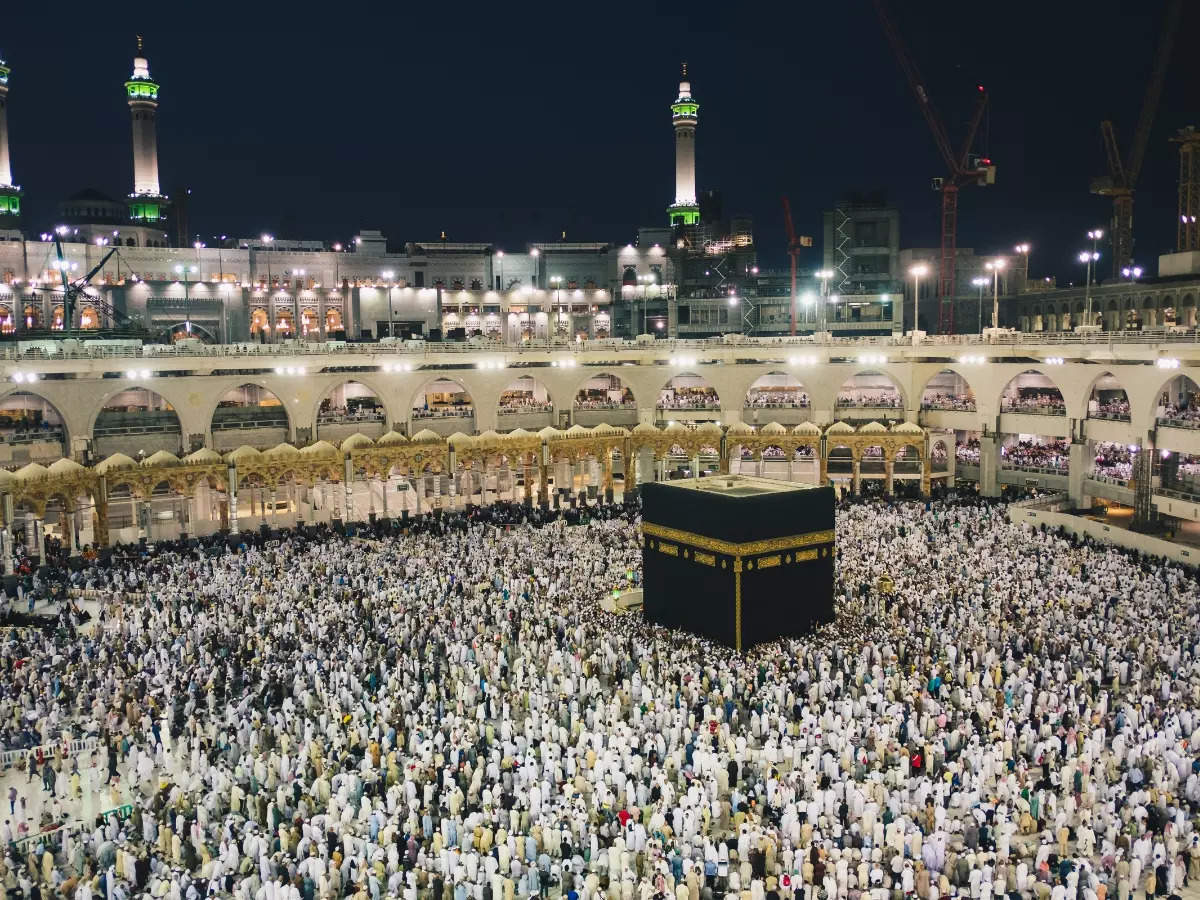
More from Travel News

10 most unreal places on Earth that you need to see to believe
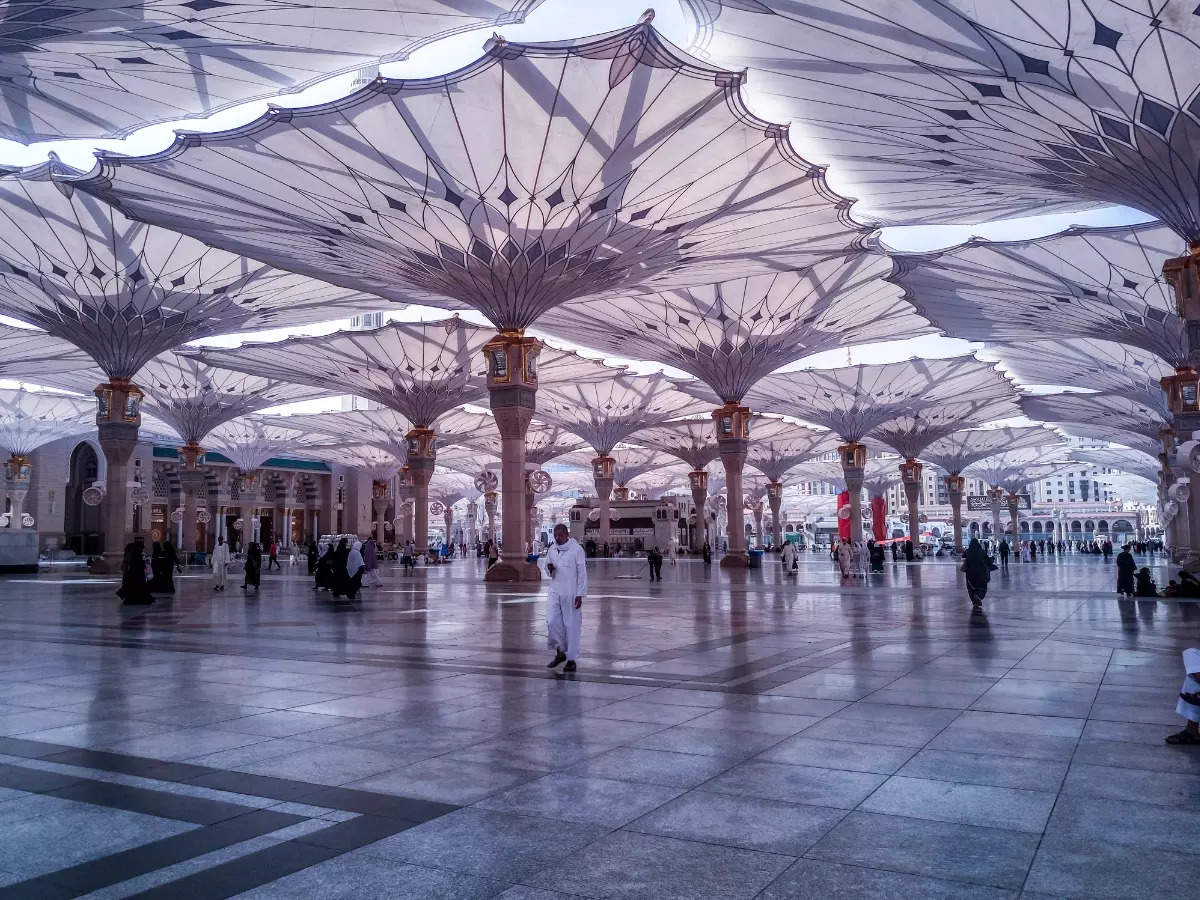
Are Hajj and Umrah same?
Comments (0).

Refrain from posting comments that are obscene, defamatory or inflammatory, and do not indulge in personal attacks, name calling or inciting hatred against any community. Help us delete comments that do not follow these guidelines by marking them offensive . Let's work together to keep the conversation civil.
Comments ( ) Sort: Newest UpVoted Oldest Discussed Down Voted closecomments

SIGN IN WITH
Or post without registration.

Visual Stories

Popular Galleries

Top music concerts worth travelling for in 2024: The Rolling Stones, Coldplay, and more TRAVEL TRENDS , WORLD

5 beautiful bridges to cross in Europe TRAVEL TRENDS , WORLD

7 incredible Asian beaches that you will want to keep secret! TRAVEL TRENDS
Trending stories.

Top music concerts worth travelling for in 2024: The Rolling Stones, Coldplay

- What is a Green Card? Advantages of a Green Card and who can apply

- How to reach Naina Devi Temple in Nainital?

- Canada reduces staff at Indian missions: Will visa services be impacted?

5 beautiful bridges to cross in Europe
- 1 Saudi Arabia changes Umrah visa rule; to remain valid for 3 months from issuance date
- 2 Italy and Spain launch Digital Nomad Visa: what does it mean?
- 3 Delhi Airport ranked among world’s top 10 busiest airports: ACI report
- 4 Amarnath Yatra 2024: Pilgrimage to start from June 29, registration now open
- 5 Saudi Arabia: Deserts around Mecca and Medina are turning green due to heavy rainfall

THE DEFINITIVE GUIDE TO DESTINATIONS, ITINERARIES, THINGS TO DO, RESTAURANTS, NIGHTLIFE and LOTS MORE!
FOLLOW US ON
Places to visit.
- Places to visit in Bangalore
- Places to visit in Mumbai
- Places to visit in Delhi
- Places to visit in Goa
- Hotels in Goa
- Hotels in Jaipur
- Hotels in Shimla
- Hotels in Mumbai
Things To do
- Things to do in Goa
- Things to do in Mumbai
- Things to do in Bangalore
- Things to do in Delhi
Travel Inspiration
- Visa on arrival for Indians
- Honeymoon Places in india
- Hill Stations in India
- Weekend getaways in Mumbai
- Weather in Delhi
- Weather in Chennai
- Weather in Bangalore
- Weather in Mumbai
Best Beaches
- Goa Beaches
- Mumbai Beaches
- Pondicherry Beaches
- Kerala Beaches
- Restaurants in Bangalore
- Restaurants in Chennai
- Restaurants in Pune
- Restaurants in Jaipur
- Hill Station near Delhi
- Winter trip to Ladakh
- Places to visit in Kerala
- Winter Honeymoon Destinations
- UK visa guide for Indians
- Winter Trip to Manali
- Vaishno Devi Yatra
- Special Train Ticket Booking
- HP inter-state Bus
- Honeymoon Destinations India
Latest News
Congratulations.
You have been successfully added to the mailing list of Times of India Travel. To complete the subscription process, kindly open your inbox and click on the confirmation link which has been emailed to you.
Share with friends
Thank You for sharing! Your friend will receive the article link on email mentioned.
- (For more than one recipient, type addresses separated by commas)
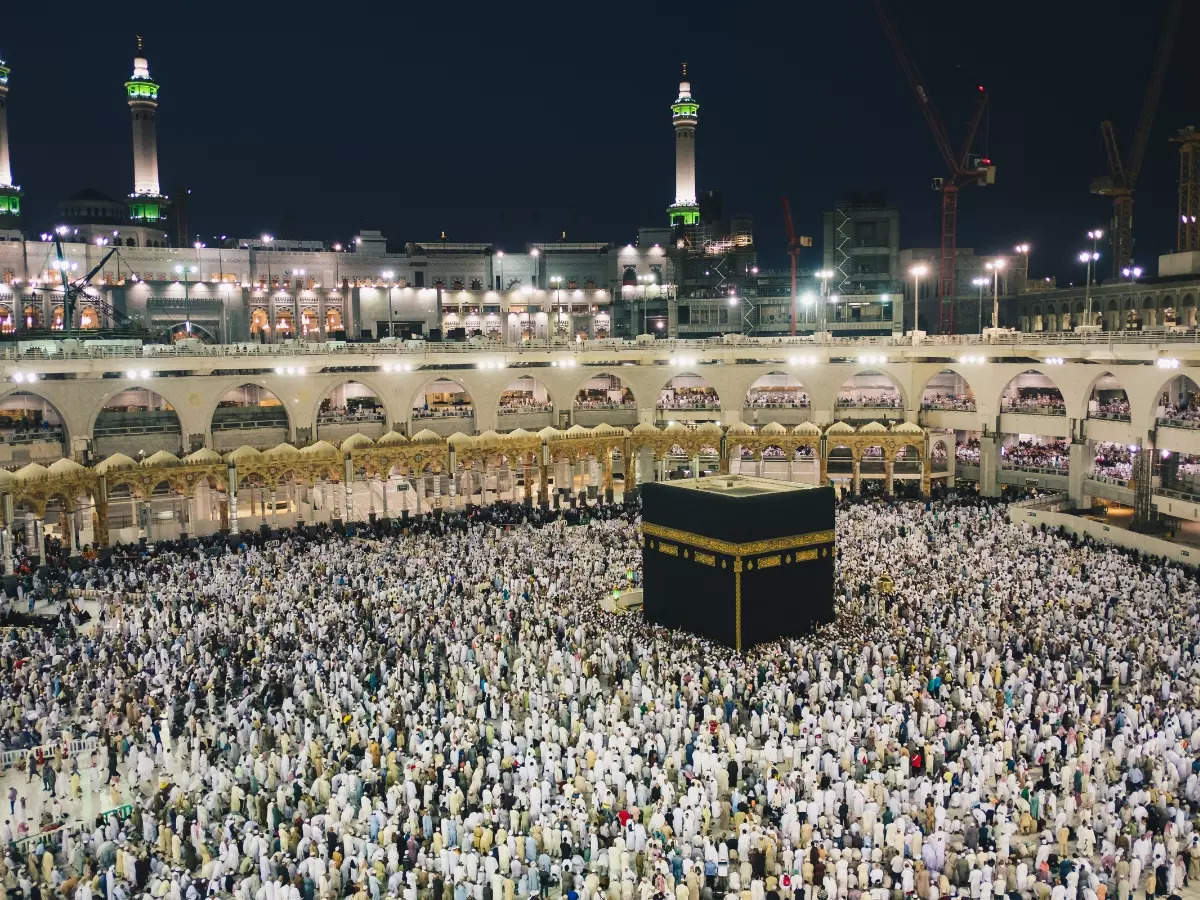
Under the new Umrah visa rule, the three-month validity of the visa begins from the day of issuance. For someone with an Umrah visa, it will be possible to enter the country and perform the Umrah pilg...
Indian foreign ministry advises against travel to Iran, Israel
- Medium Text
The Reuters Daily Briefing newsletter provides all the news you need to start your day. Sign up here.
Reporting by Shivam Patel; Editing by YP Rajesh
Our Standards: The Thomson Reuters Trust Principles. New Tab , opens new tab
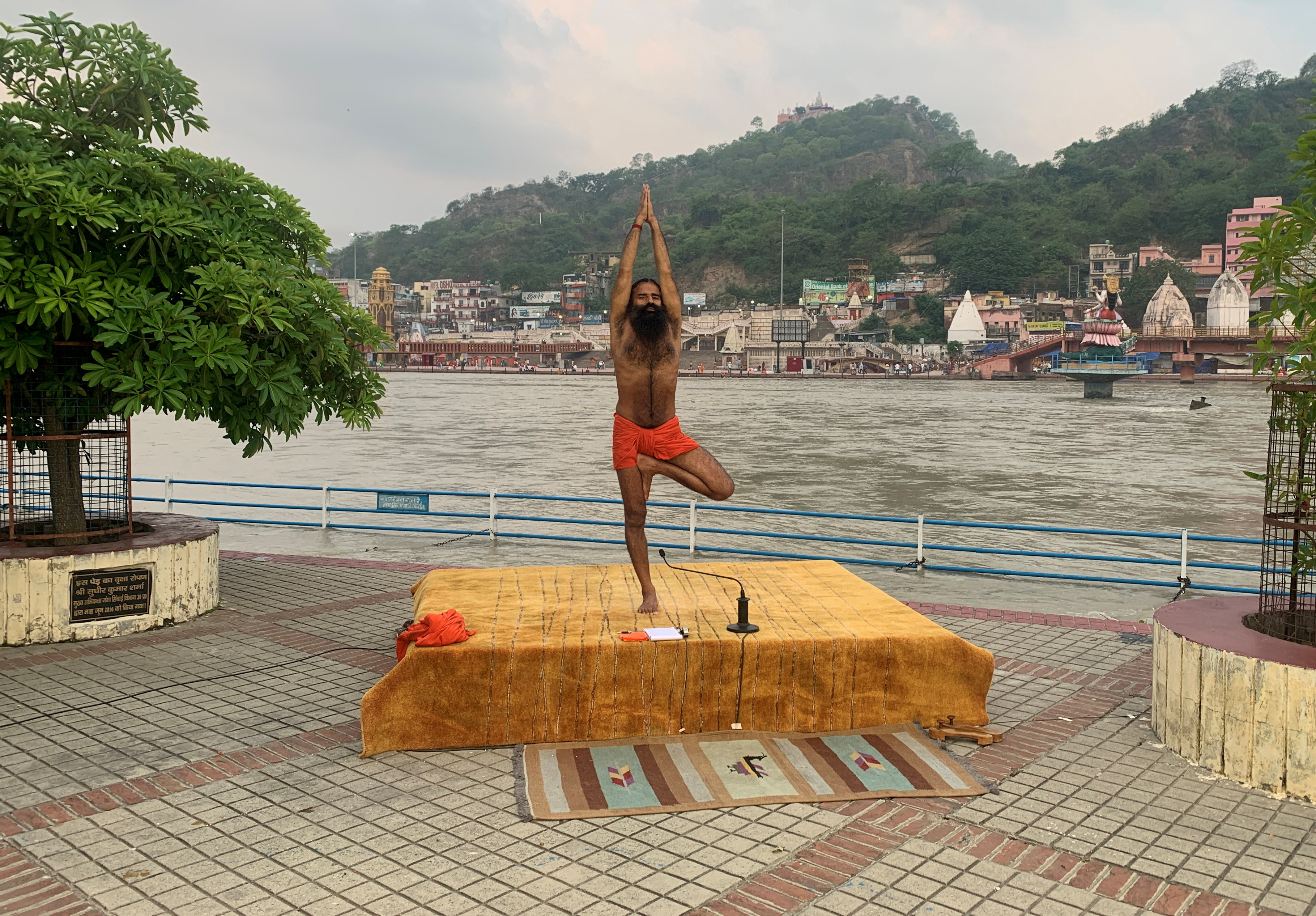
Indian security forces killed at least 29 Maoist rebels in a gunbattle in the central state of Chhattisgarh on Tuesday, police said, days before the start of elections in which Prime Minister Narendra Modi is seeking a third straight term.
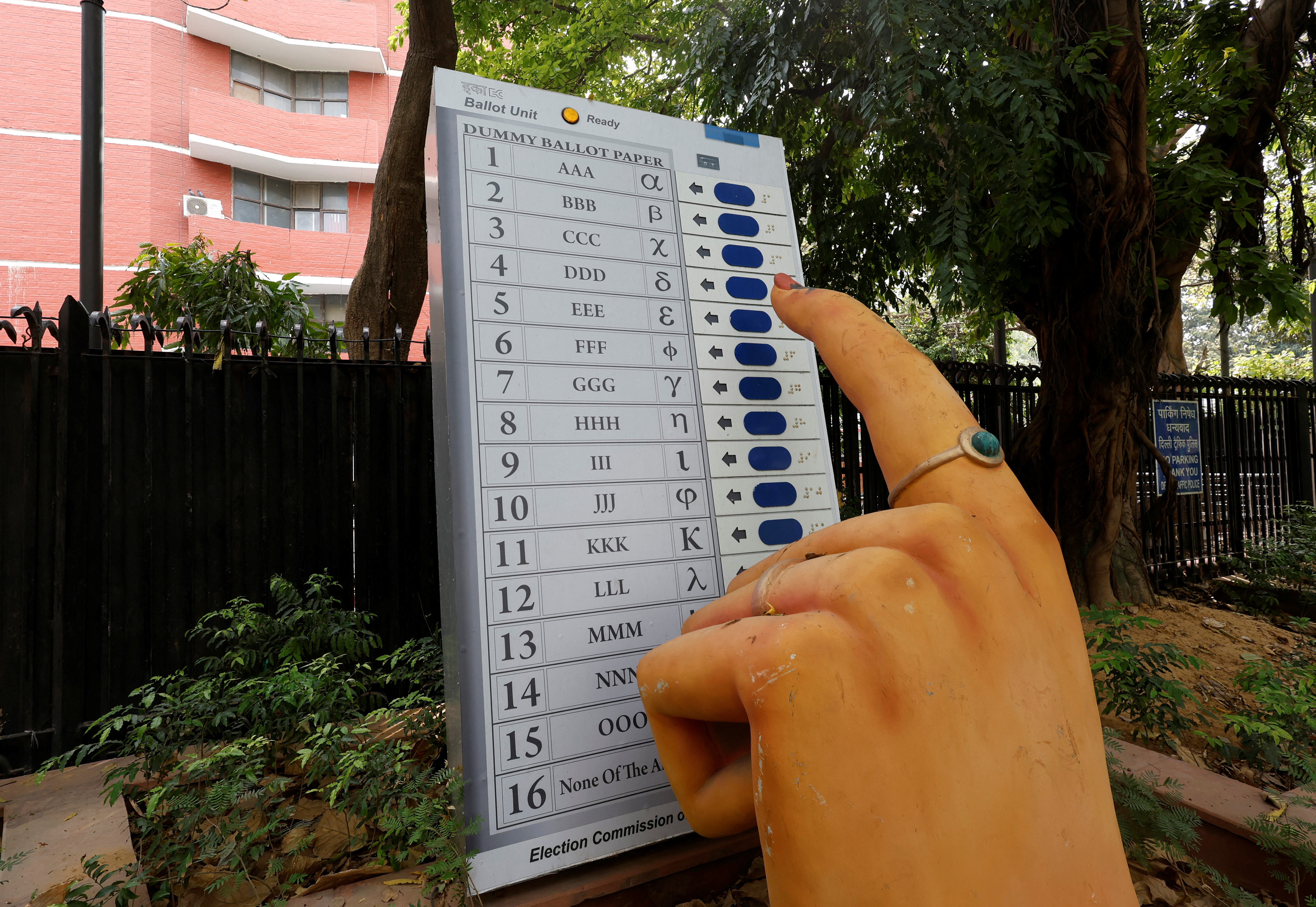
World Chevron
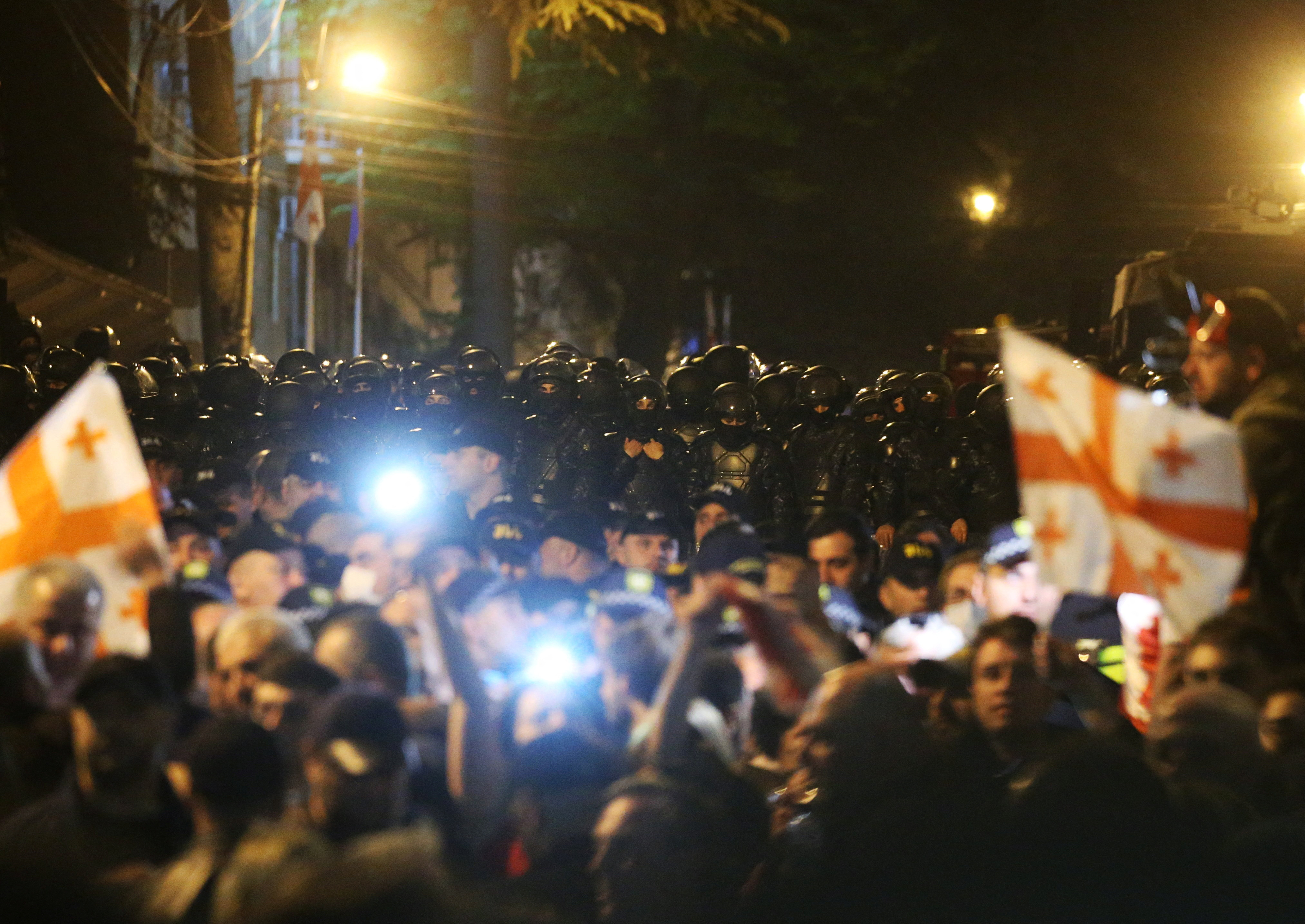
Georgian police clear protesters against foreign agent bill
Riot police in Georgia waded into demonstrators and cleared them from around part of the ex-Soviet state's parliament on Tuesday as lawmakers debated a bill on "foreign agents" that the opposition denounces as authoritarian.

Advertisement
The U.S. issues new travel guidelines, warning that Iran will avenge the killings of senior commanders.
The State Department has barred its employees from traveling to large parts of Israel. Iran has repeatedly vowed to strike back over the deadly bombing this month of an Iranian Embassy complex in Syria.
- Share full article

By Liam Stack and Eric Schmitt
- April 12, 2024
Several countries including the United States have issued new travel guidelines for Israel and the surrounding region, as the Israeli military said its forces were “highly alert” for a possible Iranian strike in retaliation for the killings of several commanders.
Iran has repeatedly vowed to strike back at Israel over the bombing of an Iranian Embassy complex in Damascus, Syria, this month that killed three generals and four other military officers. An American official said on Friday that Washington expects an attack by Iran against Israel that would be bigger than recent attacks in the long shadow war between the two countries, but not so big that it would draw the United States into war. The official spoke on condition of anonymity because of the sensitivity of the matter.
The U.S. State Department on Thursday barred its employees from traveling to large parts of Israel, the first time the U.S. government had restricted the movement of its employees in this way since the war in Gaza began more than six months ago.
On Thursday, Britain told its citizens that they “should consider leaving” Israel and the Palestinian territories “if it is safe to do so.” On Friday, India told its citizens “not to travel to Iran or Israel till further notice,” while France advised people not to travel to Israel, Iran or Lebanon and evacuated the families of French diplomats from Iran.
Asked about the U.S. travel warning , Matthew Miller, the State Department spokesman, said at a news briefing Thursday: “We have seen Iran making public threats against Israel in the past few days.” He declined to provide details about any specific information that prompted the warning.
The new guidelines bar U.S. government employees and their families from traveling to locations outside the Tel Aviv, Jerusalem and Beersheba metropolitan areas “out of an abundance of caution” until further notice. The State Department said U.S. personnel could move among those areas for personal travel.
The top American military commander for the Middle East, Gen. Michael E. Kurilla, traveled to Israel to coordinate a response to possible Iranian retaliation, U.S. officials said.
“Our enemies think that they will divide Israel and the United States,” the Israeli defense minister, Yoav Gallant, said in a statement on Friday after meeting with General Kurilla. “They are connecting us and are strengthening the relationship between us.”
If Iran attacks, he added, “we will know how to respond.”
On Thursday, the Israeli military’s chief spokesman, Rear Adm. Daniel Hagari, said that the armed forces were “highly alert and prepared” for any action Iran might take, even as the timing and scale of any response remained unclear. Analysts say that Tehran, which has long used a network of proxy forces to project power across the Middle East, wants to avoid igniting a full-fledged war that could drag in the United States and threaten the survival of Iran’s regime.
“For years, and even more so during the war, Iran has been financing, directing and arming its proxies — in Lebanon, Gaza, Syria, Iraq and Yemen — to attack the state of Israel,” he said. “An attack from Iranian territory would be clear evidence of Iran’s intentions to escalate the Middle East and stop hiding behind the proxies.”
Liam Stack is a Times reporter covering the Israel-Hamas war from Jerusalem. More about Liam Stack
Eric Schmitt is a national security correspondent for The Times, focusing on U.S. military affairs and counterterrorism issues overseas, topics he has reported on for more than three decades. More about Eric Schmitt
Our Coverage of the Israel-Hamas War
News and Analysis
Britain, the United States, France and other allies of Israel have voiced their anger over the death toll in Gaza, but when Iran launched a missile barrage at Israel, they set it aside . At least for the moment.
Israeli settlers fatally shot two Palestinians in the West Bank , according to Israeli and Palestinian officials, as tensions continued to spike in the Israeli-occupied territory.
Ruth Patir, the artist representing Israel at the Venice Biennale, said she wouldn’t open her show in the national pavilion until Israel and Hamas reach “a cease-fire and hostage release agreement.”
Mobilizing the American Left: As the death toll in Gaza climbed, the pro-Palestinian movement grew into a powerful, if disjointed, political force in the United States . Democrats are feeling the pressure.
Riding Rage Over Israel: Jackson Hinkle’s incendiary commentary has generated over two million new followers on X since October — a surge that some researchers say is aided by inauthentic accounts by the online celebrity.
Psychedelics and Trauma: Thousands of festival-goers were using mind-altering substances when Hamas-led fighters attacked on Oct 7. Now, scientists are studying the effects of such drugs at a moment of trauma .
Turmoil at J Street: The war in Gaza has raised serious concerns within the Jewish political advocacy group about its ability to hold a middle position without being pulled apart by forces on the right and the left.
India’s 2023-24 Domestic Air Passenger Traffic Surpassed Pre-Covid Levels – India Report
Bulbul Dhawan , Skift
April 15th, 2024 at 11:00 PM EDT
The aviation industry in India is undergoing changes as the market is underserved. ICRA has, therefore, maintained a stable outlook on the sector.
Bulbul Dhawan
The domestic air passenger traffic in India during the 2023-24 financial year is estimated to stand at 154 million, according to credit rating agency ICRA . This figure surpasses the pre-Covid figure of 142 million domestic air passengers recorded in the 2019-20 financial year. The agency further stated that domestic air passenger traffic witnessed a 13% increase from last year.
“ICRA’s outlook on the Indian aviation industry is stable, amid the continued recovery in domestic and international air passenger traffic, and relatively stable cost environment and expectations of the trend continuing in fiscal year 2024-25,” the agency said.
Growth of Indian aviation sector: The aviation industry in India is undergoing changes as the market is underserved . Indian aviation minister Jyotiraditya Scindia earlier this year said that the country is expected to be one of the least penetrated of the 20 largest markets by 2030 despite its rapid growth.
The Airports Authority of India (AAI) is planning to invest INR 300 billion ($3.6 billion) over the next five years to build and revamp the airport infrastructure in the country. Meanwhile, the Adani Group is looking to infuse INR 600 billion ($7.25 billion) in its airport business over the next five to 10 years to expand seven of the existing airports in its portfolio.
Recently, terminal buildings at 12 airports were inaugurated across the country , and with it, the annual passenger capacity at Indian airports is set to increase by 60 million.
Australia Witnesses Surge in Business Events From India
Tourism Australia has been witnessing a surge in Indian arrivals from the business and meetings, incentives, conferences and exhibitions (MICE) events. Nishant Kashikar, country manager – India and Gulf, Tourism Australia said, “Our Bid Fund Program, supporting international business event bids, has already secured five significant events from India, worth over AUD$26 million (nearly $17 million).”
Tourism Australia partnered with travel management company FCM Meetings and Events India and Singapore Airlines to network with Indian companies.
In 2023, business travel spending in India increased by nearly 25% year-on-year , while the projected growth for 2024 is 18%.
Akasa Air Announces Flights to Prayagraj
Low-cost airline Akasa Air has announced Prayagraj as the latest destination added to its network. The airline will fly to the destination daily from Mumbai starting May 25 this year, it said in a statement. This is the 22nd destination in Akasa Air’s network, and is the fourth city in Uttar Pradesh that the airline will operate in.
Akasa Air commenced its operations in August 2022, and over the past 20 months, it has expanded its network to 22 cities. It also commenced its international operations in March this year, flying between Mumbai and Doha in Qatar. Since its launch, the airline has carried 8 million passengers.
IndiGo to Operate Daily Flights Between Chandigarh And Abu Dhabi
Budget carrier IndiGo has announced its plans to commence daily direct flights between Chandigarh and Abu Dhabi in the United Arab Emirates (UAE). With this, IndiGo is set to operate 63 weekly flights between India and Abu Dhabi, said Vinay Malhotra, head of global sales, IndiGo.
IndiGo is expanding its operations in order to continue its hold on the growing Indian aviation market. Currently accounting for around 60% market share in India, IndiGo plans to fortify its international operations . For the same, it is partnering with other airlines under the codeshare agreement. Earlier this month, it entered into a codeshare partnership with Malaysia Airlines , adding to its strong list of partners.
JüSTa Opens New Hotel in Mussoorie
JüSTa Hotels and Resorts has announced the opening of jüSTa Hollow Oak in Mussoorie, Uttarakhand. The boutique luxury property has 16 rooms and is the fourth property by the company in the state.
The company operates boutique hotels and currently has a portfolio of 23 hotels in 10 states. It also has properties coming up in Sariska, Varanasi, and Chail this year. For next year, the company already has plans for properties to open in Jawai, Rishikesh, and Ayodhya.
Air India Deploys Five New Contact Centers
Full-service airline Air India has enhanced its customer care operations by deploying five new contact centers. The centers would offer round-the-clock assistance to customers across the globe, the carrier has said in a statement.
These centers are being set up in Mumbai, Cairo in Egypt, and Kuala Lumpur in Malaysia for premium services, while the contact centers in Noida and Bengaluru will focus on domestic inquiries. The former national airline recently introduced a premium desk to cater to its frequent flier members, business and first-class guests.
Air India is rebranding and revamping itself post its acquisition by the Tata Group, as it prepares for its merger with sister airline Vistara. As part of this, the airline also received a new logo, and aircraft livery last year.
Skift India Report
The Skift India Report is your go-to newsletter for all news related to travel, tourism, airlines, and hospitality in India.
Have a confidential tip for Skift? Get in touch
Tags: air india , air traffic , air travel , airline passengers , airlines , airport , airports , akasa air , australia , aviation , aviation industry , aviation news , boutique hotels , business events , business travel , business travel habits , Business Travelers , corporate travel , domestic leisure travel , domestic tourism , domestic travel , flights , hotels , india , india outbound , india travel , indian airlines , indigo , indigo airlines , mice , passenger , skift india report , tourism , tourism australia , Travel Trends
Photo credit: Domestic air passenger traffic witnessed a 13% increase as compared to last year. Juno Kwon / Pixabay
When is Eid al-Fitr 2024 and how is it celebrated?
The three-day festival celebrates the completion of the fasting month of Ramadan by Muslims across the world.

As a new moon was not sighted on Monday evening after Maghrib prayers, Muslims in Saudi Arabia and neighbouring countries will fast one more day, completing 30 days of Ramadan. The first day of Eid will then be celebrated on Wednesday, April 10.
The first day of Eid al-Fitr is determined by the sighting of the crescent moon marking the start of the month of Shawwal, the 10th month of the Islamic (Hijri) calendar.
Keep reading
A ramadan no palestinian will ever forget, the cost of a ramadan iftar meal around the world, ramadan 2024: where do your dates come from, in washington, dc: celebrating ramadan, protesting israel’s siege of gaza.
Lunar months last between 29 and 30 days so Muslims usually have to wait until the night before Eid to verify its date.
Other countries follow independent sightings.
When the sighting has been verified, Eid is declared on television, radio stations and at mosques.
![india travel rules Muslim worshippers prepare to take part in a morning prayer on the first day of Eid al-Fitr, which marks the end of the holy fasting month of Ramadan, at the Blue Mosque in Istanbul, on April 21, 2023 [Yasin Akgul /AFP]](https://www.aljazeera.com/wp-content/uploads/2024/04/AFP__20230421__33DL38J__v1__HighRes__TurkeyReligionIslamEid-1712214656.jpg?w=770&resize=770%2C524)
How do Muslims celebrate Eid?
Traditionally, Eid is celebrated for three days as an official holiday in Muslim-majority countries. However, the number of holiday days varies by country.
Muslims begin Eid day celebrations by partaking in a prayer service that takes place shortly after dawn, followed by a short sermon.
![india travel rules Palestinian Muslims perform the morning Eid al-Fitr prayer, marking the end of the holy fasting month of Ramadan in Gaza City on May 2, 2022 [Mahmud HAMS / AFP]](https://www.aljazeera.com/wp-content/uploads/2024/04/AFP__20220502__329C2B2__v1__HighRes__PalestinianIsraelReligionEidGaza-1712214526.jpg?w=770&resize=770%2C514)
On their way to the prayer, which is traditionally held in an open area, Muslims recite takbeerat, praising God by saying “Allahu Akbar”, meaning “God is great”.
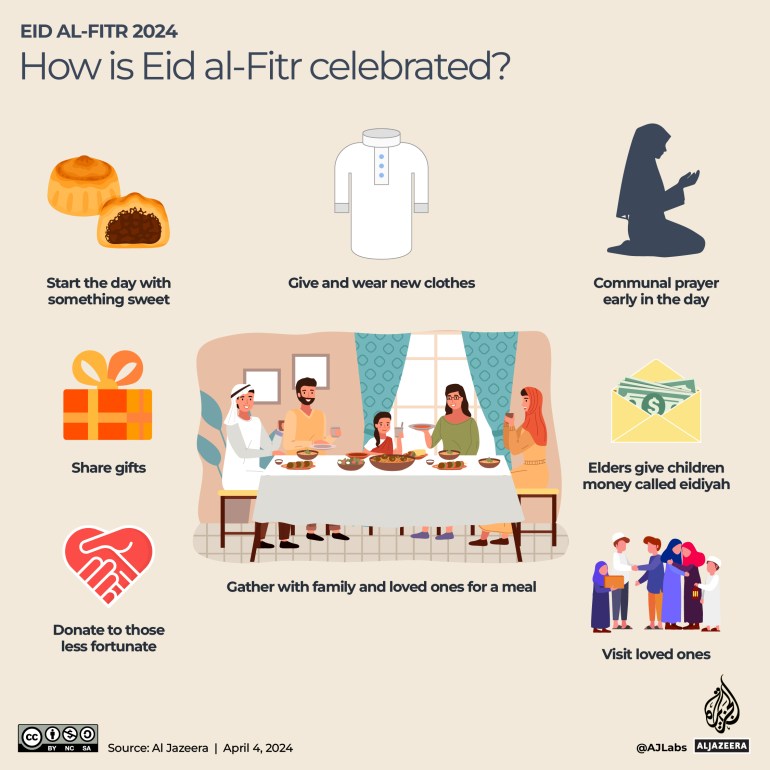
It is customary to eat something sweet before the prayer, such as date -filled biscuits known as maamoul in the Middle East. This particular festival is known as the “sweet” Eid – and the distribution of sweets is common across the Muslim world.
Muslims usually spend the day visiting relatives and neighbours and accepting sweets as they move around from house to house.
Each country has traditional desserts and sweets that are prepared before Eid or on the morning of the first day.

Children, dressed in new clothes, are offered gifts and money to celebrate the joyous occasion.
![india travel rules Children ride a swing on the first day of Eid al-Fitr, which marks the end of the Muslim holy fasting month of Ramadan, in the rebel-held town of Maaret Misrin in Syria's northwestern Idlib province, on April 21, 2023 [Abdulaziz Ketaz / AFP]](https://www.aljazeera.com/wp-content/uploads/2024/04/AFP__20230421__33DM4EH__v2__HighRes__SyriaReligionIslamEid-1712214711.jpg?w=770&resize=770%2C513)
Girls and women in many countries decorate their hands with henna. The celebration for Eid begins the night before as women gather in neighbourhoods and large family gatherings for the application of henna.
![india travel rules A girl shows her hand decorated with henna at a market area ahead of Eid al-Fitr, which marks the end of the Muslim holy festival of Ramadan, in Srinagar, on April 20, 2023 [Tauseef Mustafa / AFP]](https://www.aljazeera.com/wp-content/uploads/2024/04/AFP__20230420__33DJ2T3__v1__HighRes__IndiaKashmirReligionIslamEid-1712214614.jpg?w=770&resize=770%2C512)
In some countries, families visit graveyards to offer their respects to departed family members right after the morning prayers.
It is common for Muslim-majority countries to decorate their cities with lights and hold festivities to commemorate the end of the fasting month.
![india travel rules A general view shows the Alif Ki mosque illuminated during the holy month of Ramadan, ahead of Eid al-Fitr, in Ahmedabad on April 19, 2023 [Sam Panthaky/AFP]](https://www.aljazeera.com/wp-content/uploads/2024/04/AFP__20230419__33DH2JB__v1__HighRes__IndiaReligionIslamRamadan-1712214562.jpg?w=770&resize=770%2C513)
Eid amid the onslaught in Gaza
For some 2.3 million Palestinians in Gaza this Eid, this will be the first Muslim religious holiday after more than 33,000 people have been killed in Israeli attacks. With little food aid, and very limited water, Gaza’s Eid al-Fitr will be mired in destruction amid the continuing attacks.
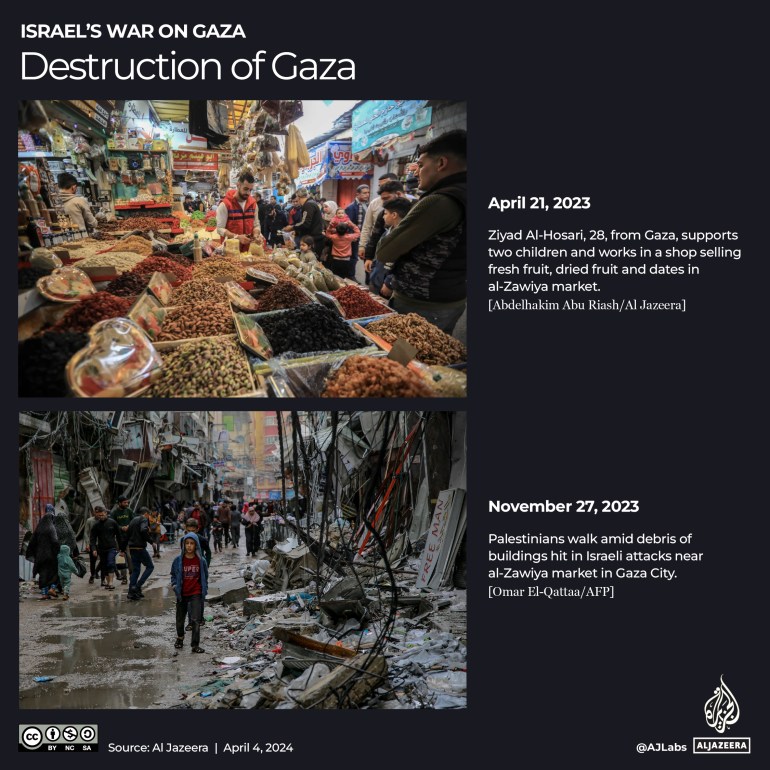
What are common Eid greetings?
The most popular greeting is “Eid Mubarak” (Blessed Eid) or “Eid sa’id” (Happy Eid). Eid greetings also vary depending on the country and language.
The video below shows how people say Eid Mubarak in different languages around the world.
- Media Login
- Skip to main content
- Screen Reader Access
- Please select Language --> English हिन्दी -->
Ministry of External Affairs Government of India
- Organization Structure
- Internship with Us
- Disclosure of Gifts received in Toshakhana
- Immovable Property Returns of IFS Officers
- President Visits
- Vice President Visits
- Prime Minister Visits
- Incoming Visits
- Virtual Meetings
- Facilitation of Foreign Media
- Media Accreditation
- Documentary Filming in India
- MEA Media Campaigns
- Speeches & Statements
- Press Releases
- Bilateral/Multilateral Documents
- Response to Media Queries
- Media Briefings
- Photo Gallery
- Media Advisory
- Rajya Sabha
- India in Business
- Other Offices
- Other Publications
- OIA Publications
- NAI Archives
- Bilateral Briefs
- Development Partnerships
- Voice of Global South Summit
- India and the United Nations
- Disarmament and International Security Affairs
- Indian Treaties Database
- ISA Founding Conference
- India’s G20 Presidency
- Guide to Consular Services
- Attestation/Apostille
- Bachelorhood / Single Status Certificate
- Consular Access
- Transfer of Sentenced Persons
- Mutual Legal Assistance Treaty (MLAT)
- Passport Services
- Online Indian Visa
- Diplomatic / Official Visa
- Verify Foreign Visa / Permit / CDCs
- Visa Facility for Indian Nationals (Ordinary Passports)
- For Diplomatic Passports
- Visa Facilitation Agreements
- Visa Services Provided By FRROs
- Checklist for FRRO Registration Formalities
- Outsourced CPV Services
- Overseas Citizenship of India Scheme
- Know India Programme
- Know Goa Programme
- Scholarship Programmes for Diaspora Children
- Pravasi Bhartiya Kendra
- Bharat ko Jaaniye Online Quiz (BKJ)
- Students Registration Portal
- Marital Issues of Indian nationals married to overseas Indians
- Overseas Employment
- How to enrol as an Overseas/NRI elector
- National Voters' Service Portal
- Brochure for Overseas Electors
- Brochure for Service Voters
- OWRC, MRC and PBSK
- Welfare Compensation Claims
- Pravasi Bhartiya Bima Yojana (PBBY)
- Indian Community Welfare Fund
- Details of Organisations/NGO's registered with Indian Missions/Posts Abroad
- Indian Students Abroad
- Transfer of Mortal Remains
- Multilateral Co-operation
- Model Contracts
- Notification
- Social Security Agreements
- Labour Mobility Partnership (LMPA)
- Memorandum of Understanding (MOUs)
- India Centre for Migration (ICM)
- Pravasi Bharatiya Samman Award (PBSA)
- Pravasi Bharatiya Divas
- Population of Overseas Indians
- Distinguished Lectures
- Documentaries
- Documentary / Feature Film Catalogue
- India Perspectives
- Bharat Ek Parichay
- Lodge Complaint
- Integrity Pact
- Complaints Committee
- Acts, Legislations & Rules
- Demands for Grants
- Grants-in-aid to Autonomous Bodies
- Citizens' Charter
- Travel Advisories
- The President of India
- Vice President of India
- Prime Minister of India
- Indian Parliament
- United Nations News
- Protocol Division
- Indian Council of Cultural Relations
- Monthly Major Achievements of MEA
- Guidelines for International Arrivals
- Fight Against COVID19
- Vaccine Maitri
- Mutual recognition of Covid-19 vaccination certificates
- Important links
- Indian Mission
- Home › Media Center › Press Releases
Travel advisory for Iran and Israel
April 12, 2024
In view of the prevailing situation in the region, all Indians are advised not to travel to Iran or Israel till further notice.
All those who are currently residing in Iran or Israel are requested to get in touch with Indian Embassies there and register themselves.
They are also requested to observe utmost precautions about their safety and restrict their movements to the minimum.
New Delhi April 12, 2024
Post A Comment
- Name * E-mail *
- Write Your Comment *
- Control Room, South Block 23011954 / 23012292 / 23017160
- Working hours at Headquarters 9:00 A.M. To 5:30 P.M.
- Terms and Conditions
- Privacy Policy
- Copyright Policy
- Hyperlinking Policy
- Accessibility Statement
Copyright © 2023 Ministry of External Affairs, Government of India. All Rights Reserved.
Website content managed by XPD Division, Ministry of External Affairs; Designed & developed by M/s Silver Touch Technologies Limited; Hosted by National Informatics Centre.
Visitors: 212106213
Page last updated on: 12/4/2024

IMAGES
VIDEO
COMMENTS
Flyers are advised to self-monitor health and travel only if they have no symptoms of COVID-19. ... For information on state-wise quarantine rules for domestic flights, flyers are advised to go through the state-wise travel guidelines section. ... Passengers travelling to India are advised to check official websites of relevant authorities and ...
COVID-19, Guidelines for International Arrivals, For latest guidelines for international arrivals, Ministry of External Affair, Government of India
Press Information Bureau. The Indian Ministry of Health and Family Welfare has a 24/7 hotline at +91-11-2397-8046 with English-speaking operators or can be reached at [email protected]. The Indian Medical Association also has a 24/7 hotline for individuals to speak with a doctor at +91 99996-72238 or +91 99996-72239.
Call us in Washington, D.C. at 1-888-407-4747 (toll-free in the United States and Canada) or 1-202-501-4444 (from all other countries) from 8:00 a.m. to 8:00 p.m., Eastern Standard Time, Monday through Friday (except U.S. federal holidays). See the State Department's travel website for the Worldwide Caution and Travel Advisories.
Scope. This document provides protocols to be complied by international travellers as well as points of entry (airports, seaports and land border) and shall be valid for all flights landing in India w.e.f. 1st January, 2023 (10.00 Hrs IST) till further orders. A.1. Planning for Travel. i.
Government of India, through concerned airlines before they are allowed to undertake the journey that they would abide by the decision of the appropriate government authority any post arrival requirement to undergo home/institutional quarantine/ self-health monitoring, as warranted. A.2. Before Boarding iii.
Government of India at seaports/land ports on arrival. * Children under 5 years of age are exempted from both pre- and post-arrival testing. However, if found symptomatic for COVID-19 on arrival or during home quarantine period, they shall undergo testing and treated as per laid down protocol.
Find continuously updated travel restrictions for India such as border, vaccination, COVID-19 testing, and quarantine requirements. ... Find out the entry rules for each country. Let's go. Destinations you can travel to now Popular destinations open to most visitors from the United States. Open.
Website Content Managed by Ministry of Tourism, Government of India Designed, Developed and Hosted by National Informatics Centre ( NIC ) Last Update : 15-04-2024Ministry of Tourism, Government of India Designed, Developed and Hosted by National Informatics Centre ( NIC ) Last Update : 15-04-2024
A.2. During Travel ii. In-flight announcement about the ongoing COVID-19 pandemic including precautionary measures to be followed (preferable use of masks and following physical distancing) shall be made in flights/travel and at all points of entry. iii. Any passenger having symptoms of COVID-19 during travel shall be isolated as per standard ...
Health officials caution that staying home is the best way to stem transmission until you're fully vaccinated. Below is information on what to know if you still plan to travel, last updated on ...
Passport validity requirements. Make sure your passport is valid for at least 6 months from your date of entry into India. Your passport must also: - have 2 blank pages for your visa. Check with ...
Times of India reporting that Hong Kong and Nigeria are among the latest to remove COVID-19 travel rules for international travelers. Business Today reporting that IndiGo has announced 32 connecting flights between India and Europe - flying to Milan, Manchester, Birmingham, Rome, and Venice - starting December 7, 2022. These international ...
Information on the upcoming general elections in India ('Safety and security page'). The Foreign, Commonwealth & Development Office (FCDO) provides advice about risks of travel to help British ...
Travel during daylight hours only, especially in rural areas. If you choose to drive a vehicle in India, learn the local traffic laws and have the proper paperwork. Get any driving permits and insurance you may need. Get an International Driving Permit (IDP). Carry the IDP and a US-issued driver's license at all times.
The same rule applies when passing things to people - including money. If you get invited to someone's home, bring a small gift (flowers or sweets are always a safe bet) and remove your shoes before entering. It's polite to eat and drink what you are offered, even if you don't really fancy it. 9. Dress modestly.
Travel Advisory. June 23, 2023. India - Level 2: Exercise Increased Caution. O U T C. Reissued with updates to health information. Exercise increased caution in India due to crime and terrorism. Do not travel to: The union territory of Jammu and Kashmir (except the eastern Ladakh region and its capital, Leh) due to terrorism and civil unrest ...
With its dense tapestry of cultures and landscapes, India feels like dozens of countries rolled into one, but a single visa will cover you for travel across more than 3 million sq km (more than a million sq miles) of territory, taking in everything from steamy jungles to the high passes of the Himalayas. Every Indian state is as large and diverse as a nation, so take your time navigating this ...
All You Need to Know About Visa, Documents, and Travel Tips. We are excited about your upcoming trip with us, and we promise to make it memorable and seamless. Before leaving for the airport, please check if you have your documents in place. Also, read Air India's travel advisory for various airports and cities across India and the world.
COVID-19 regulations and requirements in India. Since November 22, 2022, foreign nationals and citizens of India no longer need a self-declaration form, proof of vaccination, or a negative RT-PCR test to enter India.
Its rules on passport validity may be more stringent than the country's entry rules. Regular Canadian passport. Your passport must be valid for 6 months from your date of entry into India and must contain at least two blank pages for use by immigration officials. Passport for official travel. Different entry rules may apply. Official travel
Baggage Cancellation Fare Rules Check In Refunds Flight Status. ... Children above the age of 2 years and under the age of two 12 years, as on the date of travel, can travel as children and must be accompanied by a companion aged 18 (eighteen) years or more, as on the date of travel, or must book under Unaccompanied Minor fare. ...
For customers from India to Abu Dhabi. Note: All customers are required to carry printout of e-visa along with other mandatory travel documents. The following categories of customers will be allowed to travel from India to Abu Dhabi: Holders of all type of visa and/or entry permission granted by the appropriate authority in the United Arab Emirates (i.e., valid resident visa, employment visa ...
Under the new Umrah visa rule, the three-month validity of the visa begins from the day of issuance. For someone with an Umrah visa, it will be possible to enter the country and perform the Umrah ...
NEW DELHI, April 12 (Reuters) - India advised its citizens on Friday against travelling to Iran and Israel until further notice in view of the "prevailing situation in the region". The advisory ...
The U.S. issues new travel guidelines, warning that Iran will avenge the killings of senior commanders. The State Department has barred its employees from traveling to large parts of Israel.
In 2023, business travel spending in India increased by nearly 25% year-on-year, while the projected growth for 2024 is 18%. Akasa Air Announces Flights to Prayagraj.
The three-day festival celebrates the completion of the fasting month of Ramadan by Muslims across the world.
In view of the prevailing situation in the region, all Indians are advised not to travel to Iran or Israel till further notice. All those who are currently residing in Iran or Israel are requested to get in touch with Indian Embassies there and register themselves.